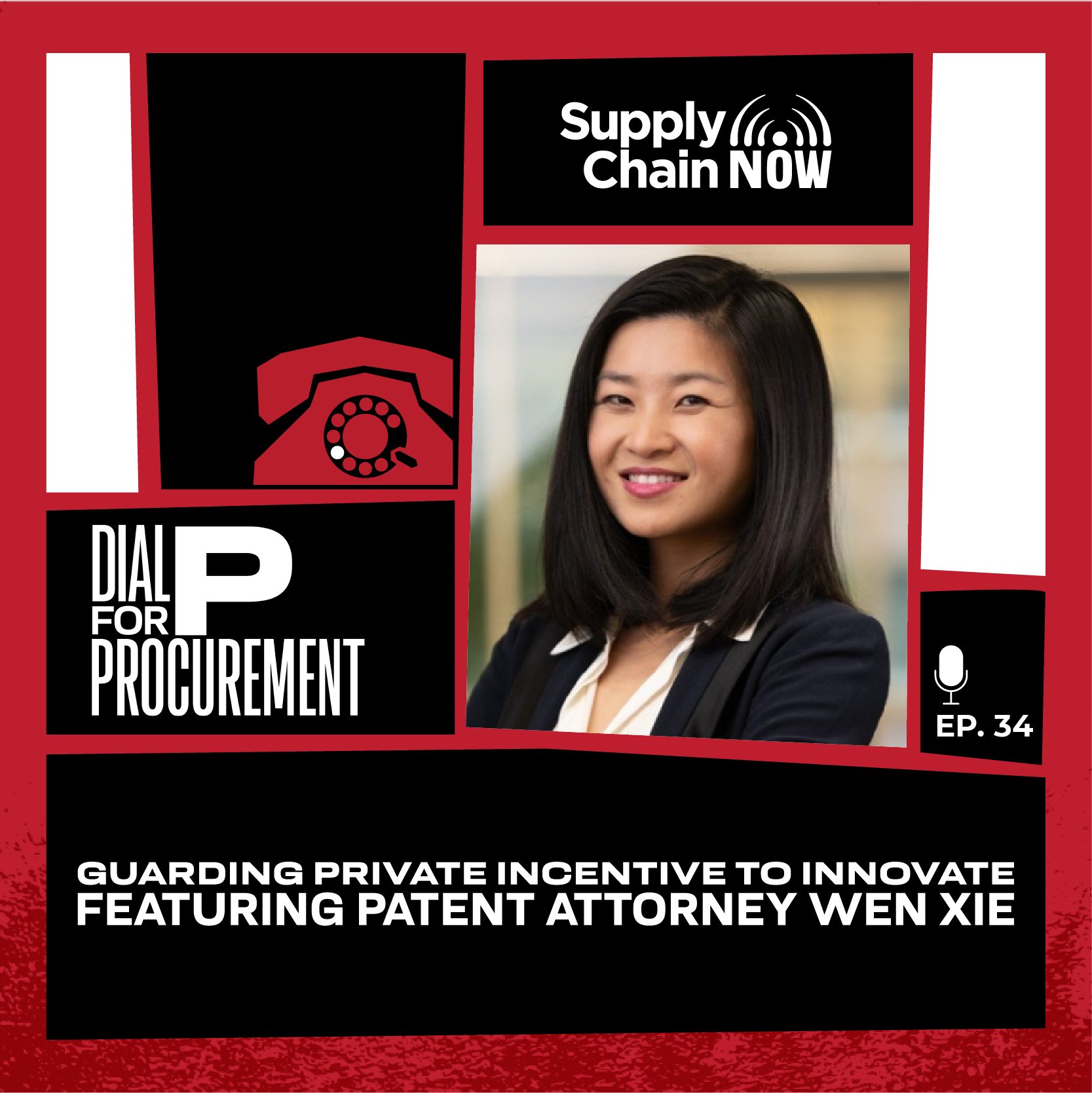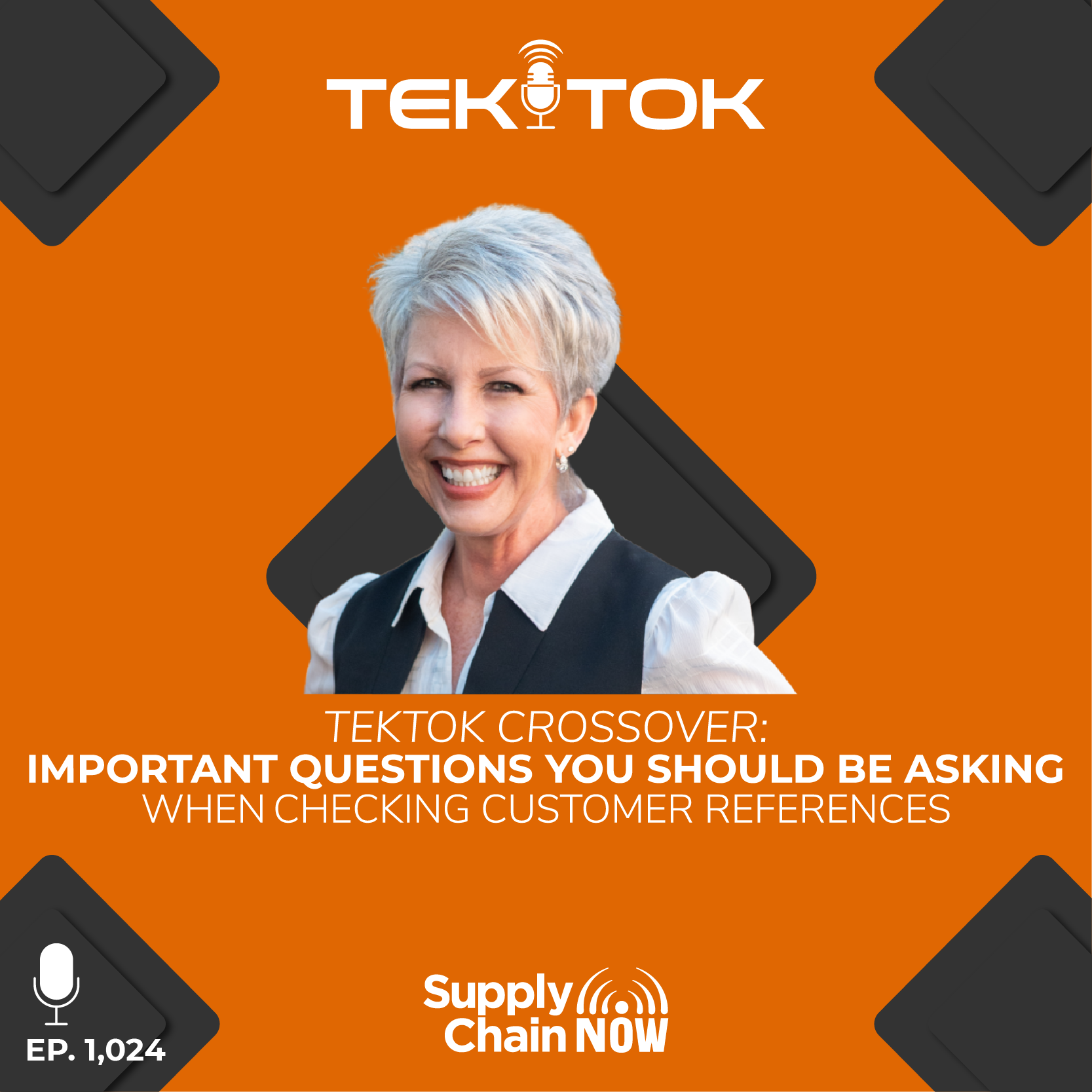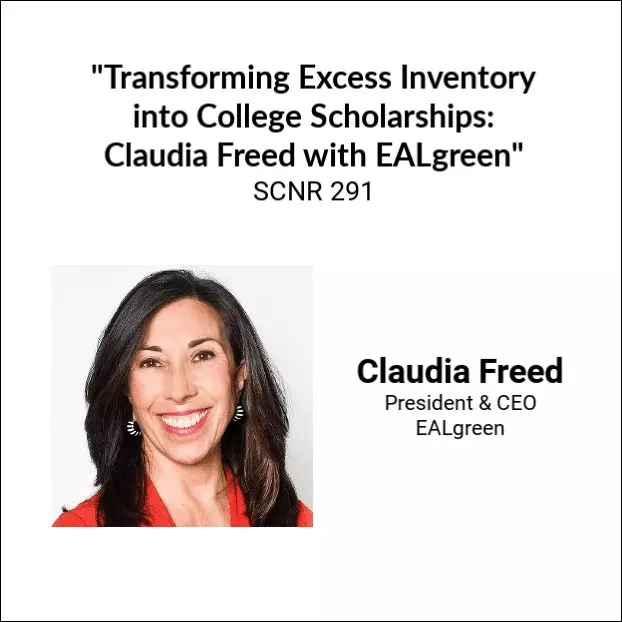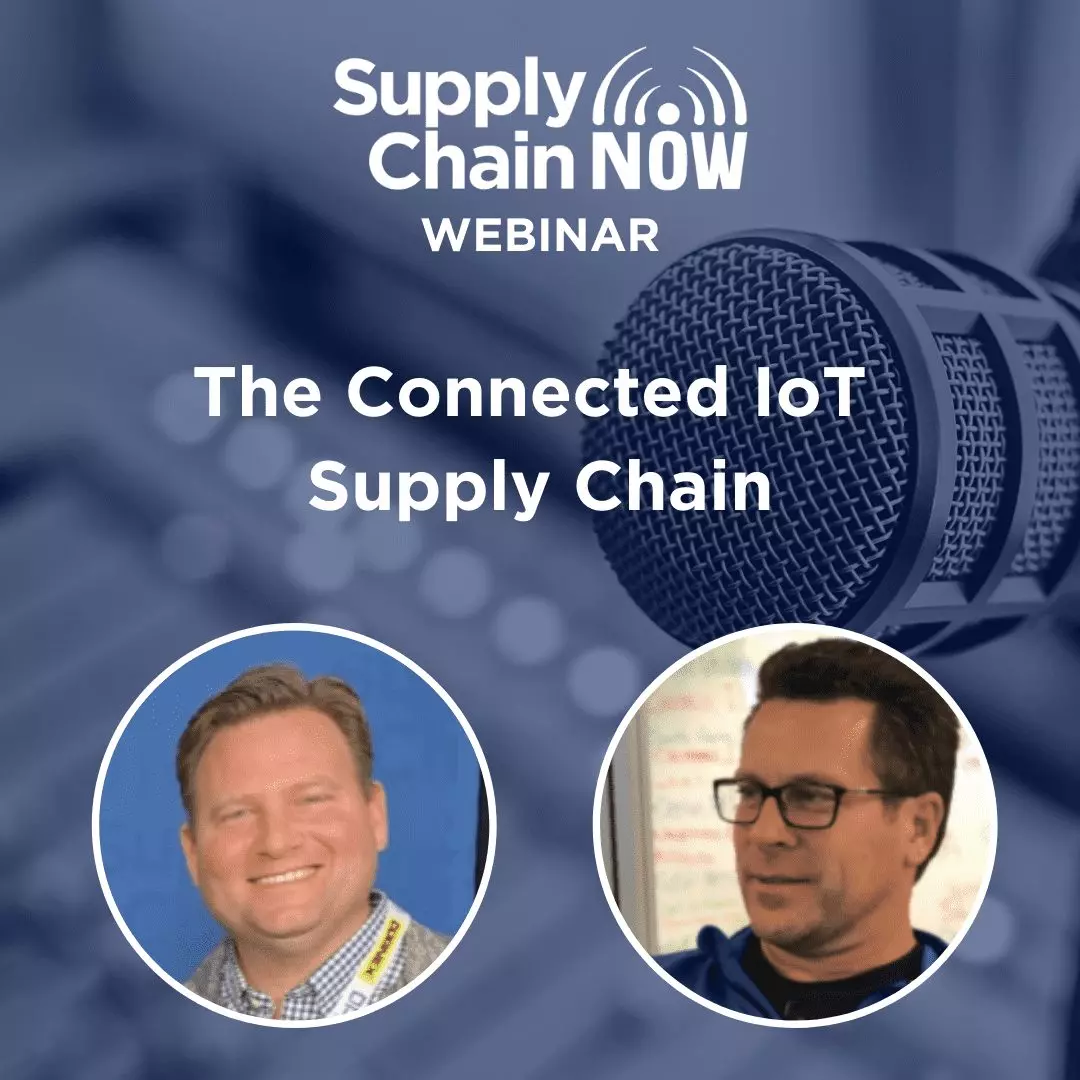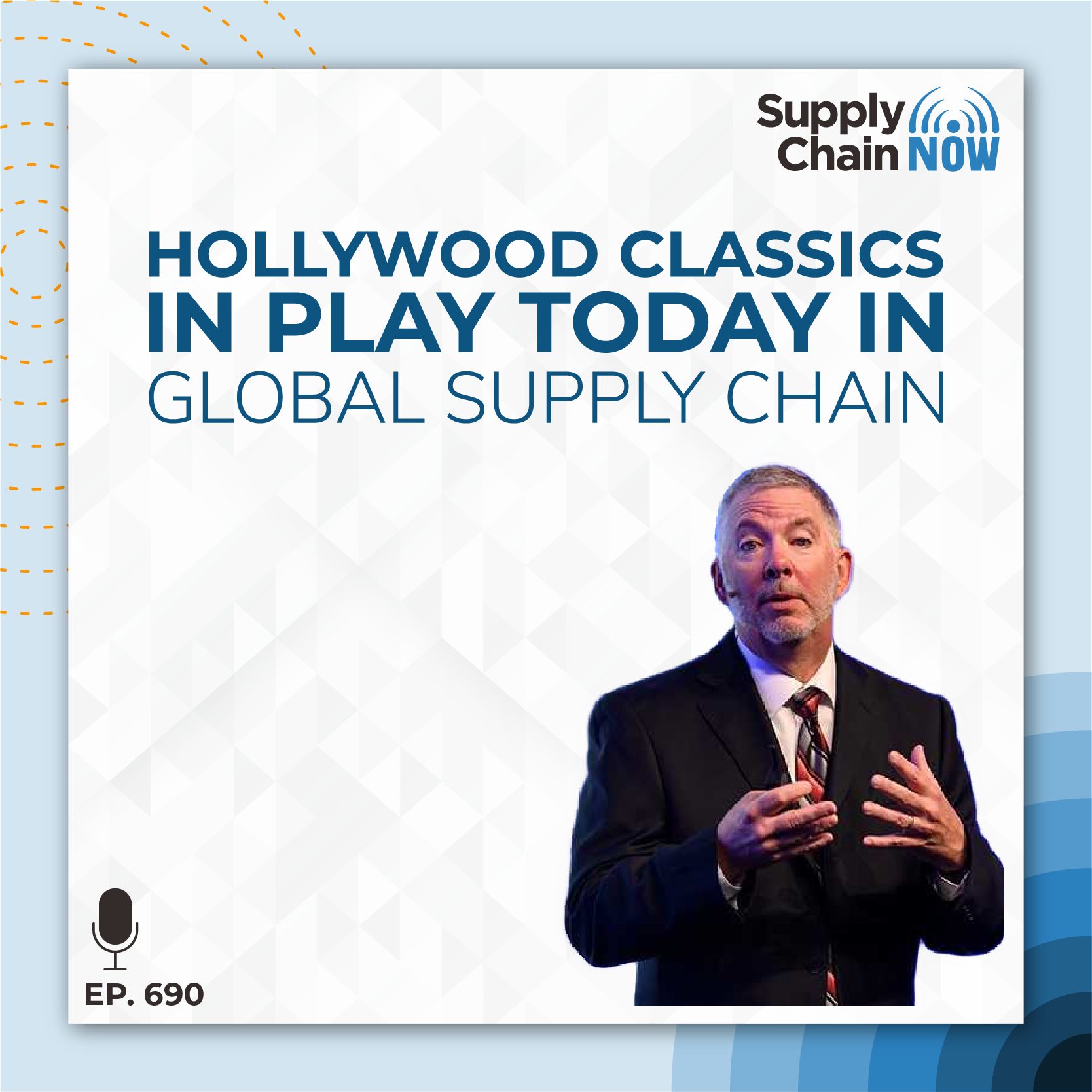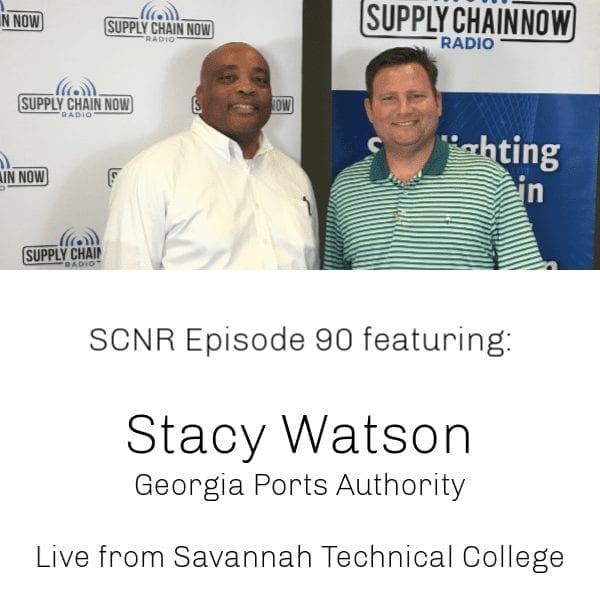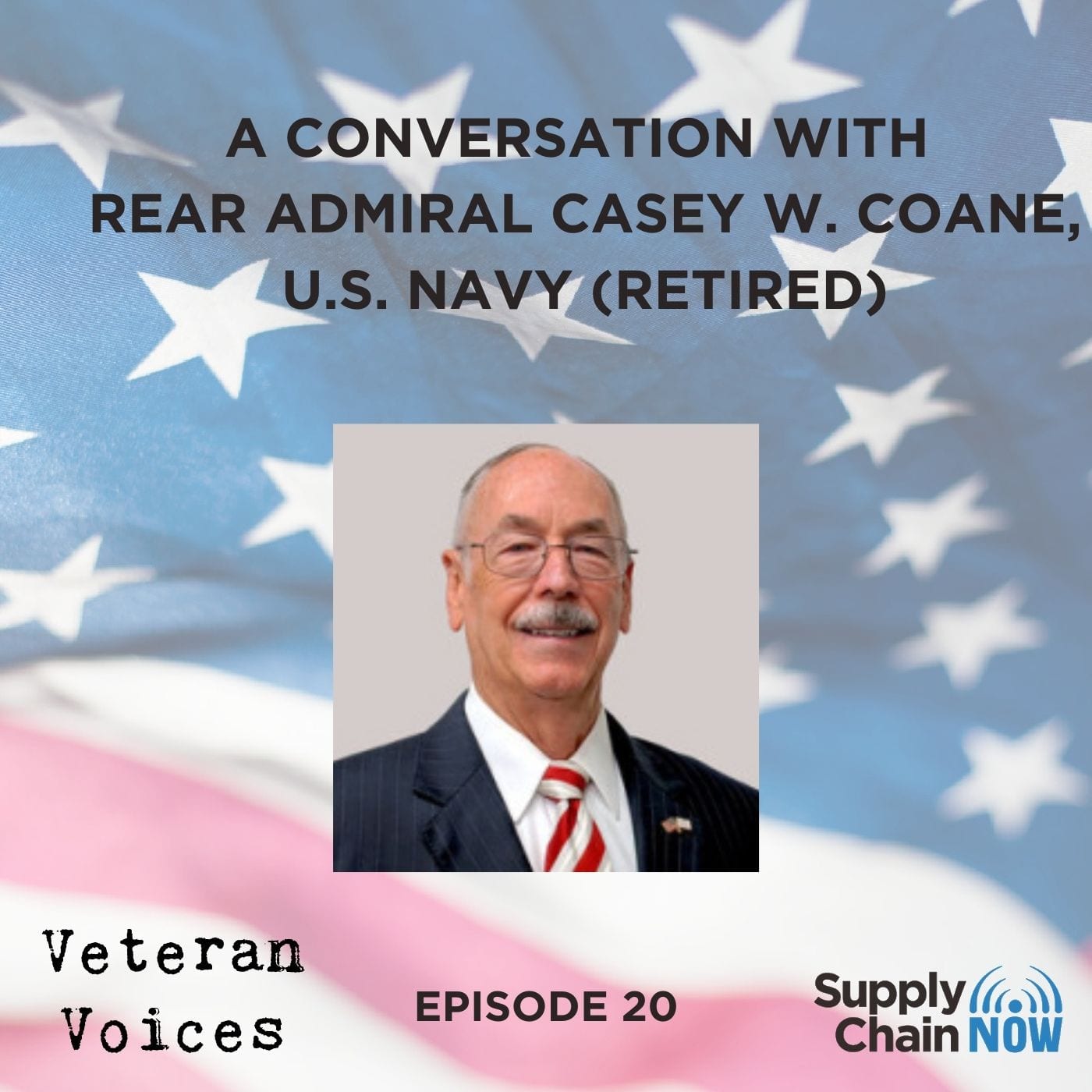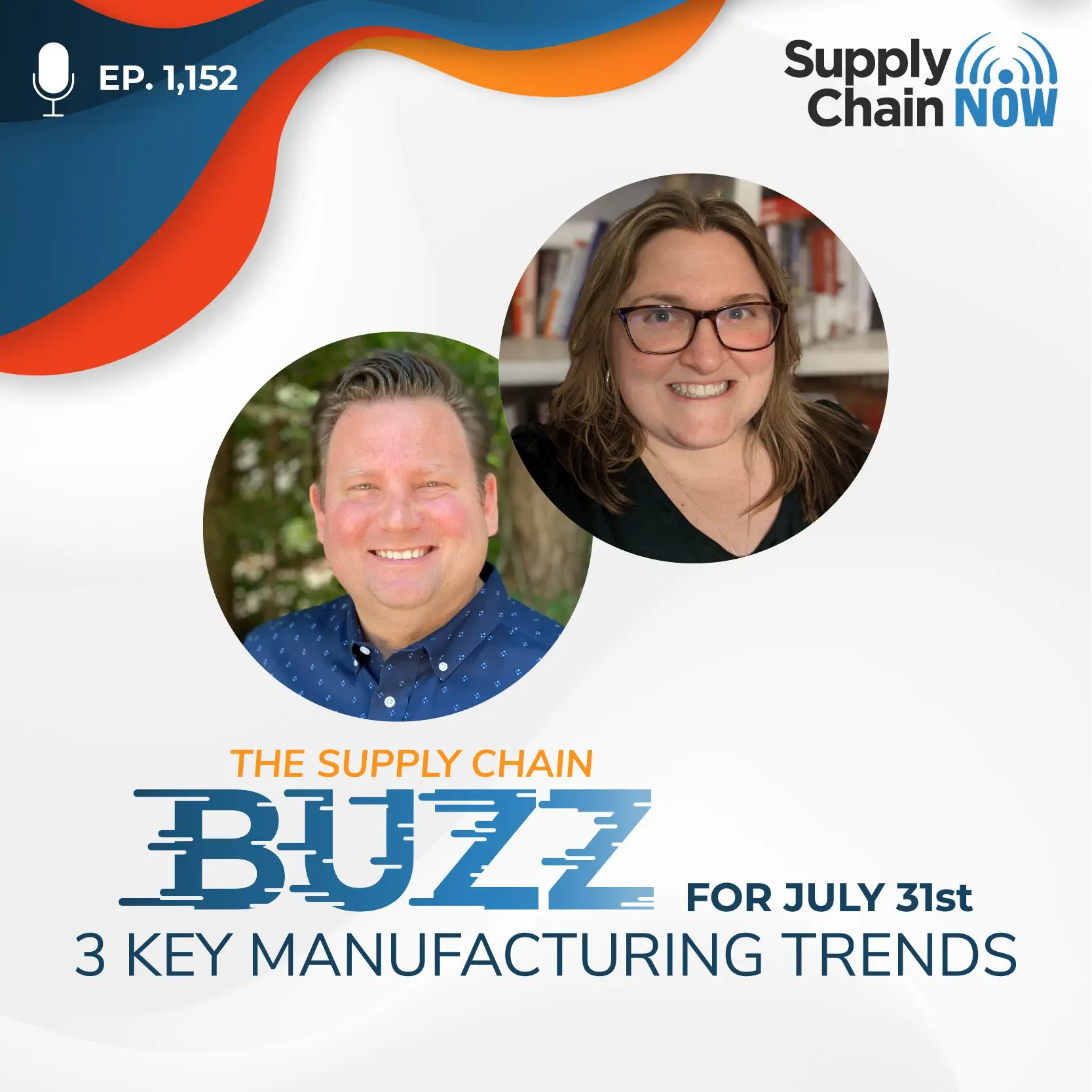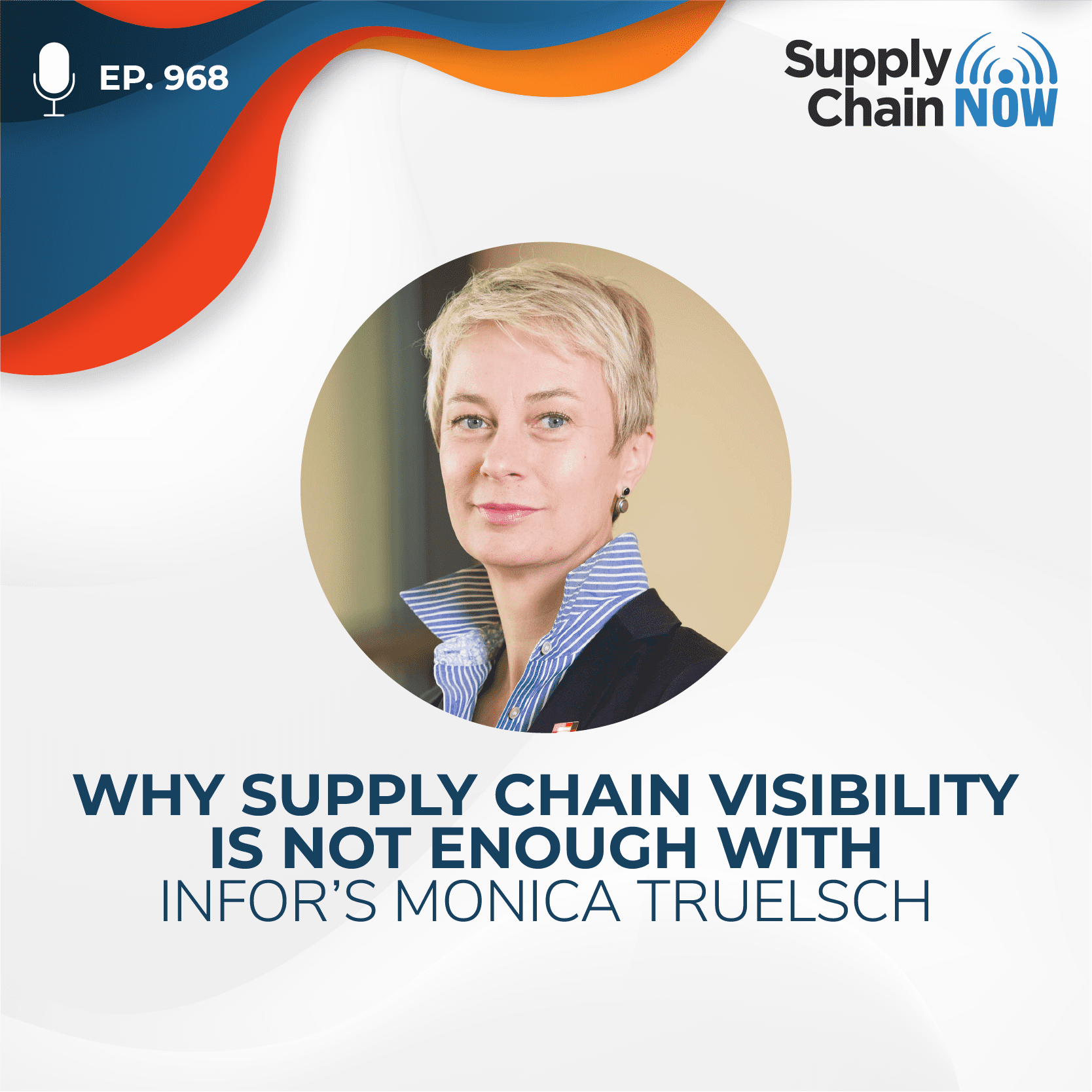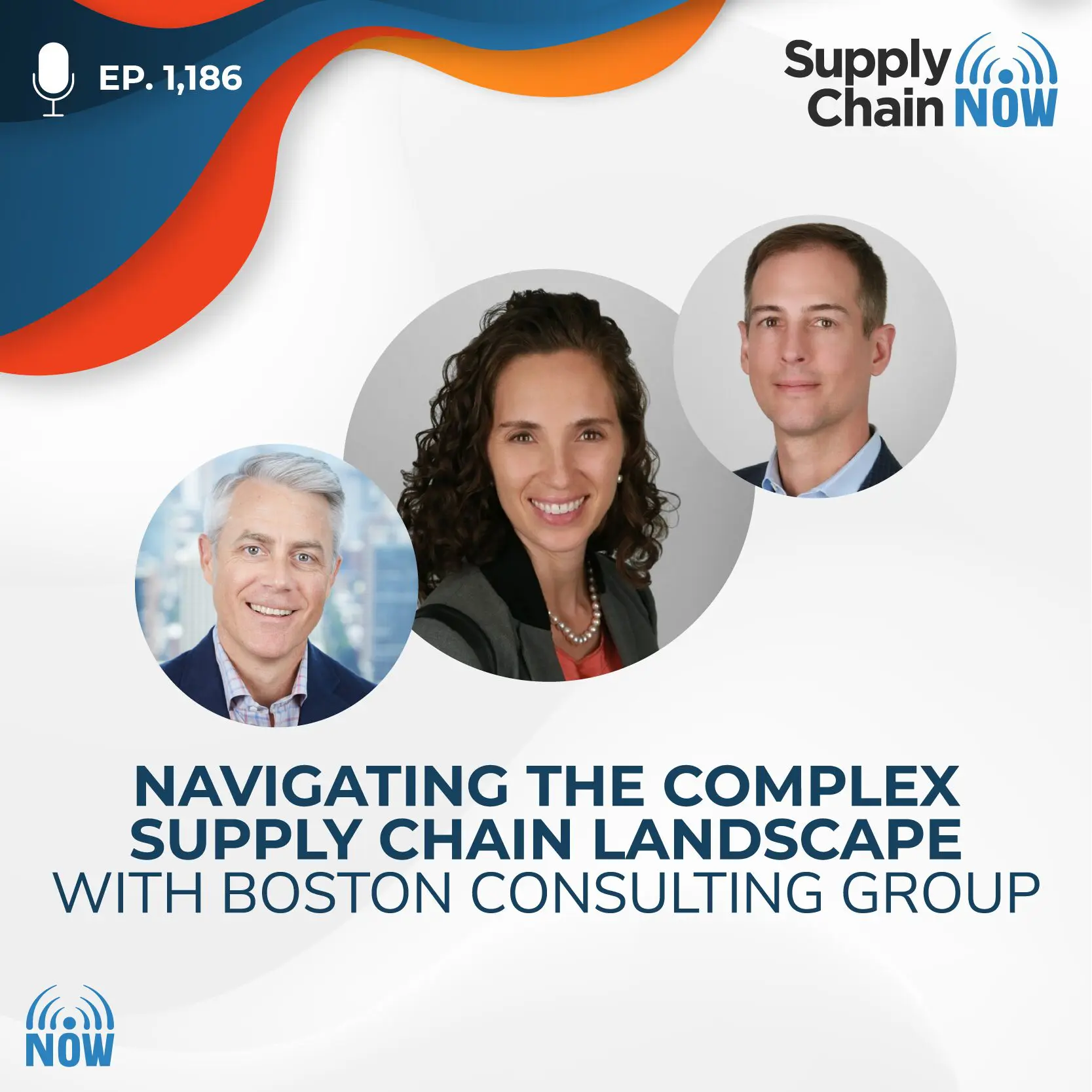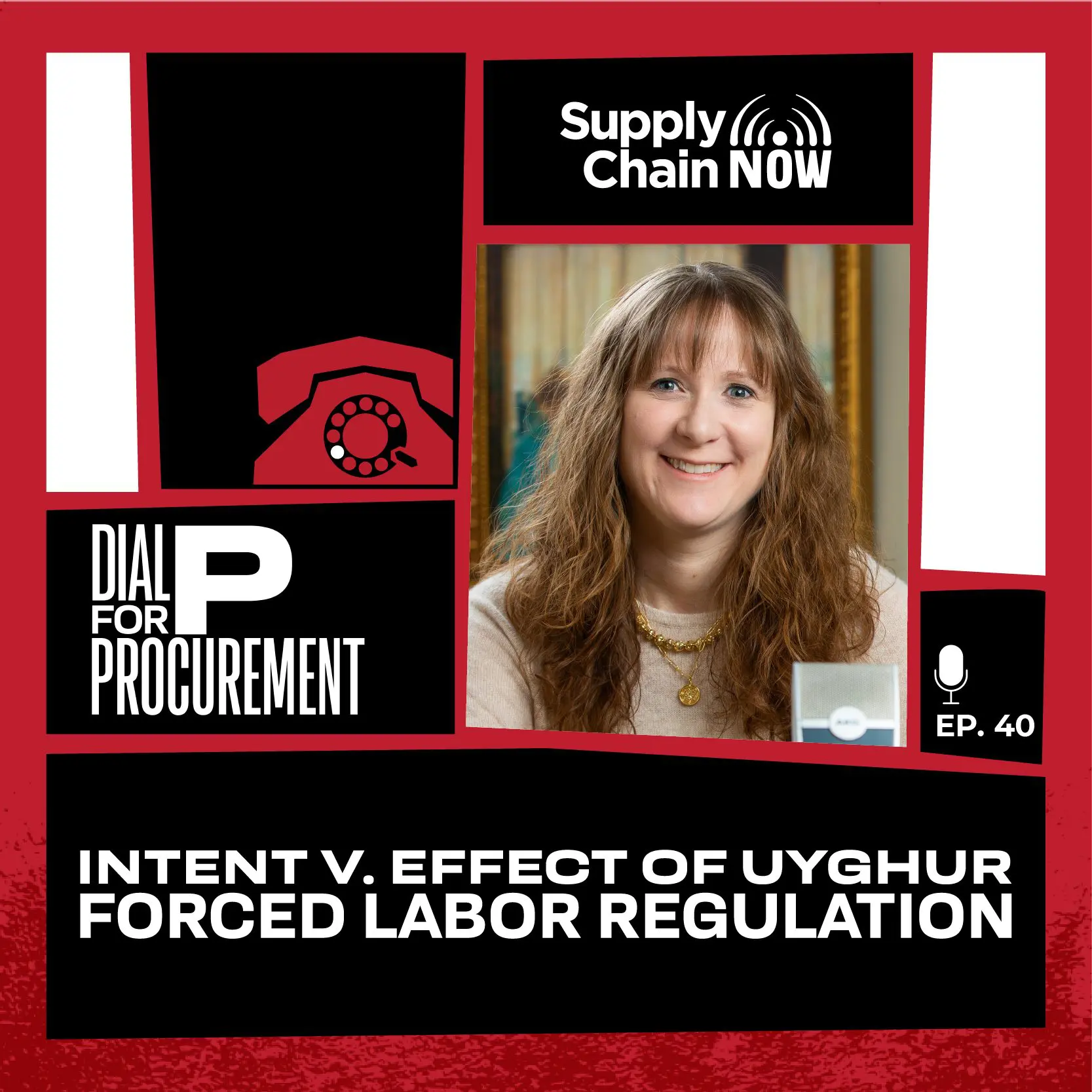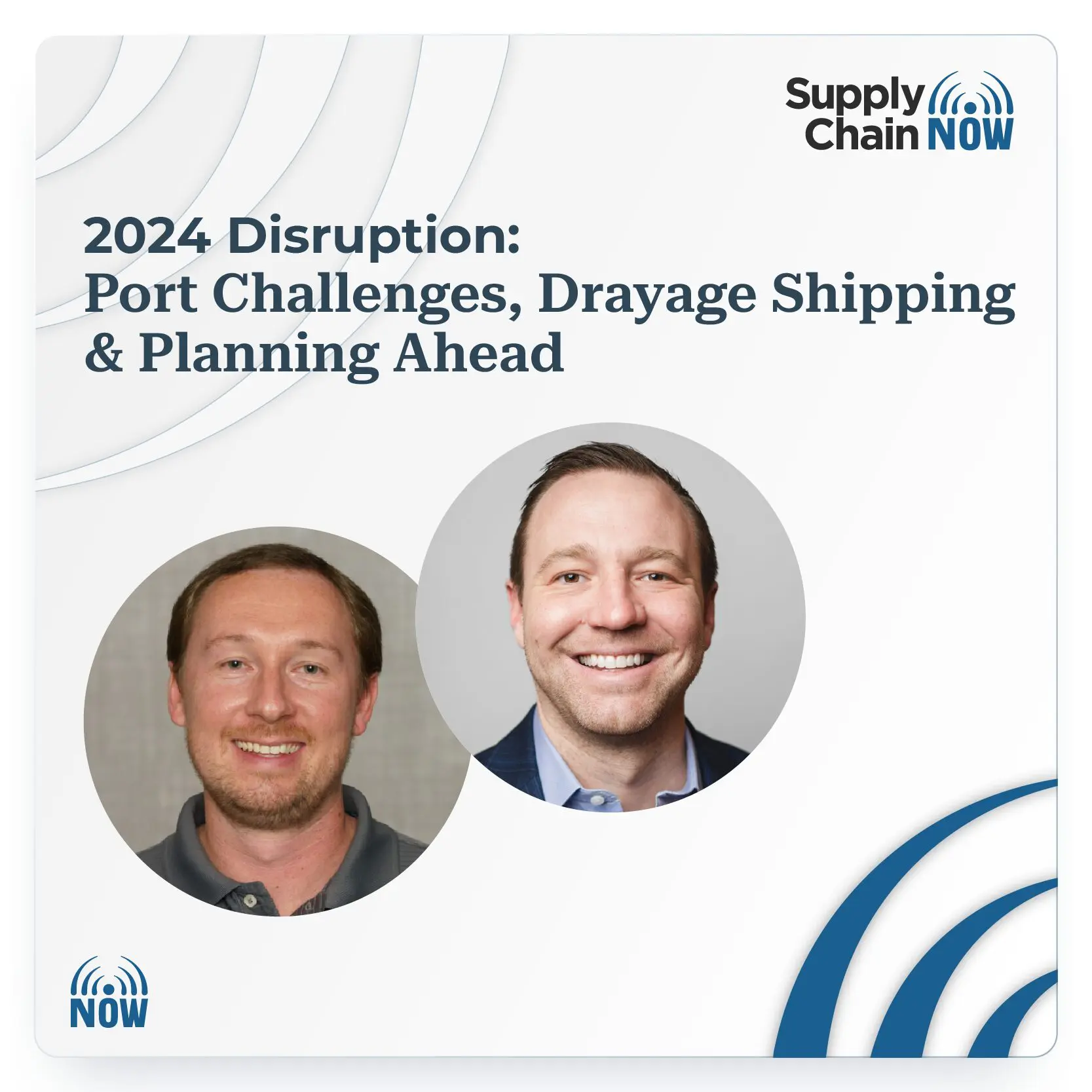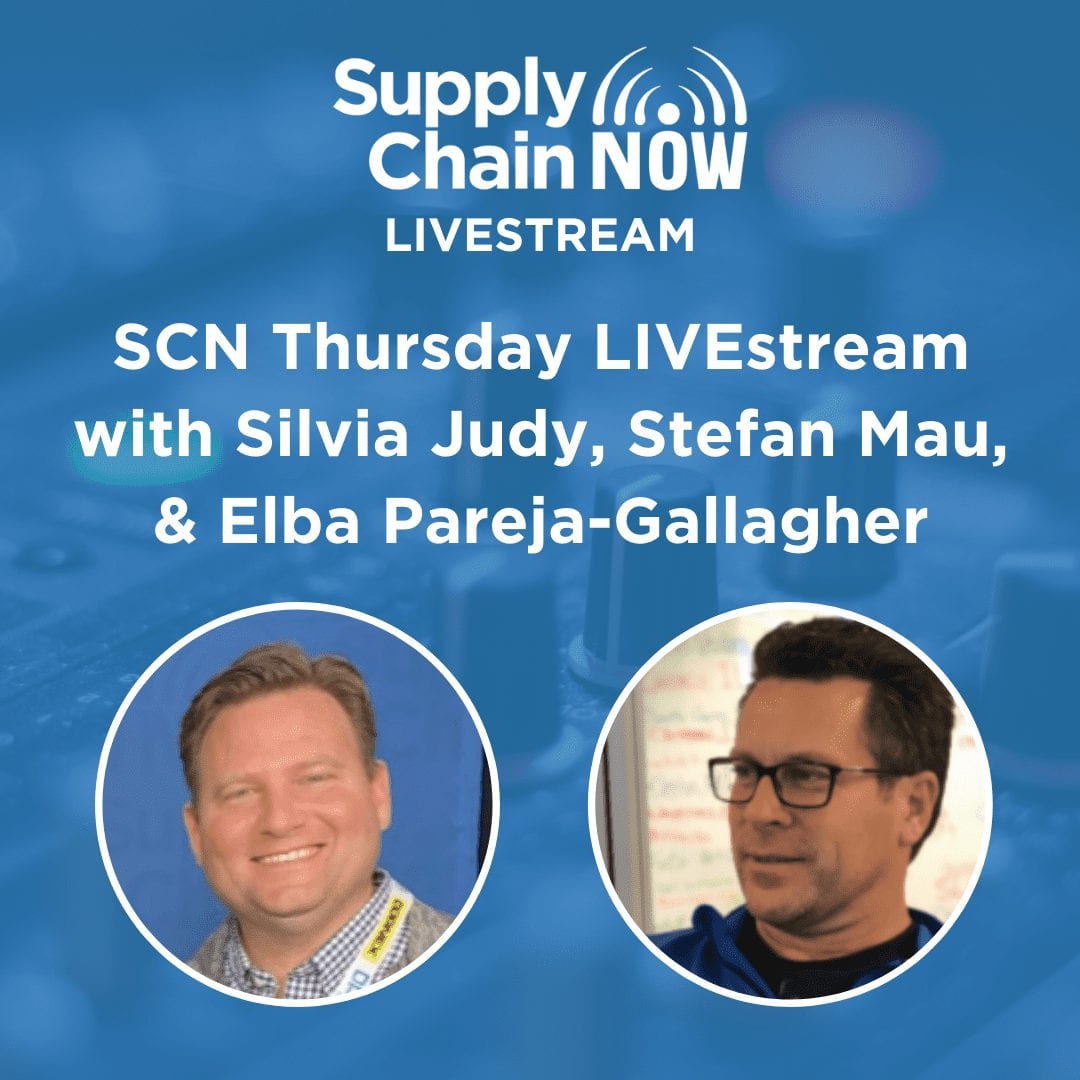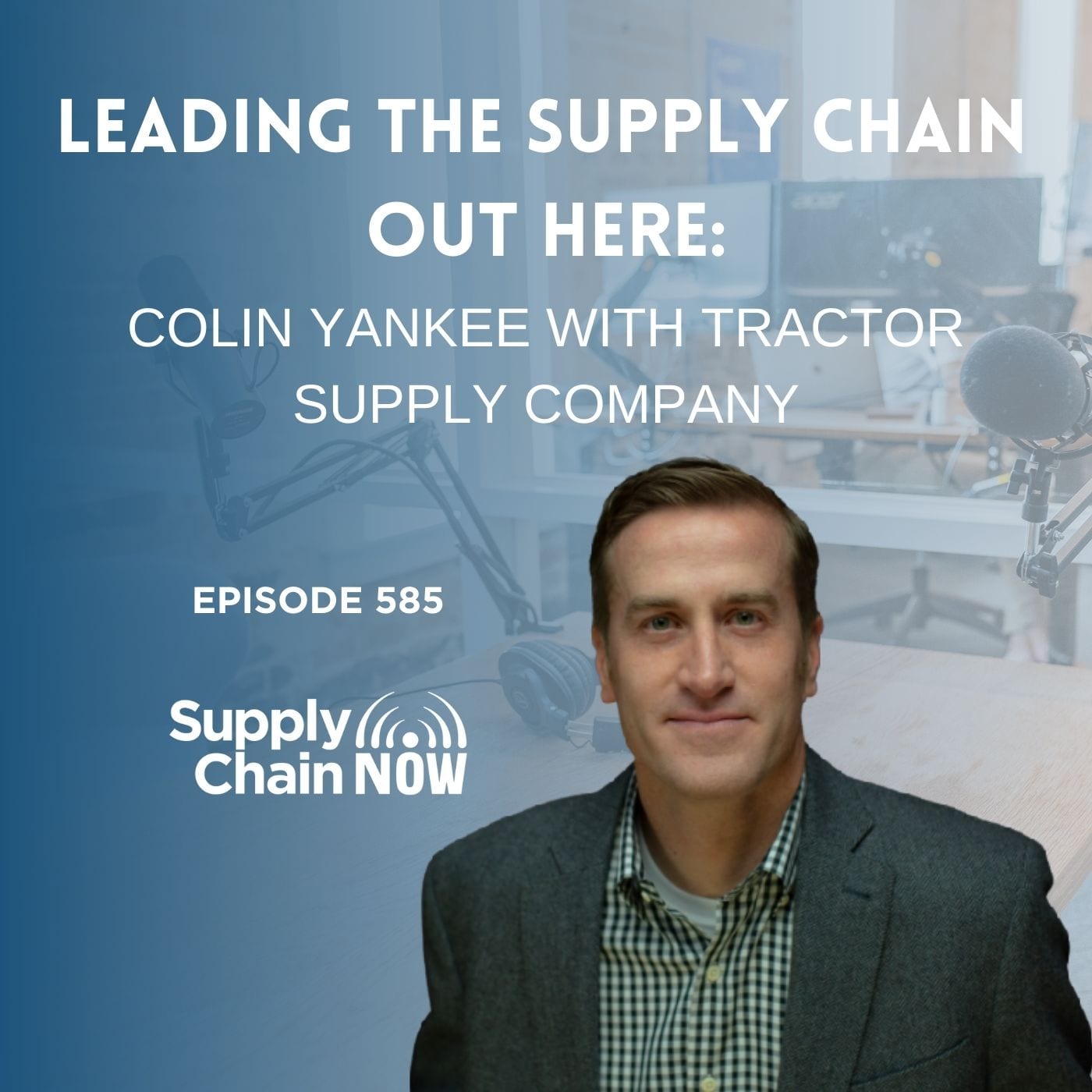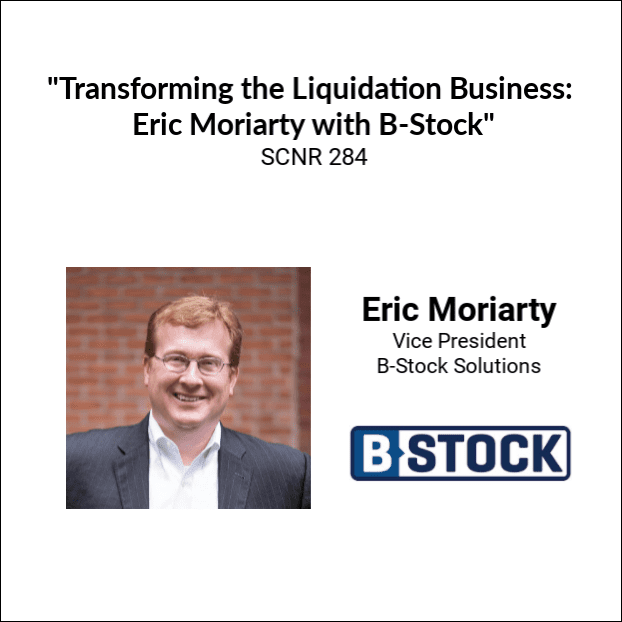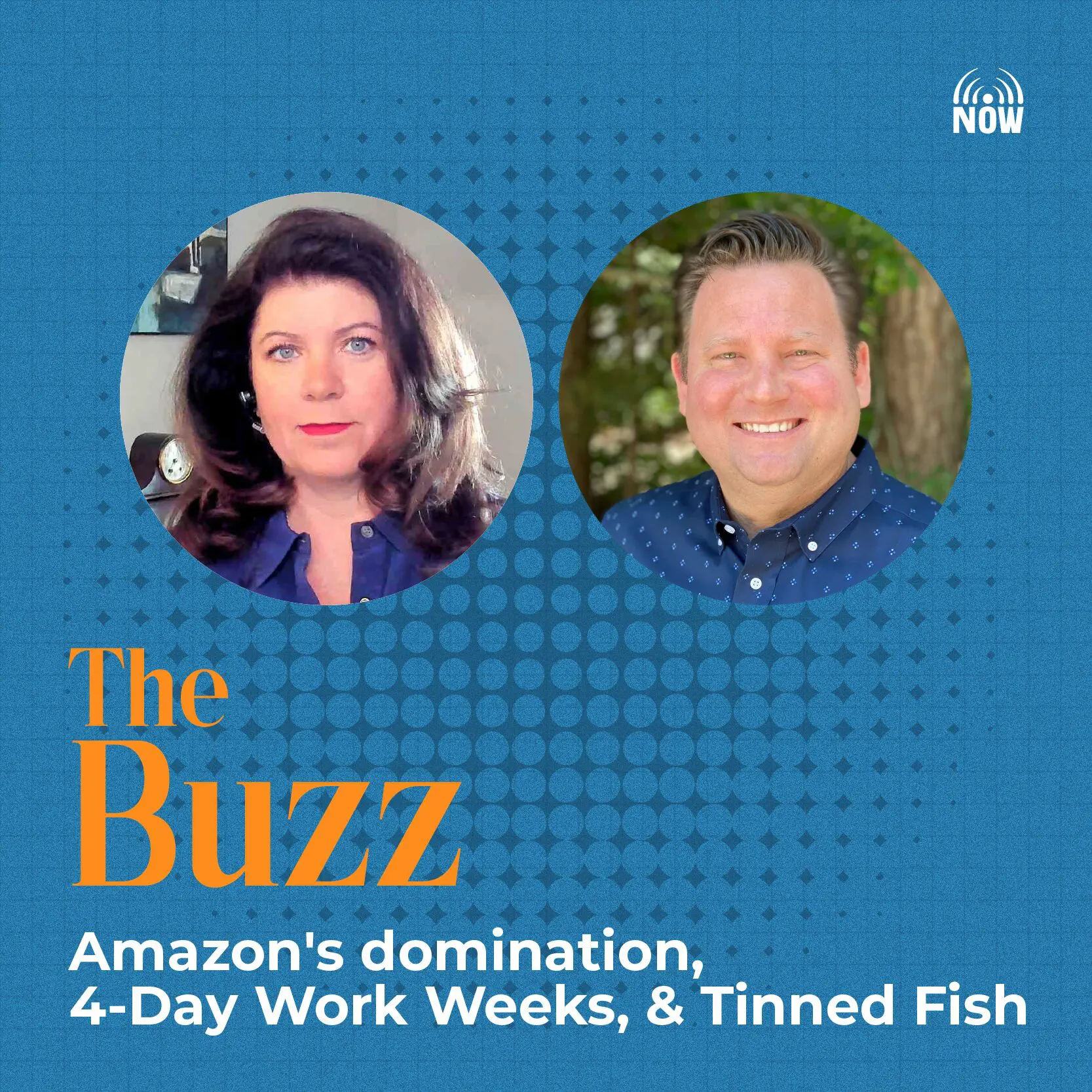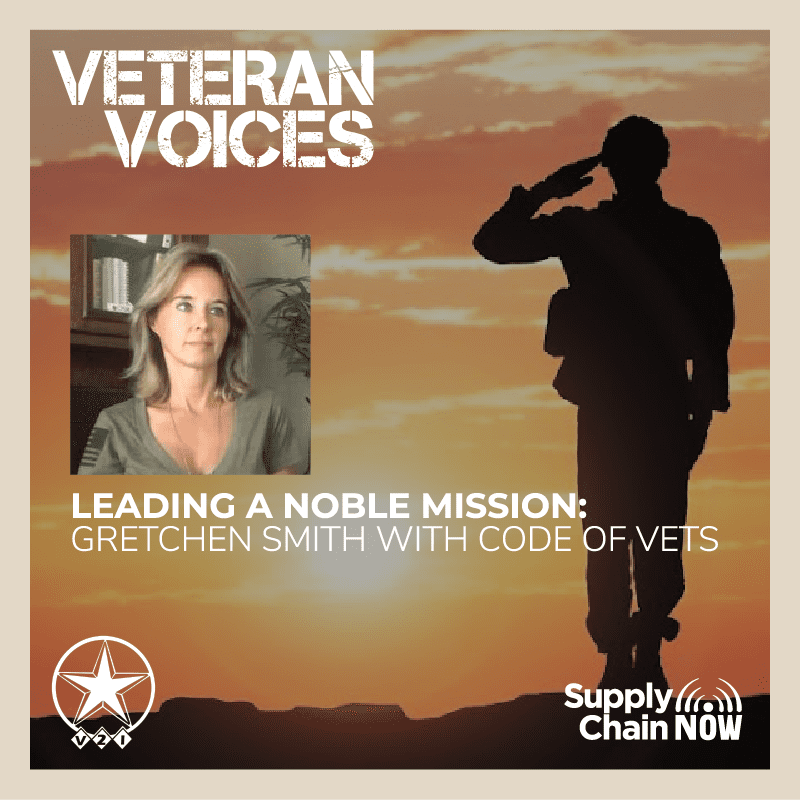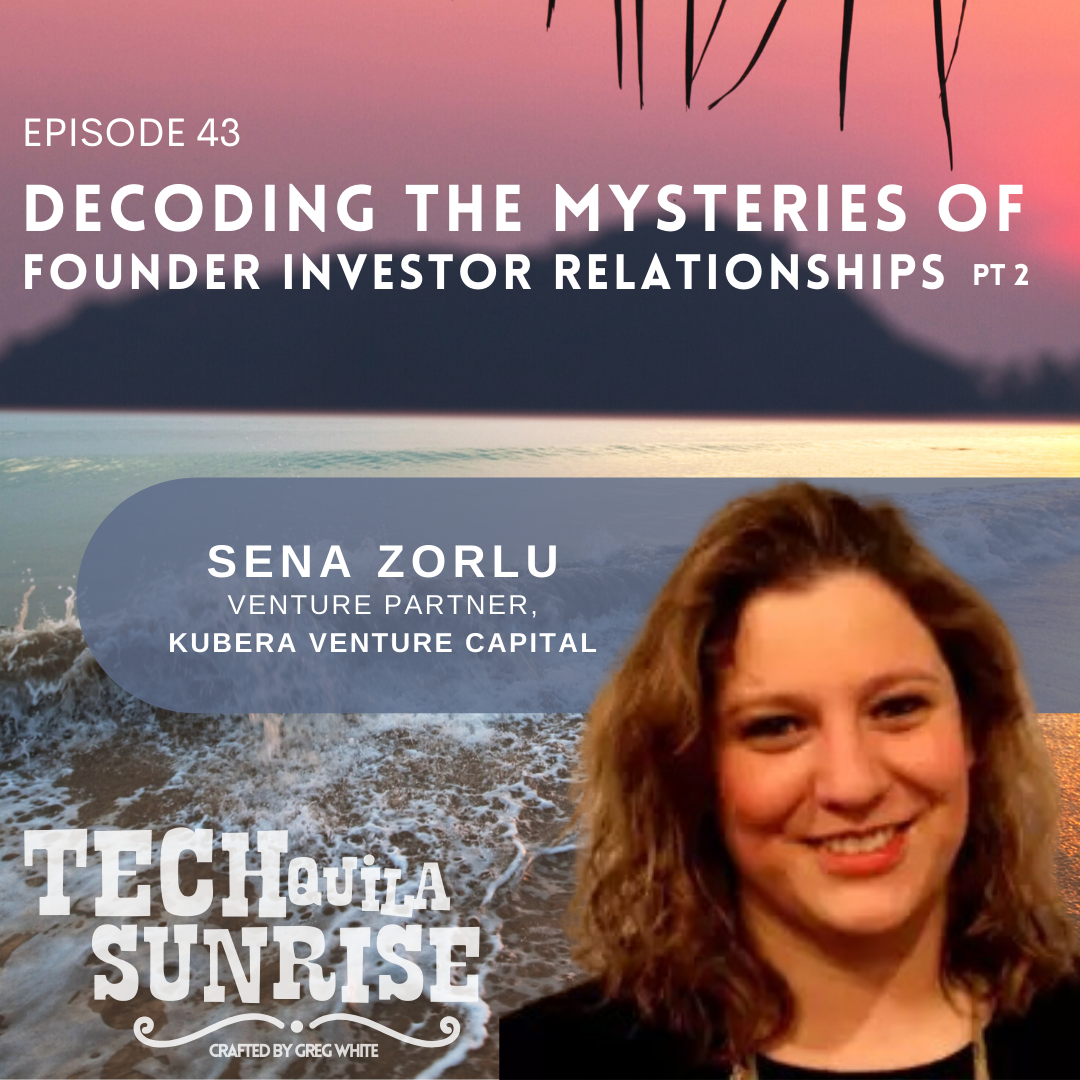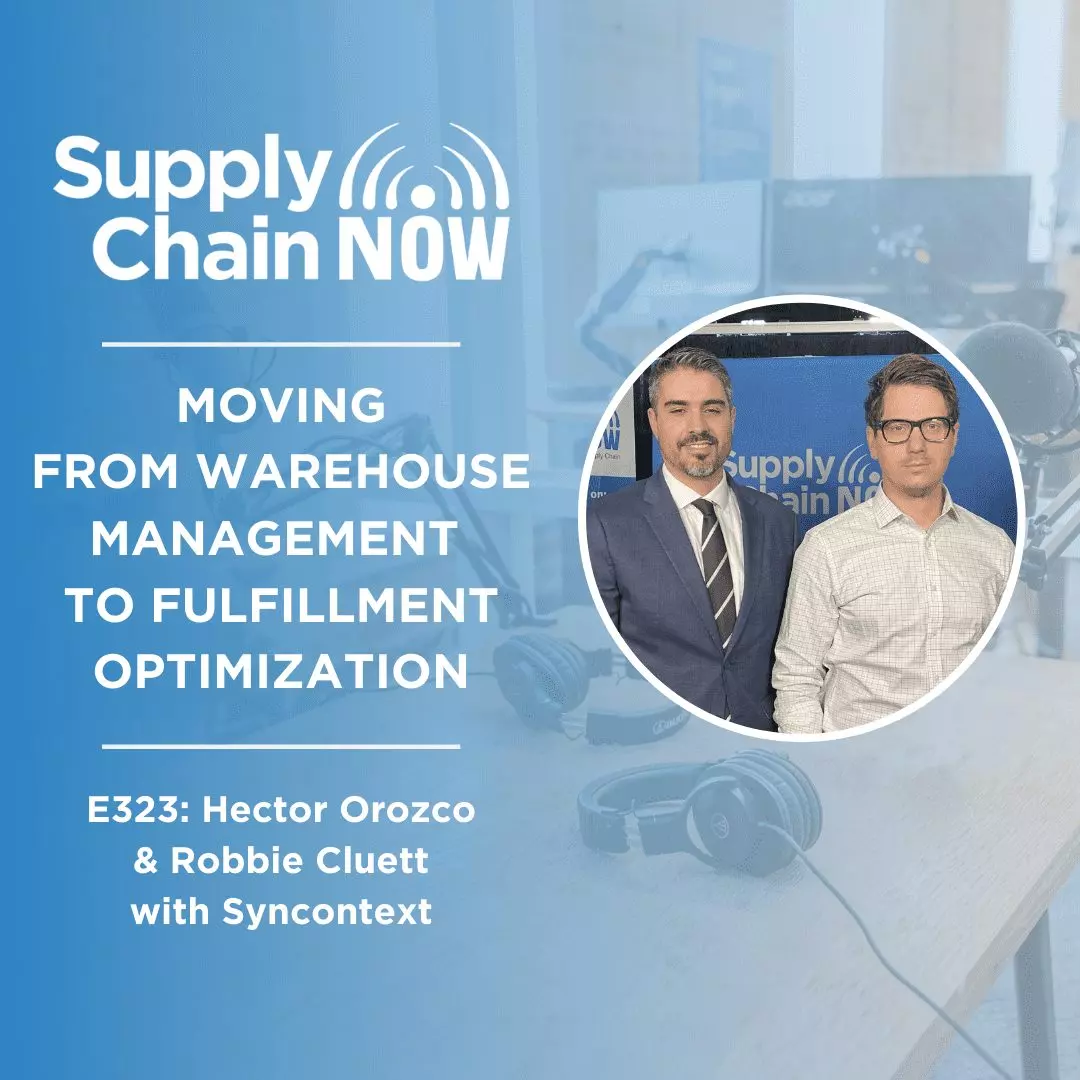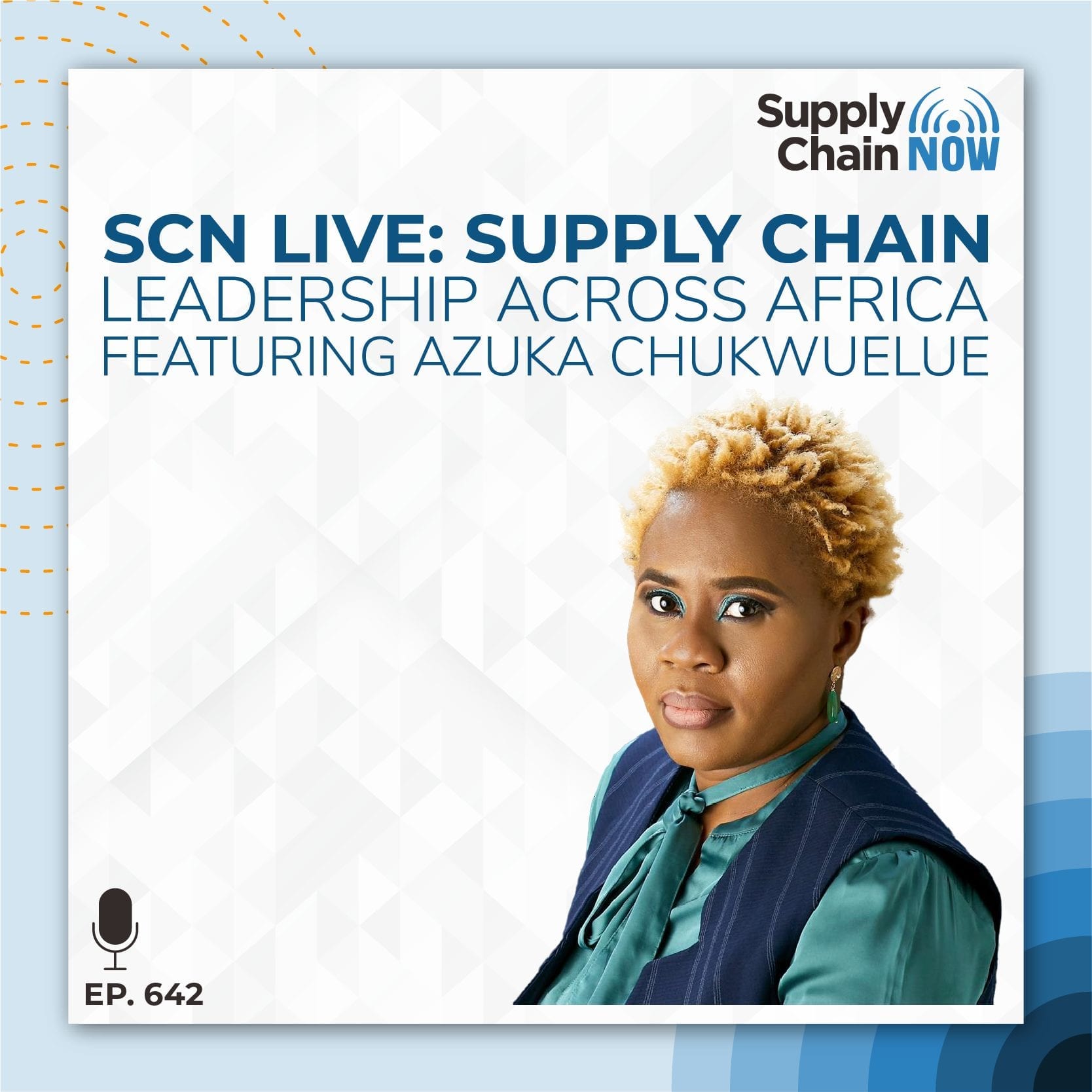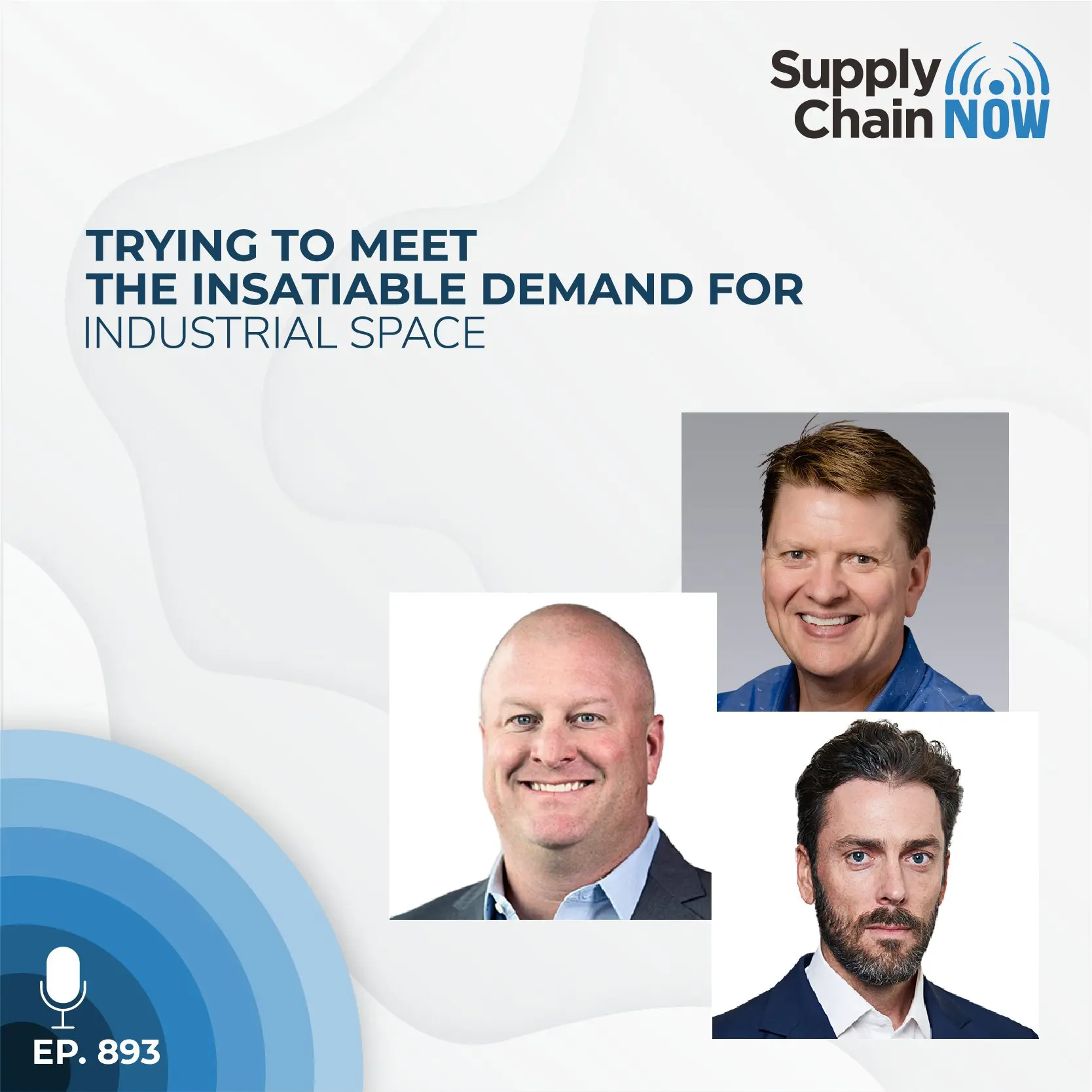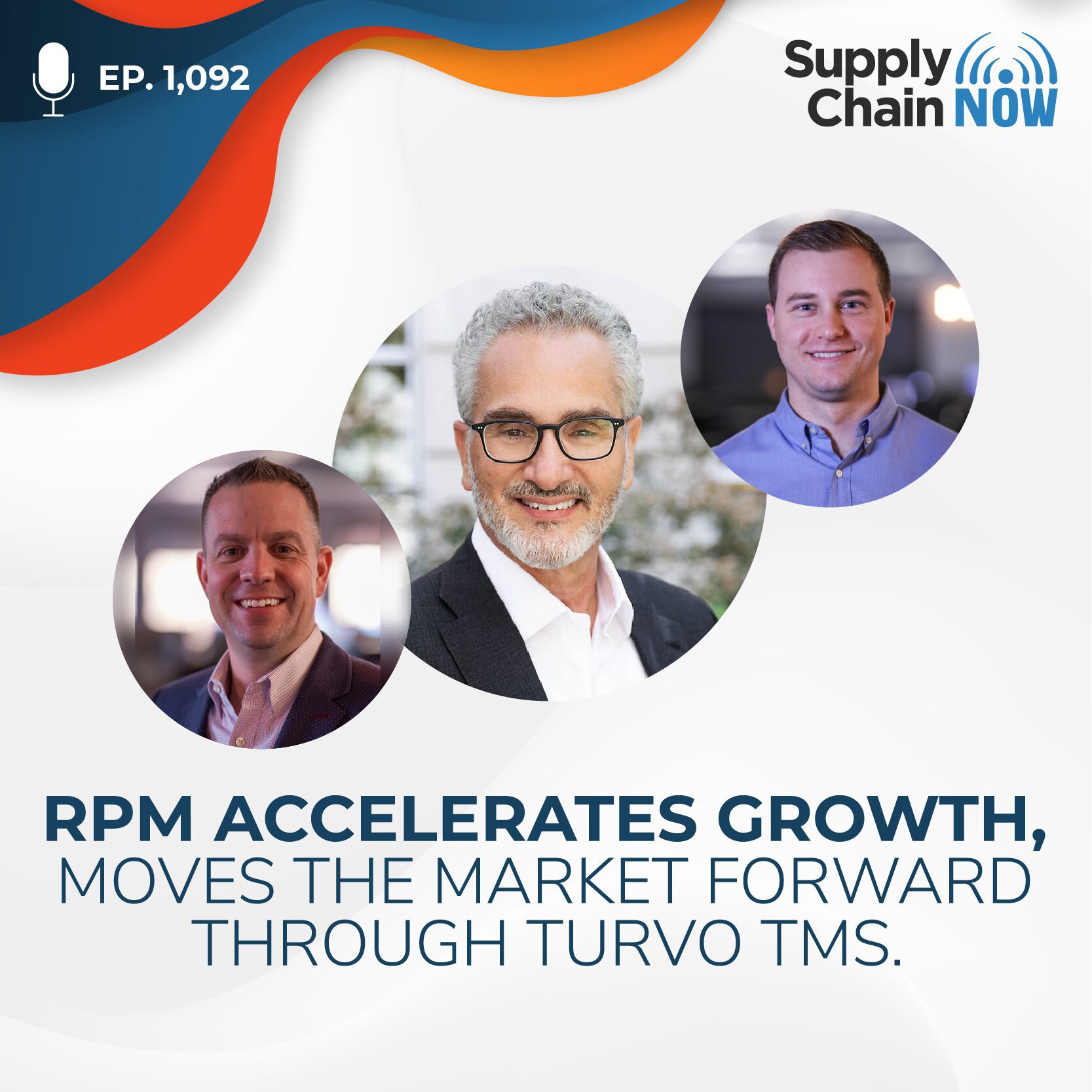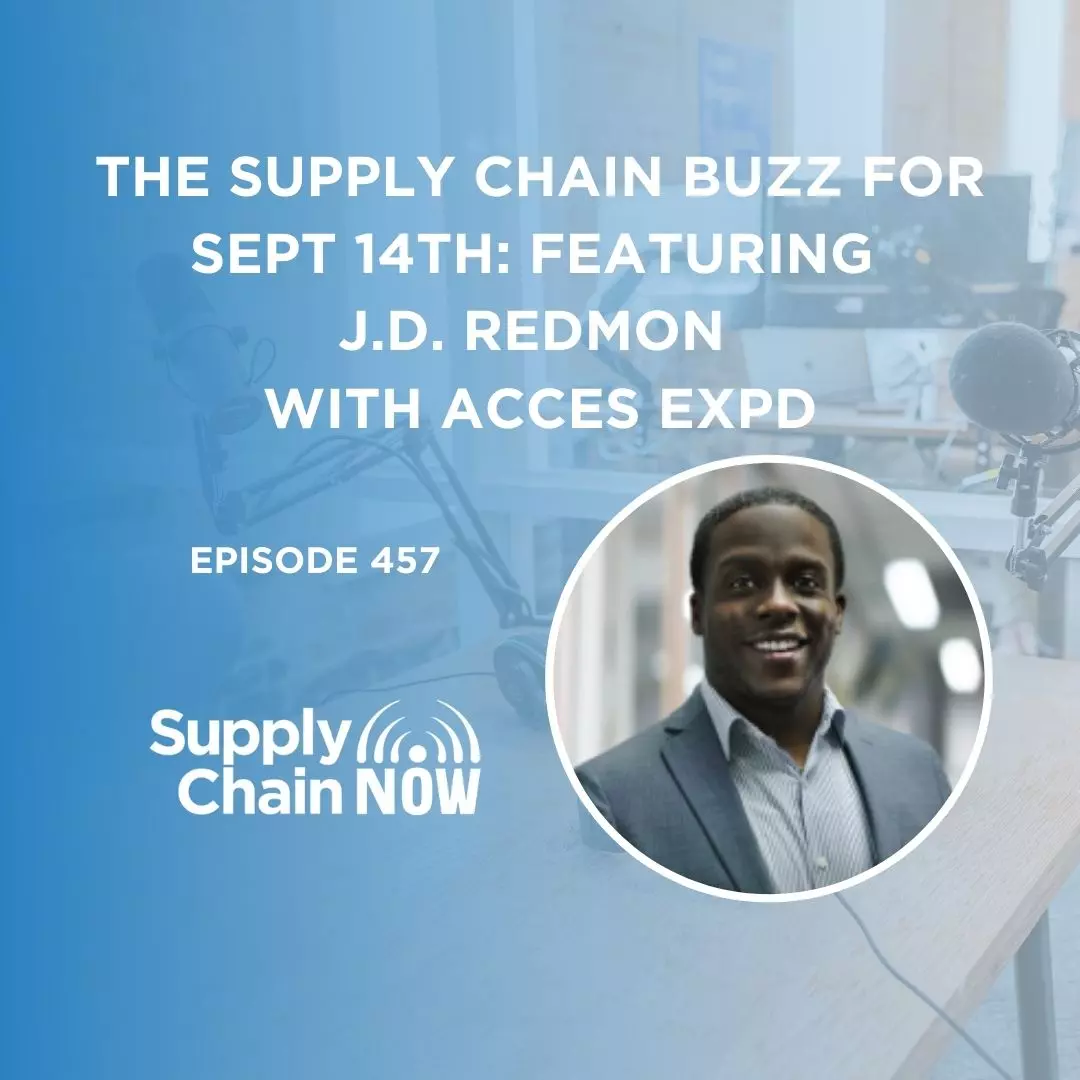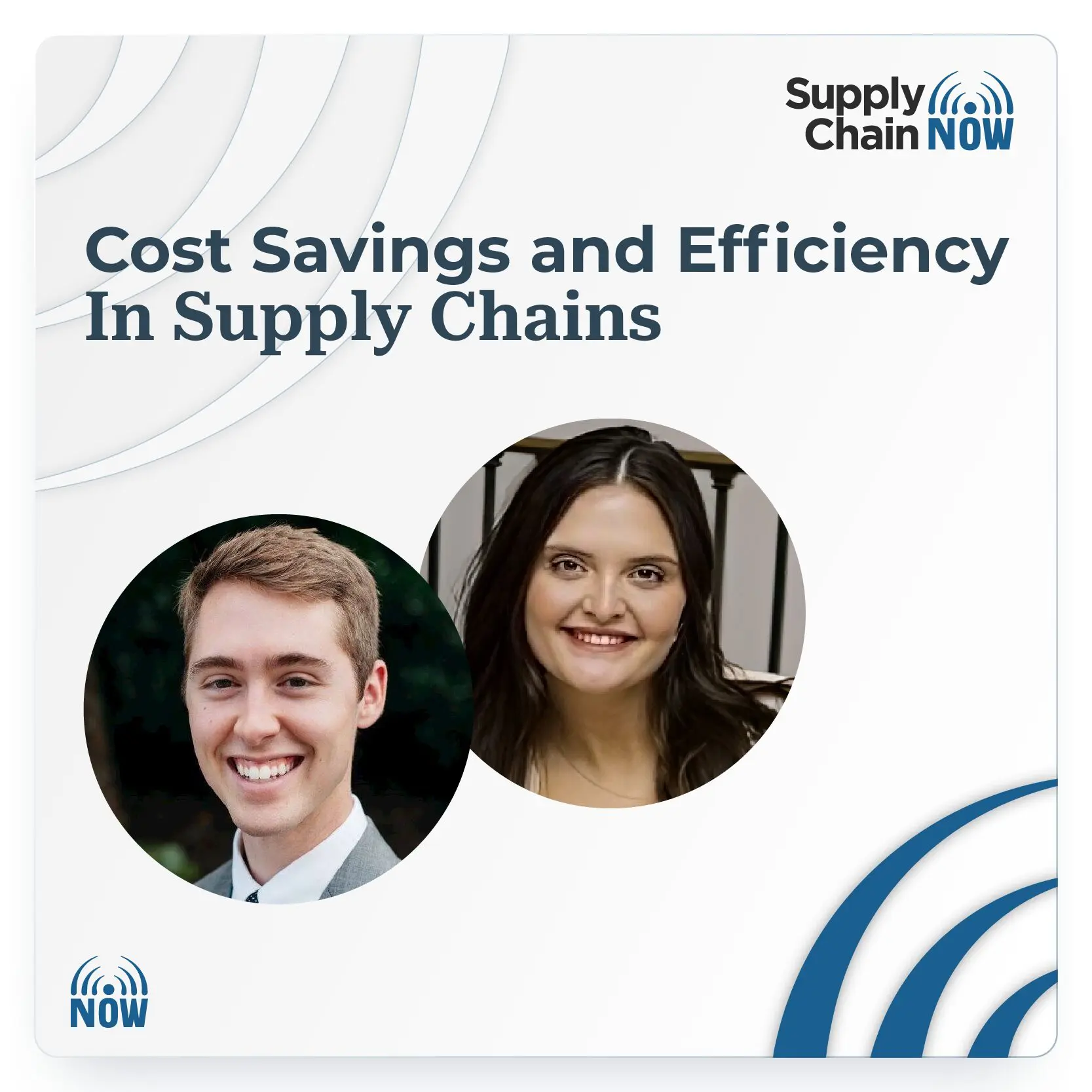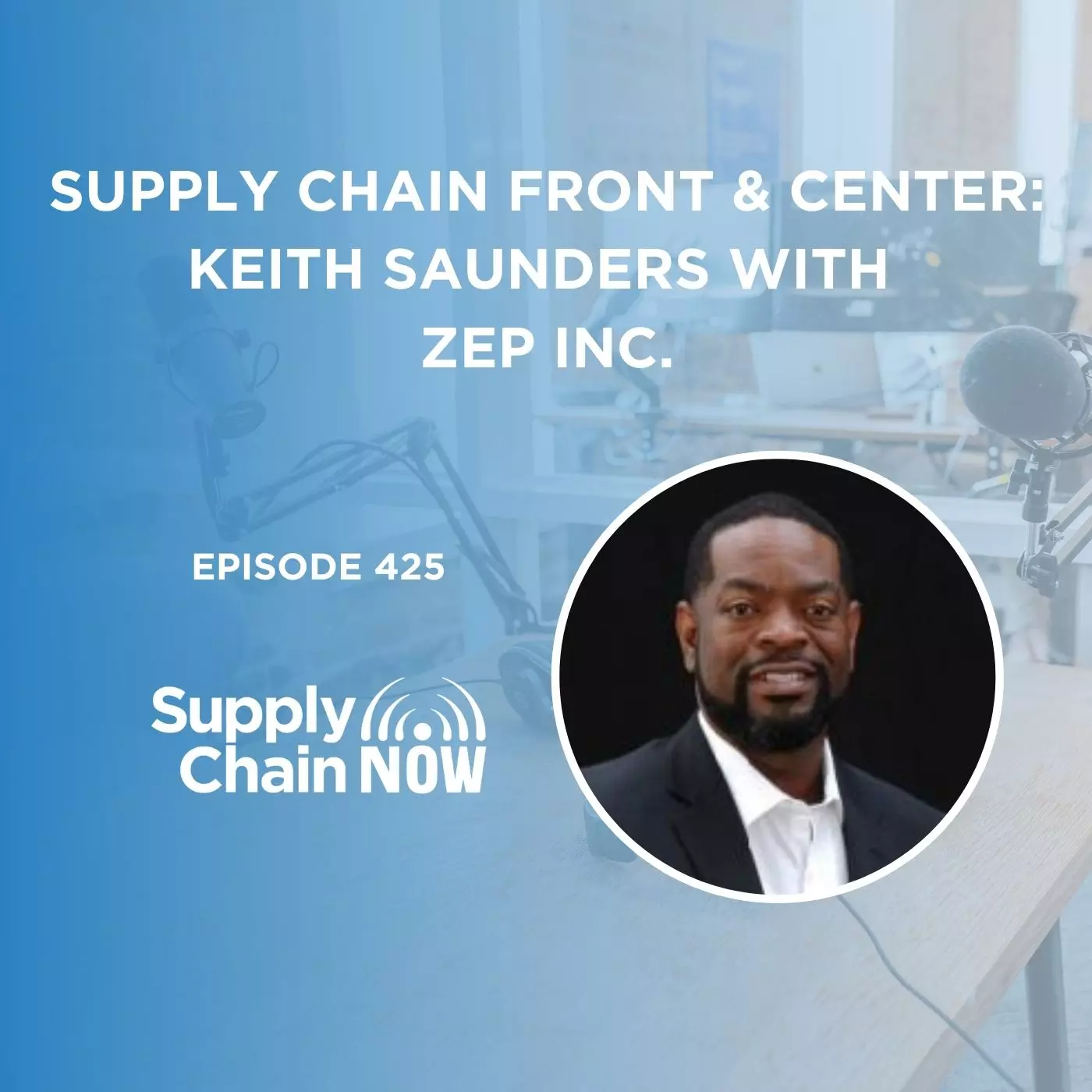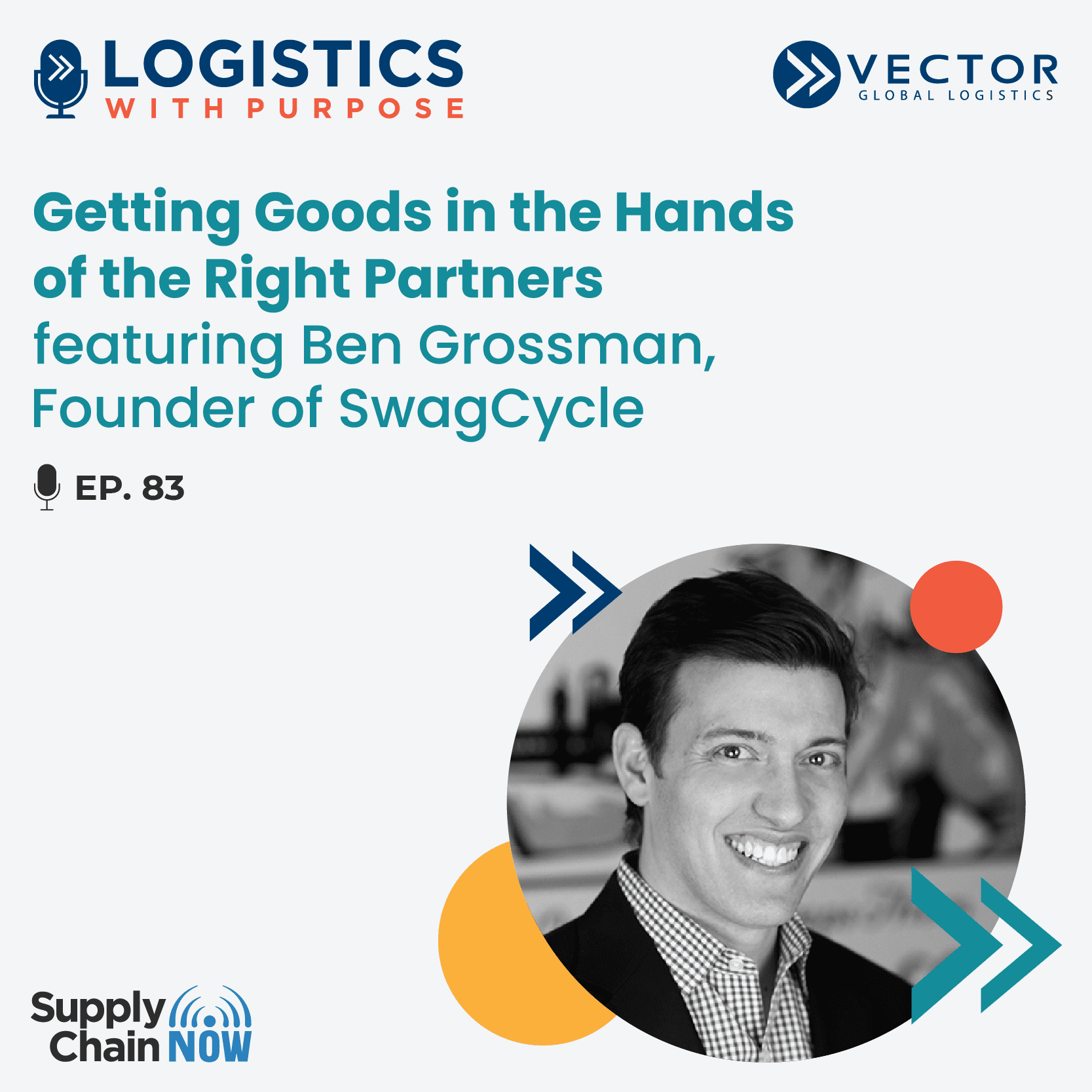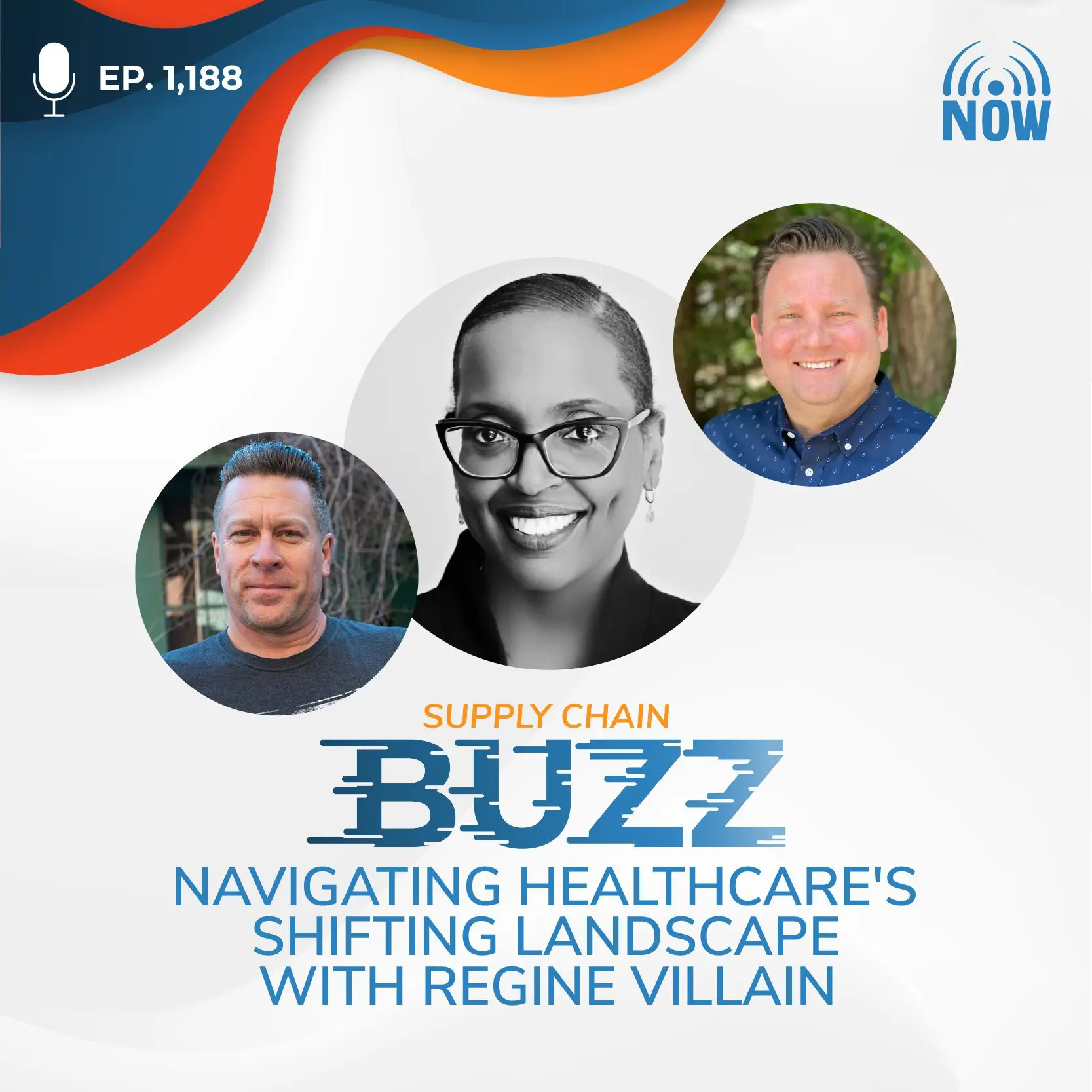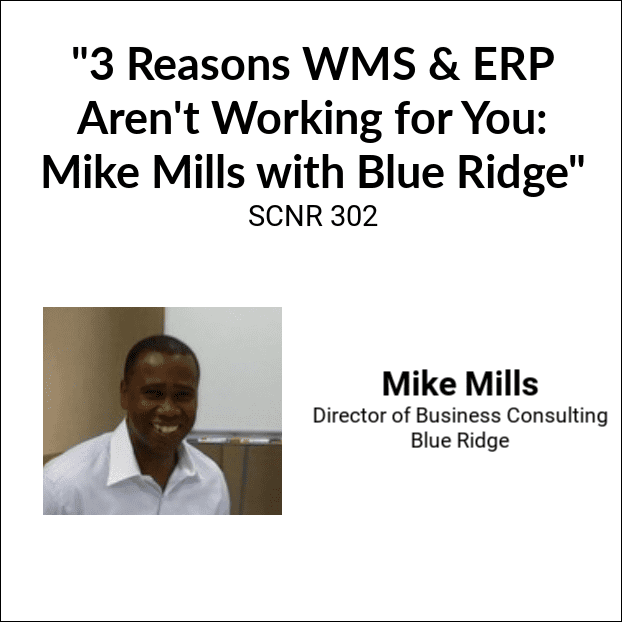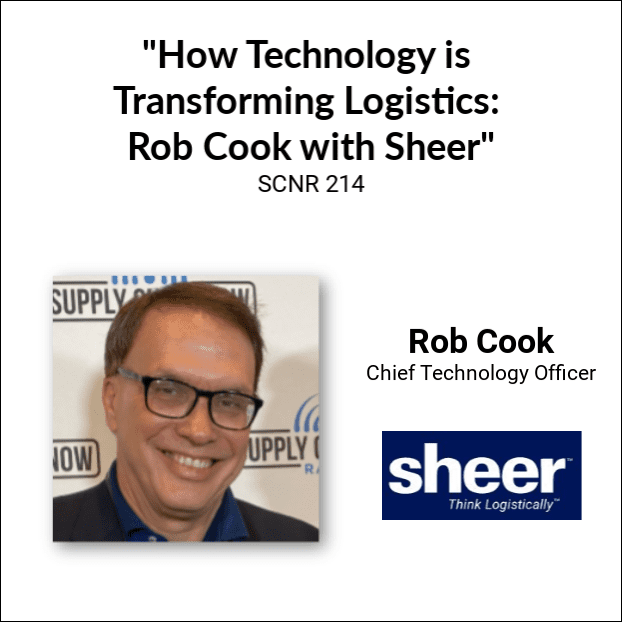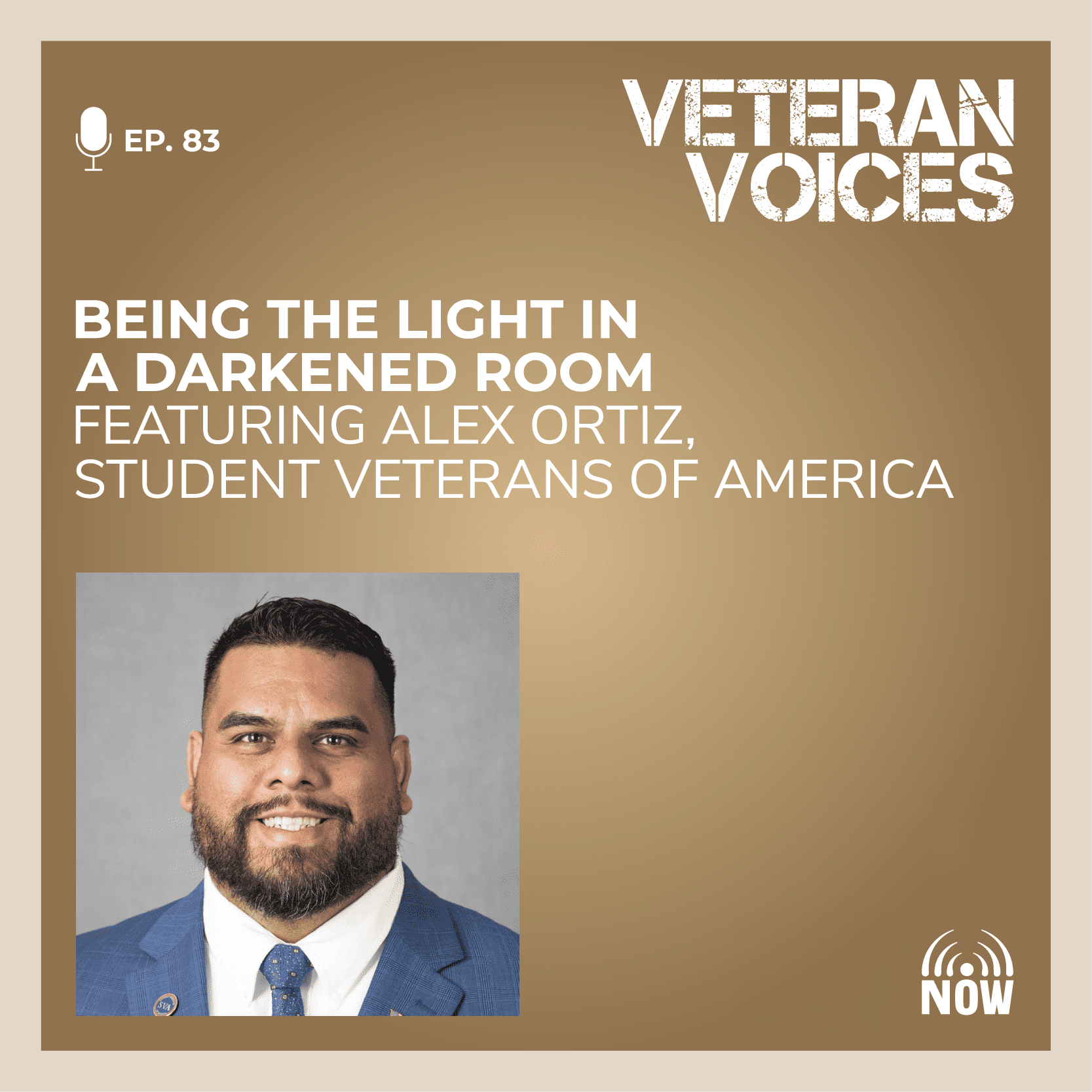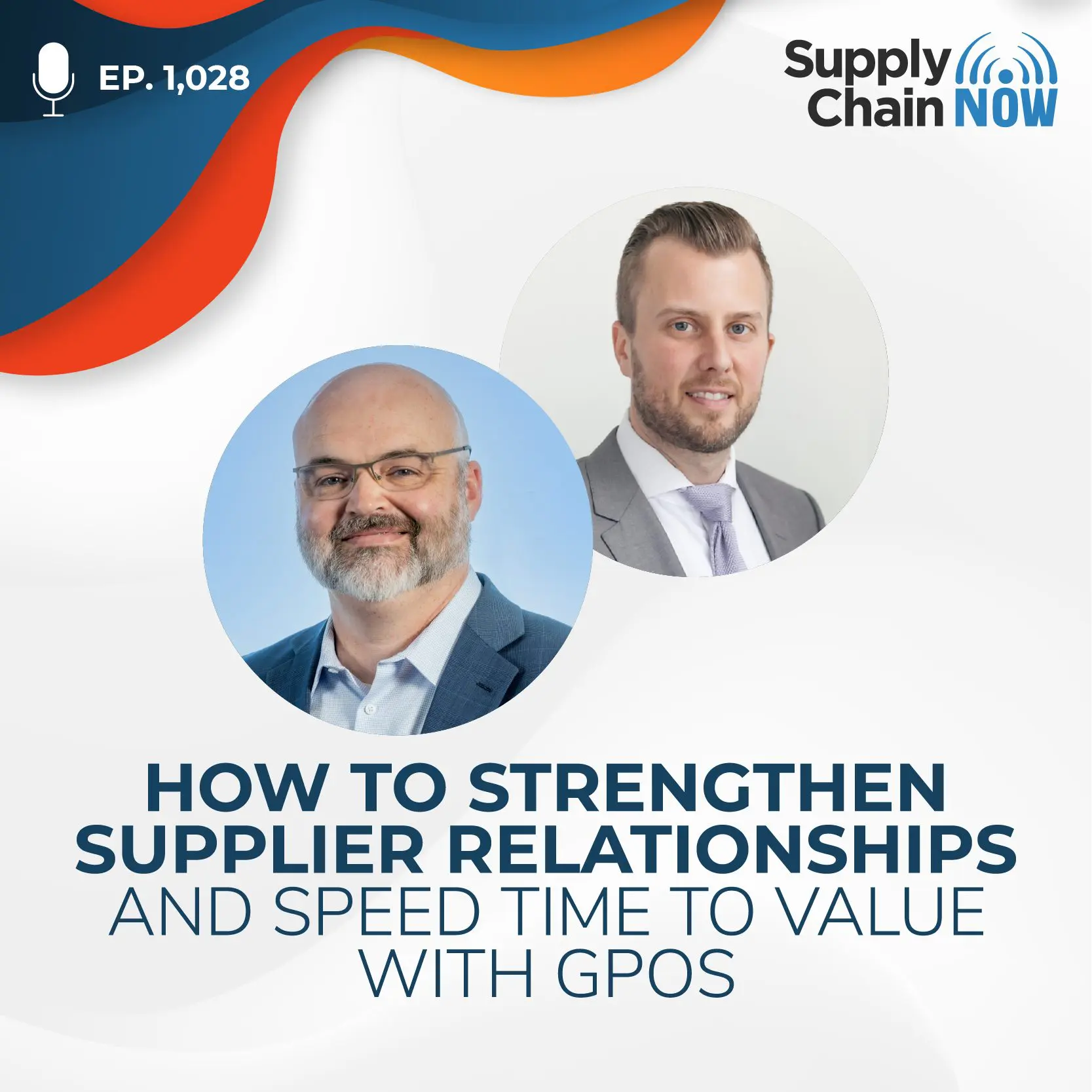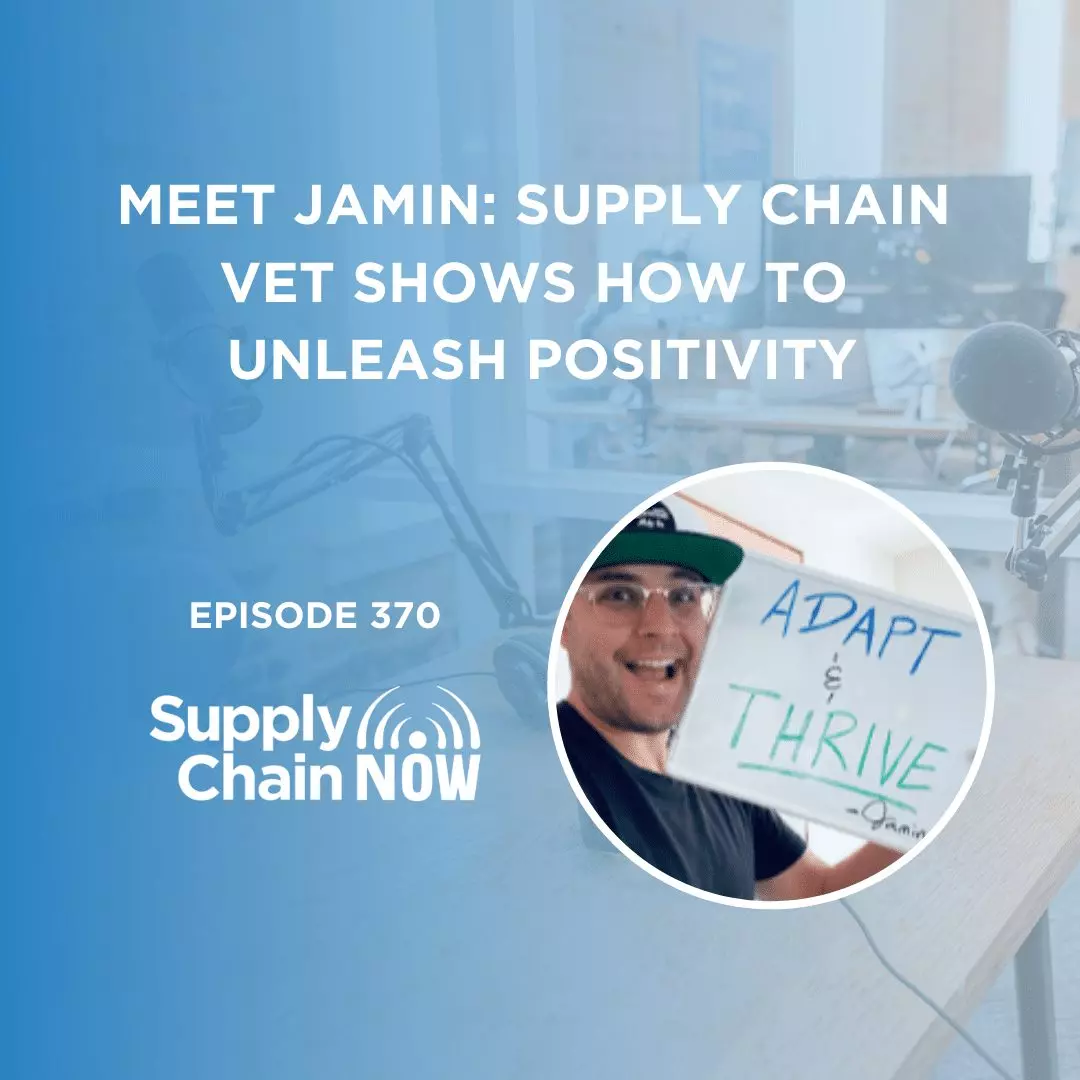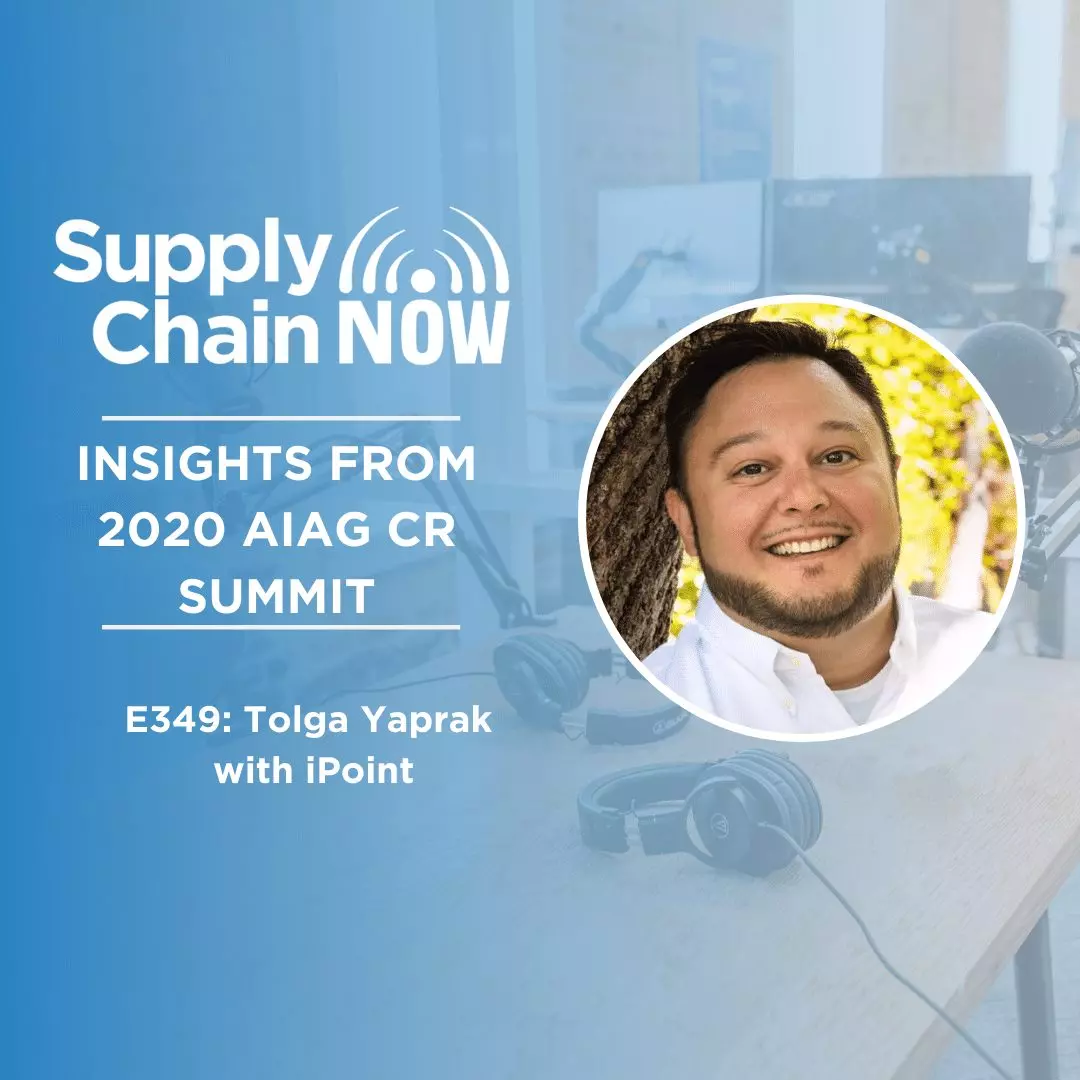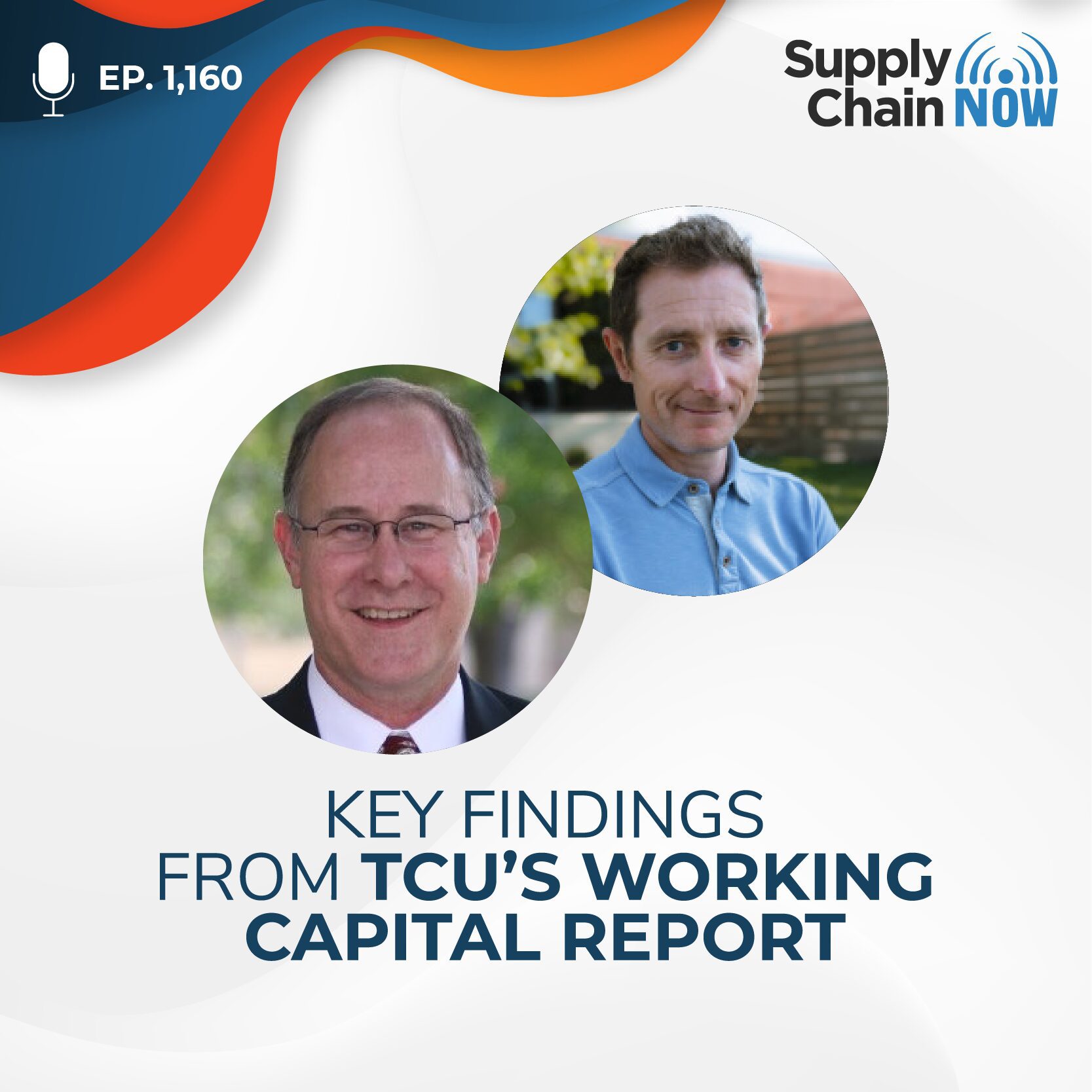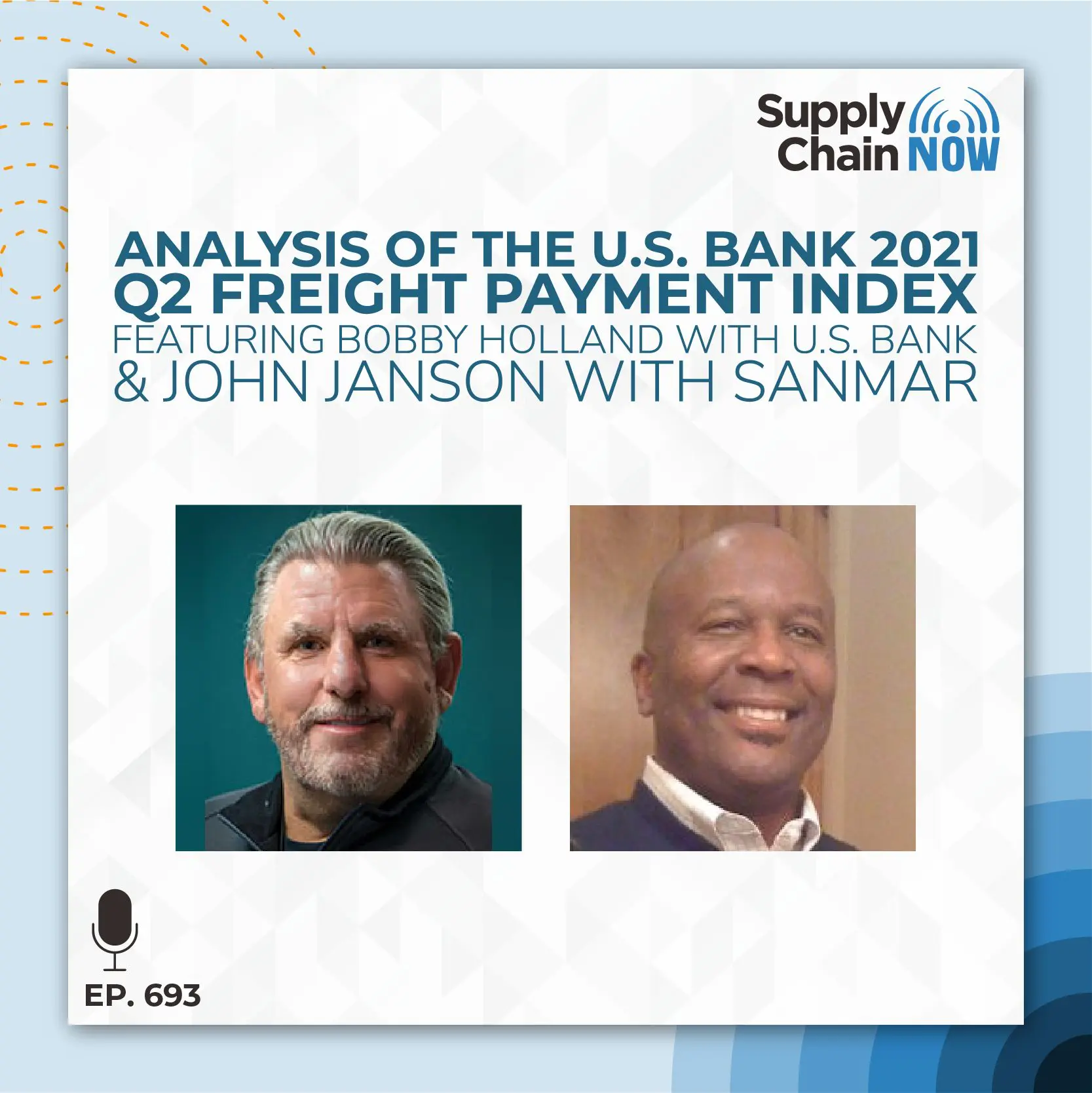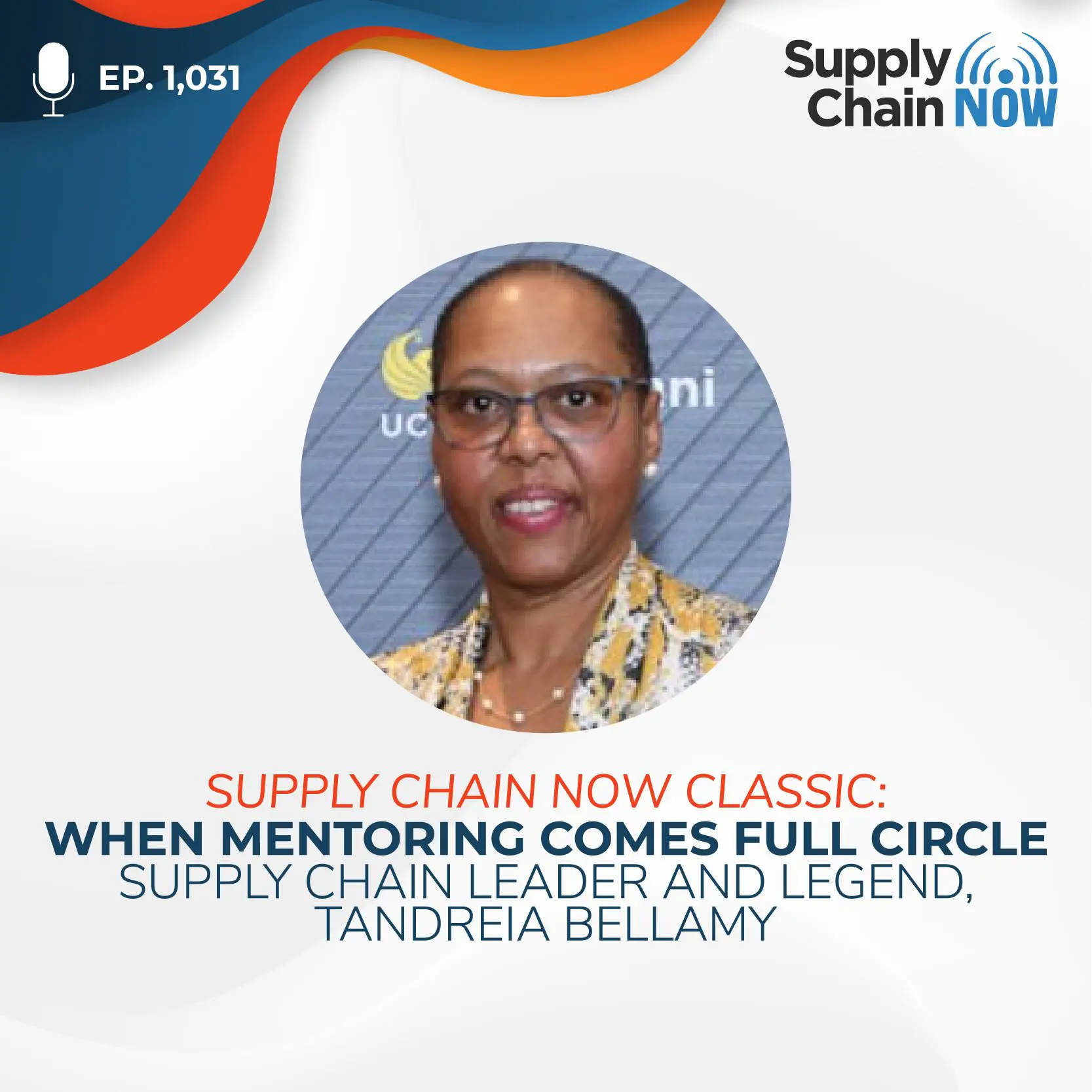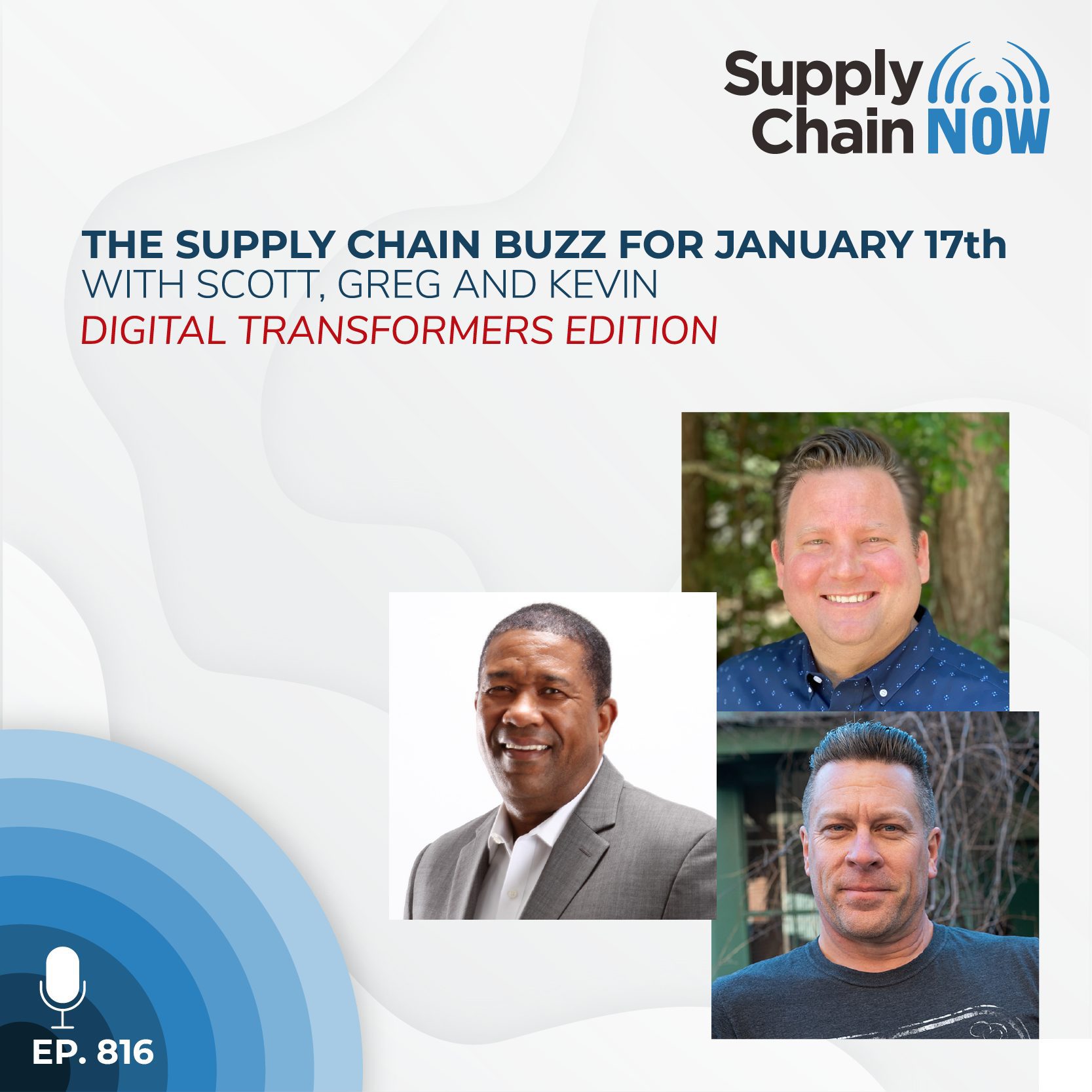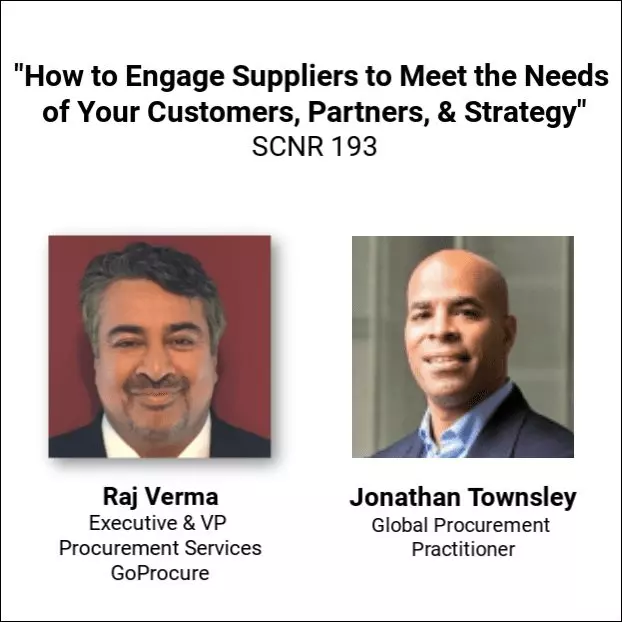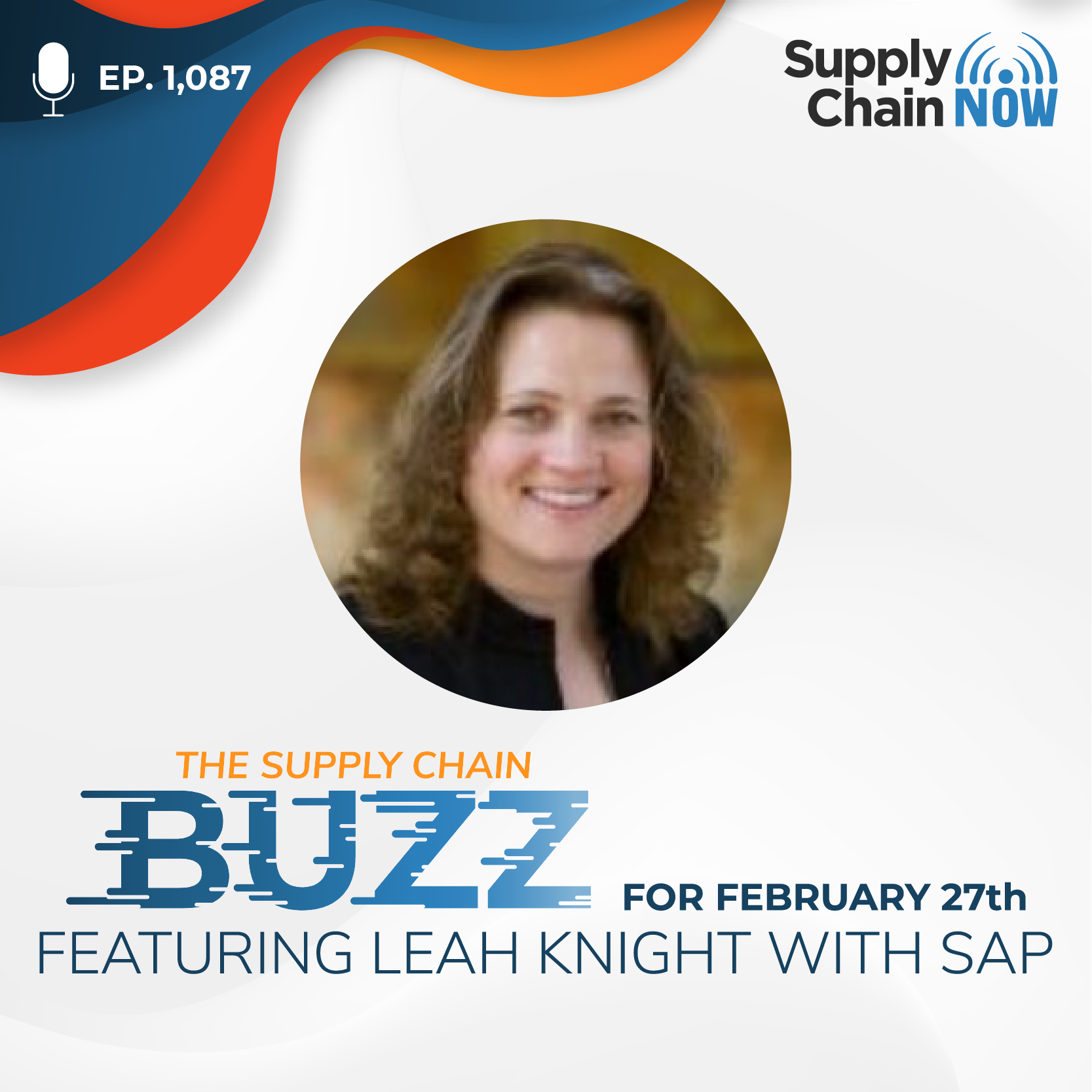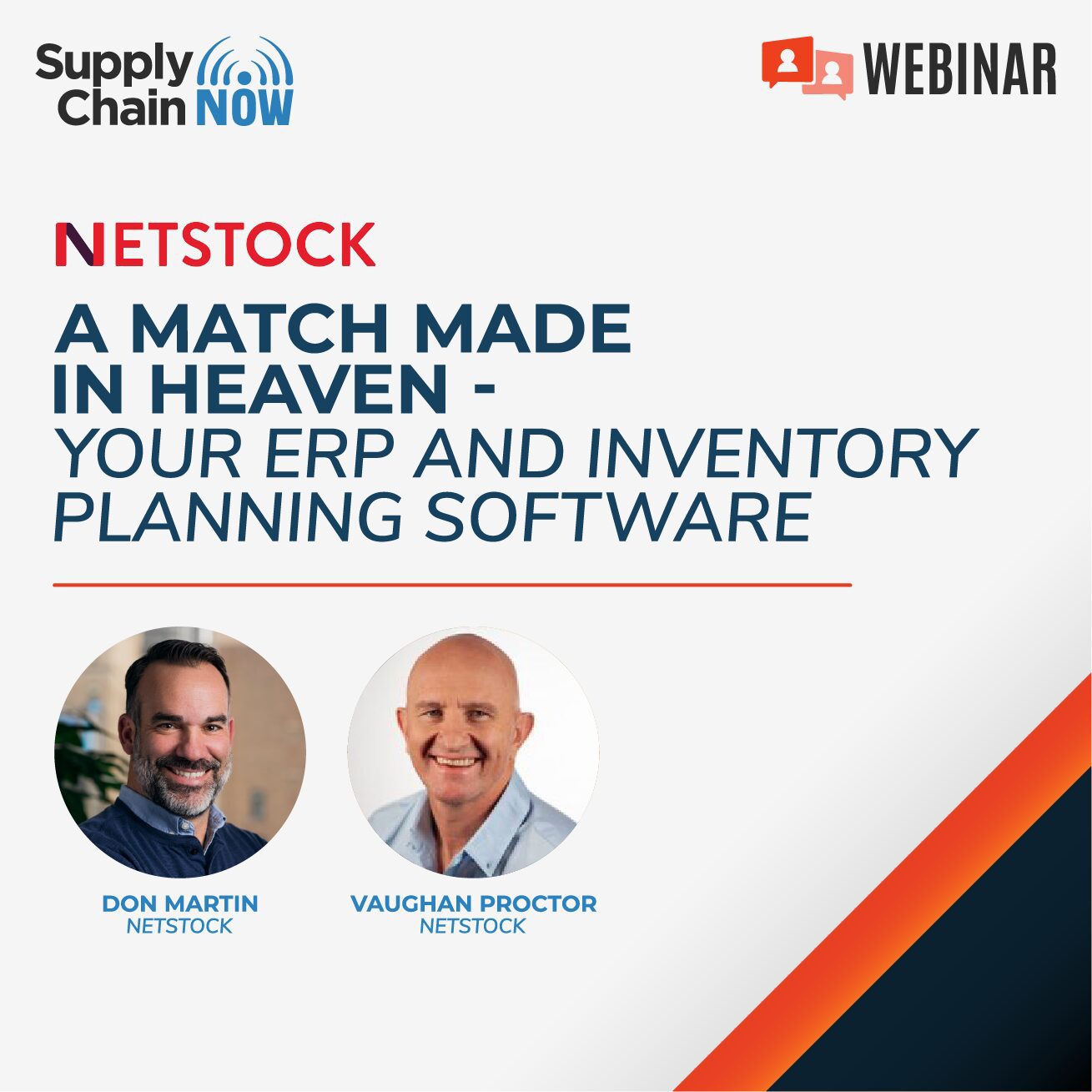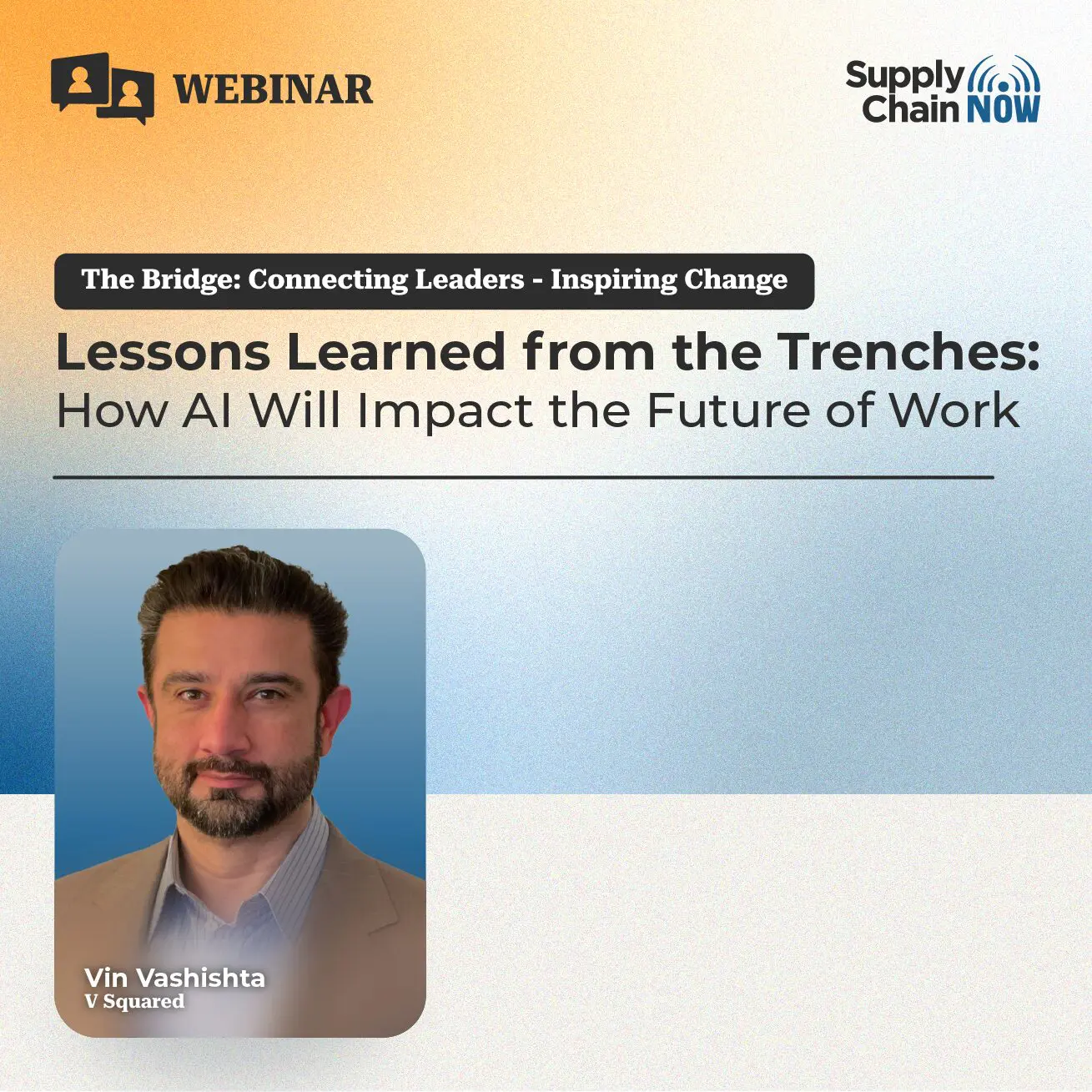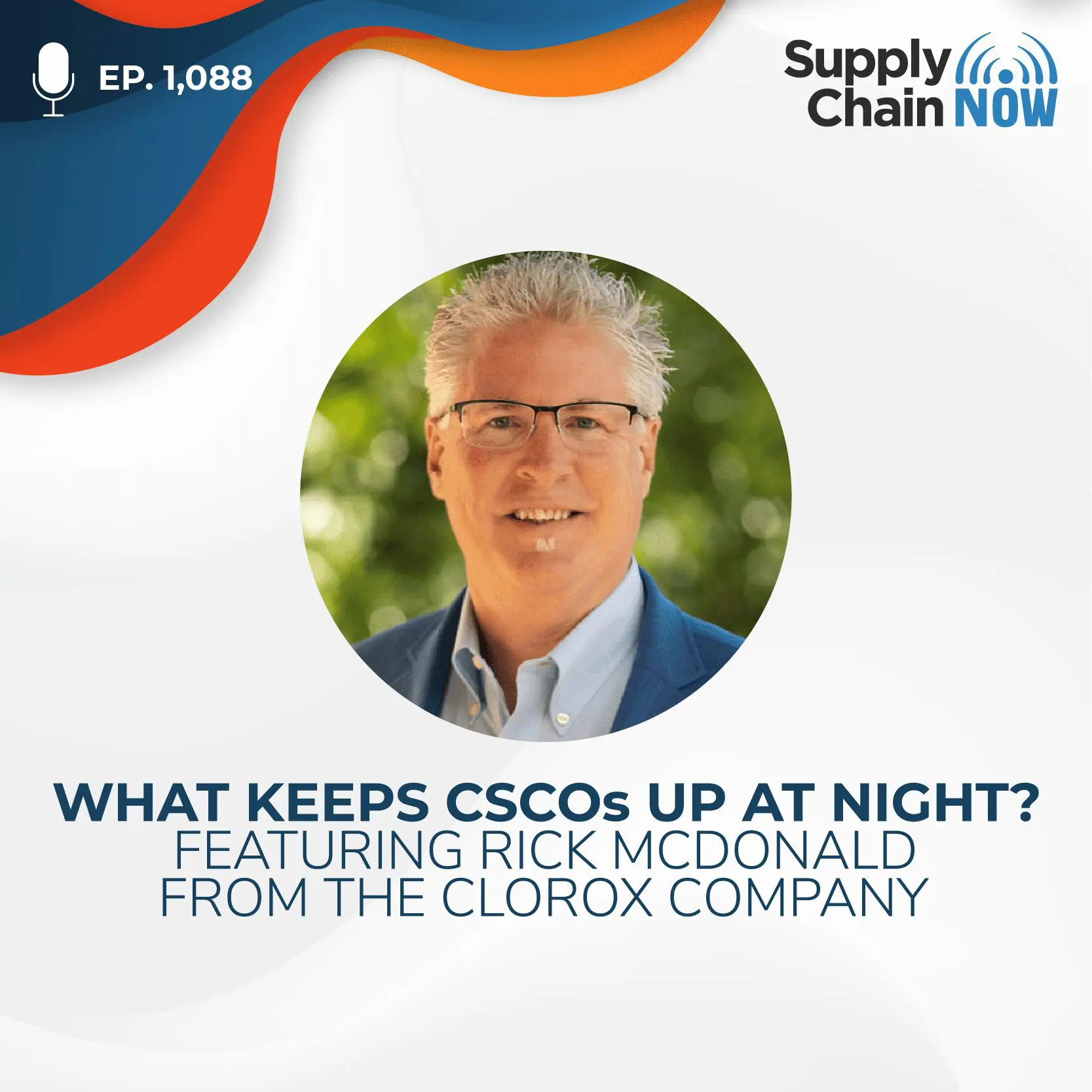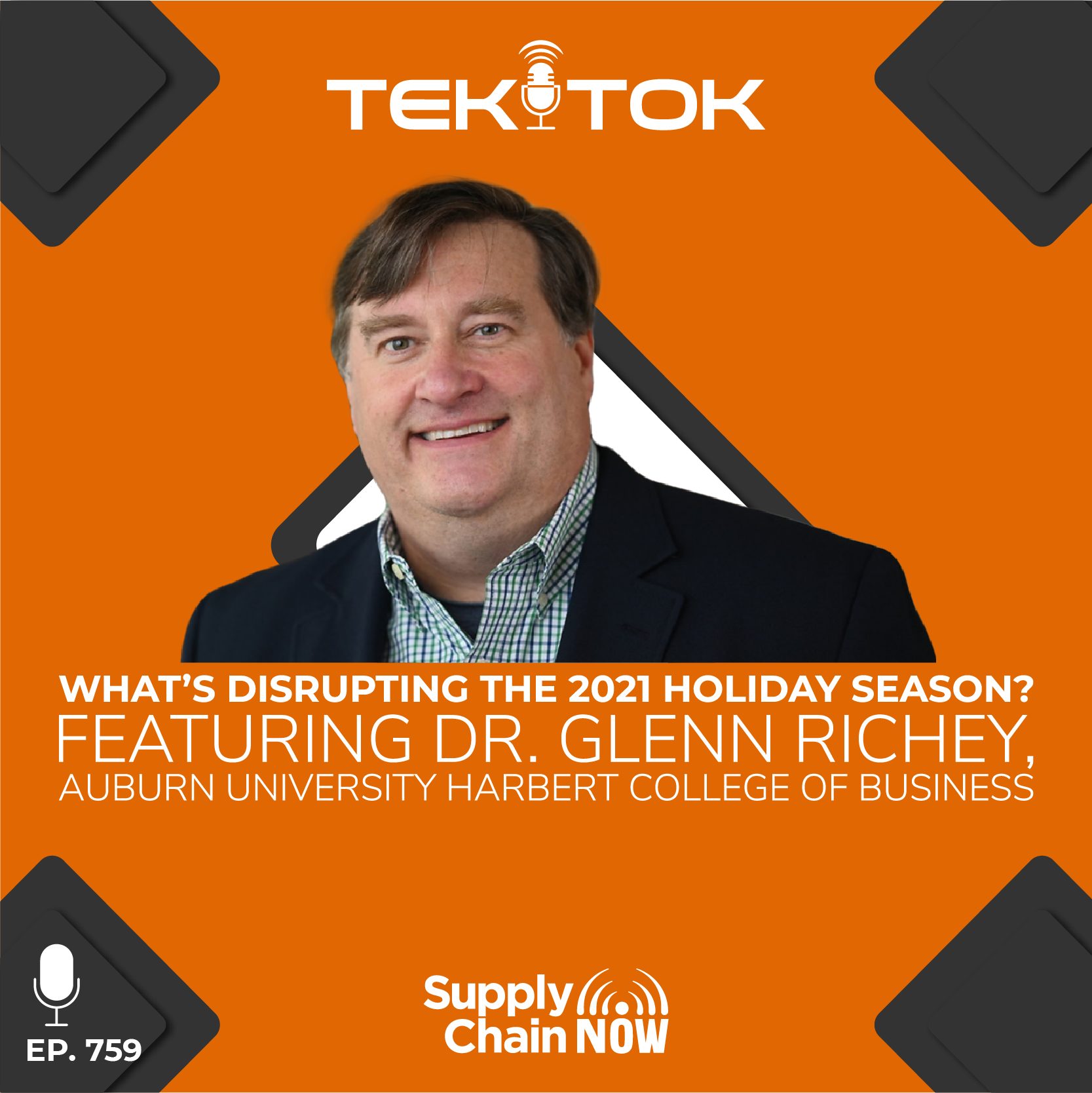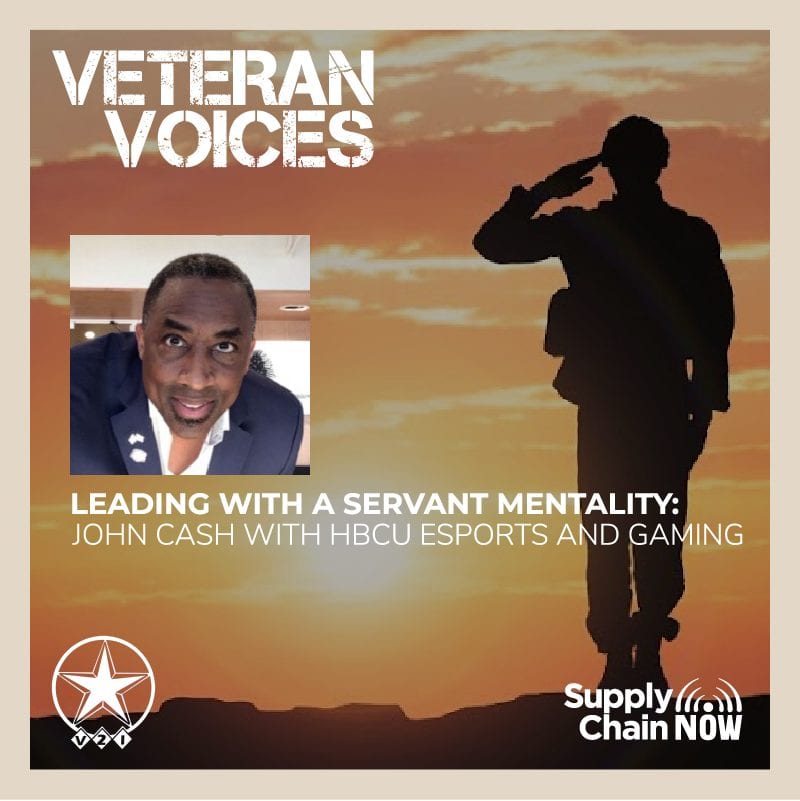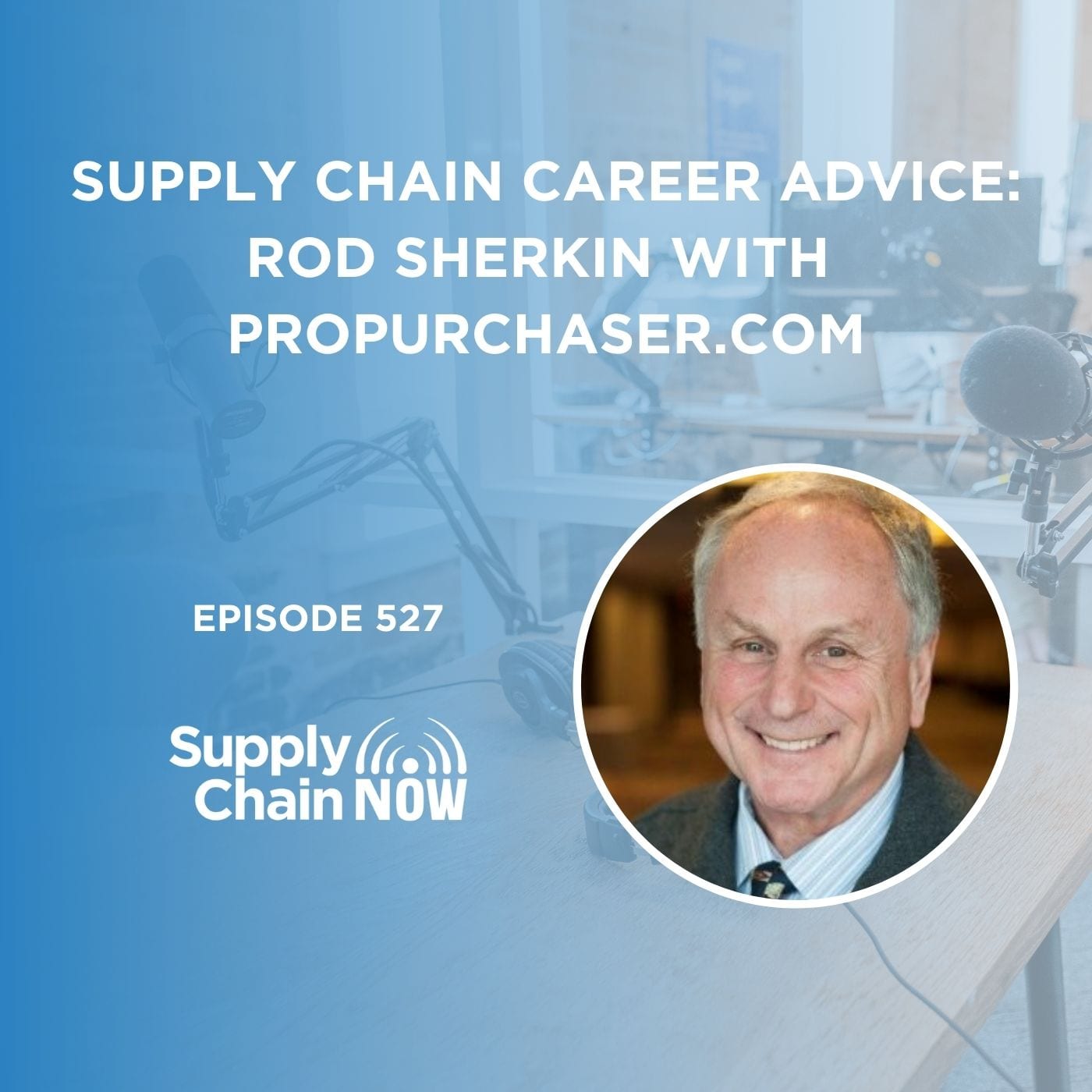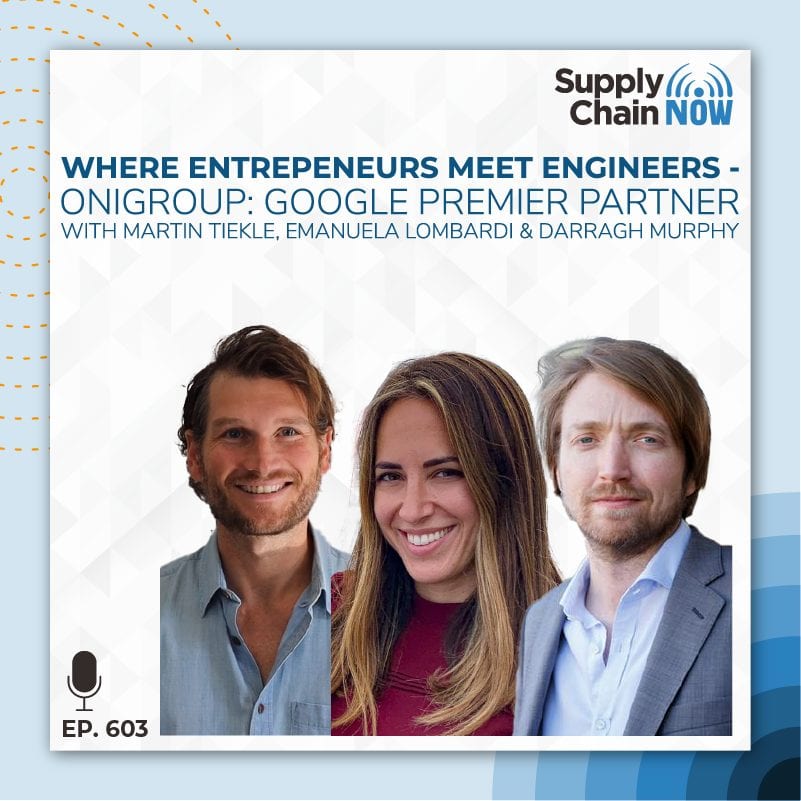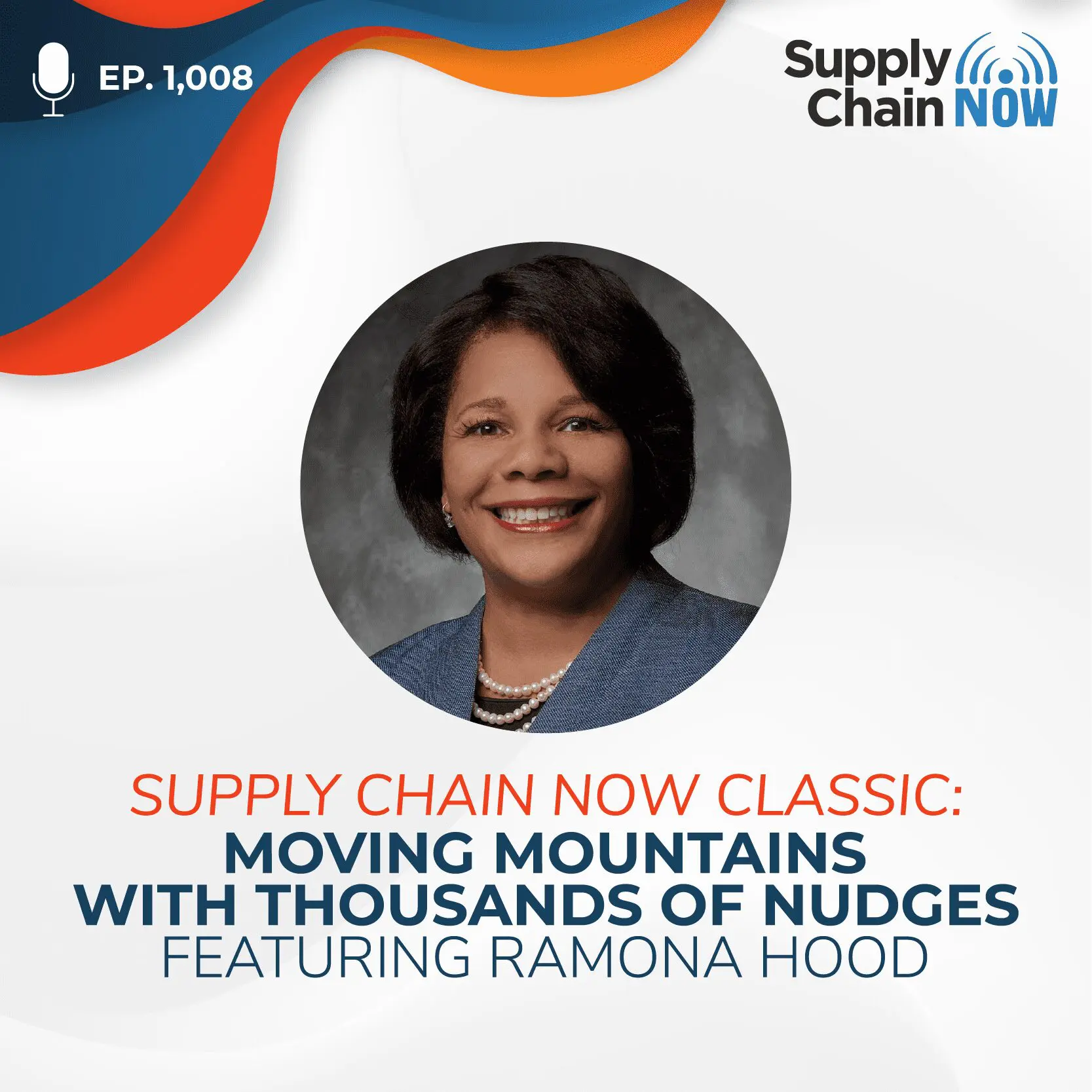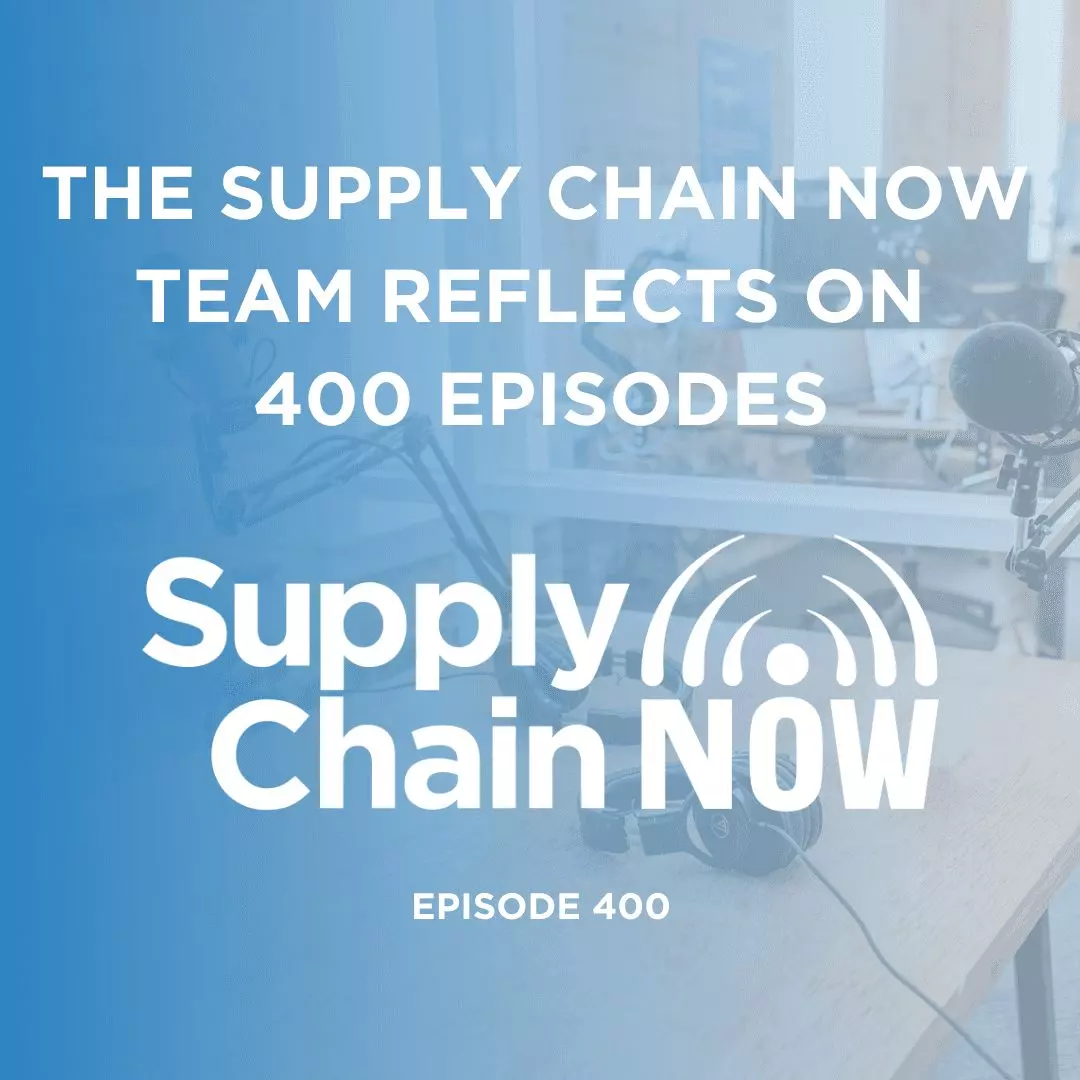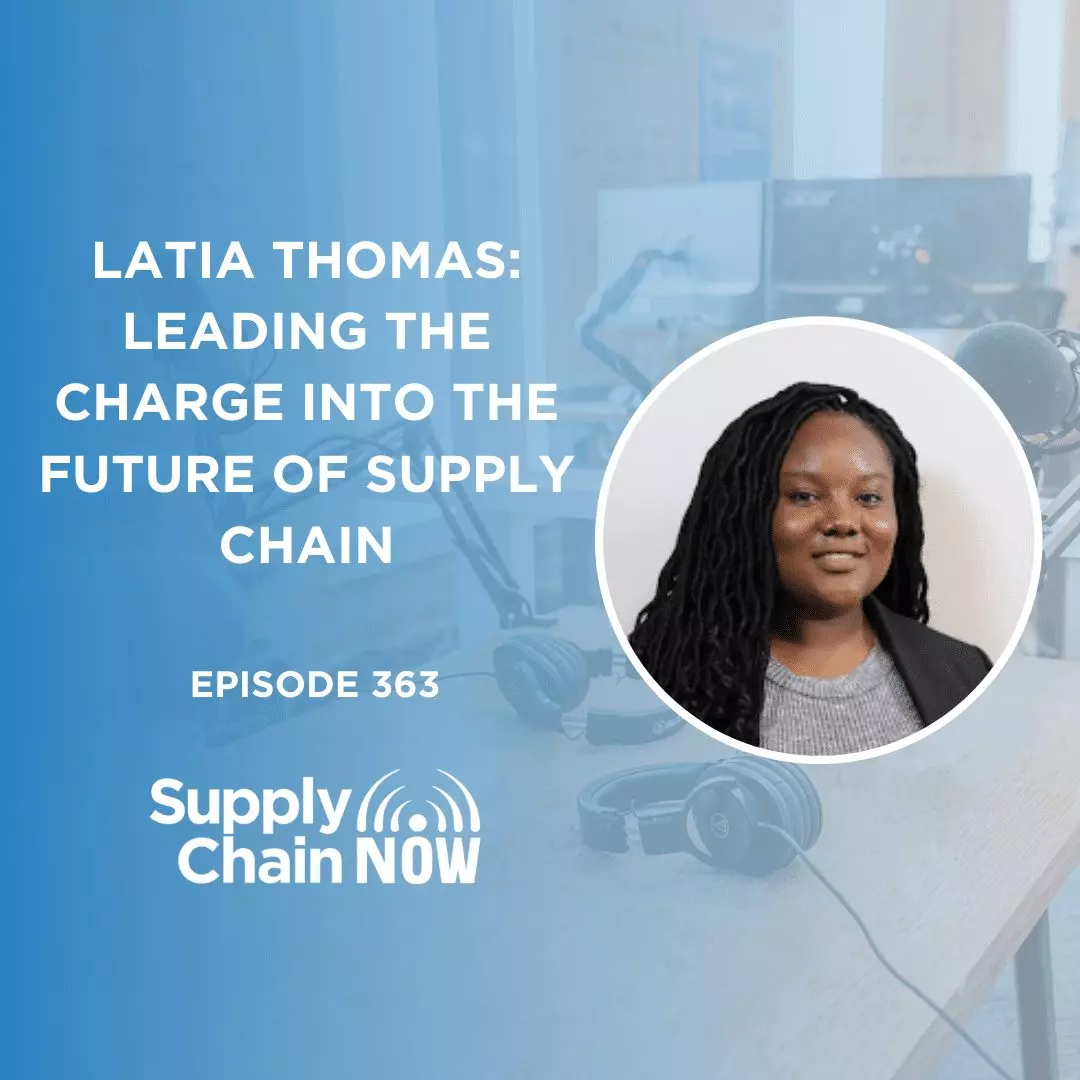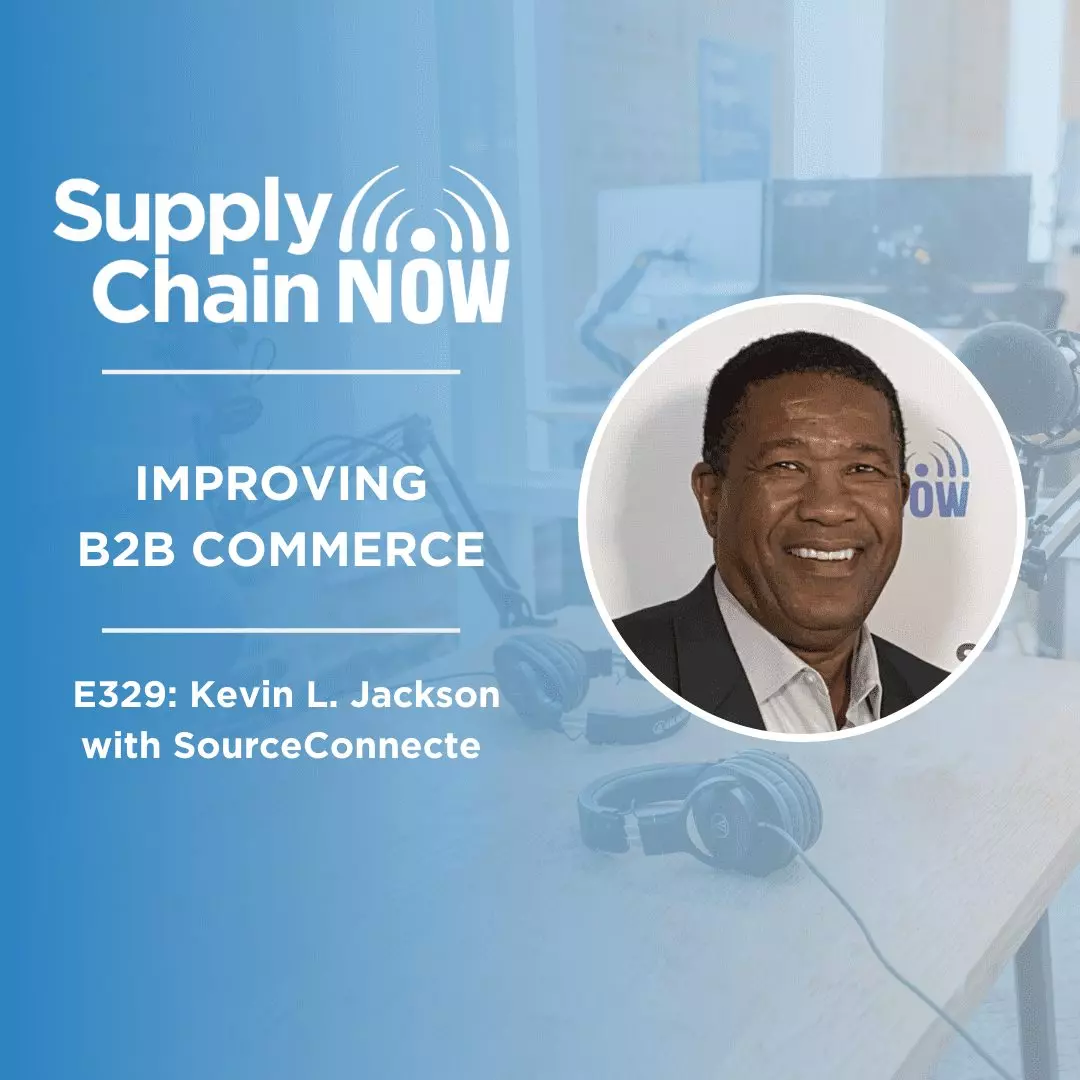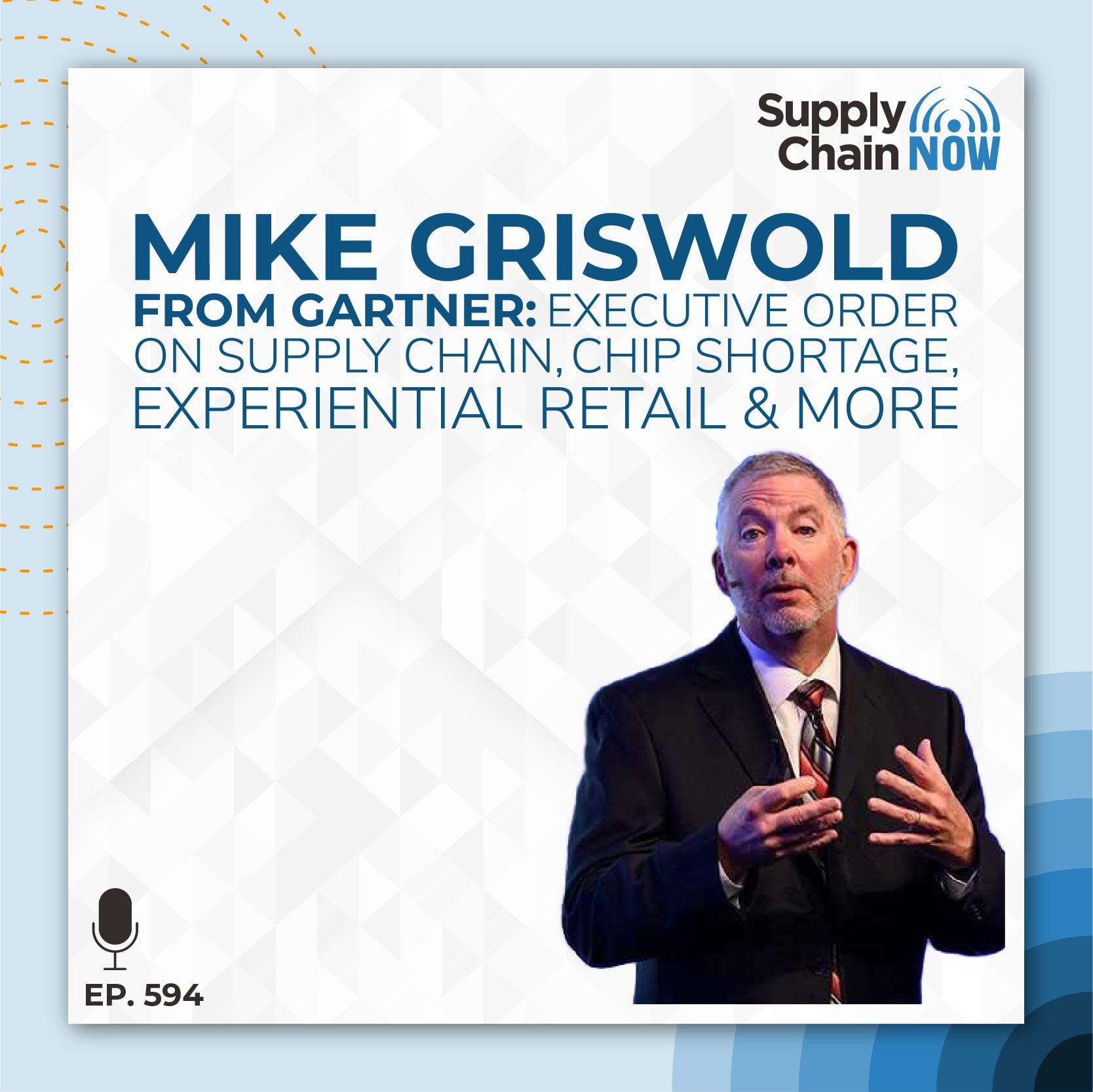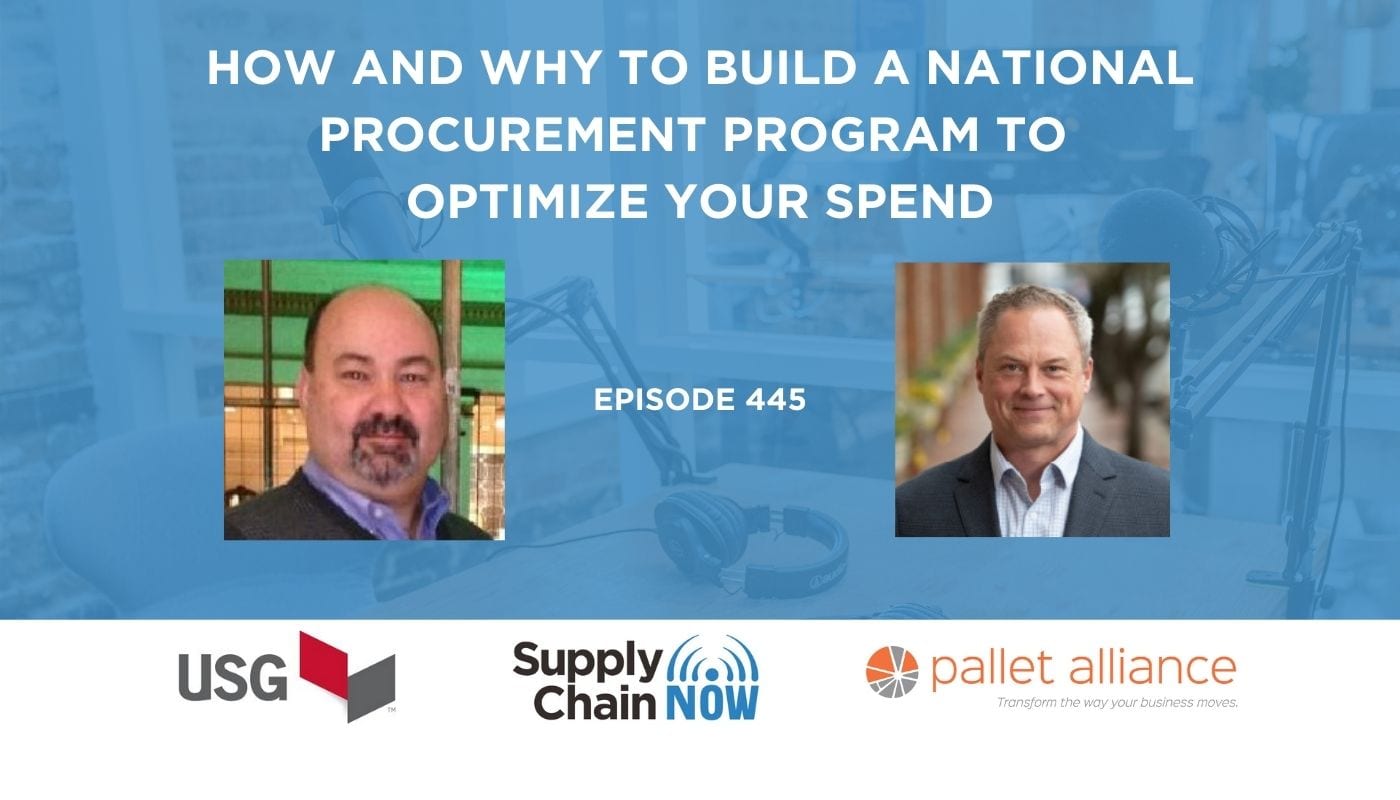
Episode Summary
“One of the other things that often can reduce costs without reducing quality is economies of scale. Instead of 40 locations sourcing independently, now you have 40 locations sourcing centrally, or probably most of them and probably for most of their pallets.”
Tyson Steffens, Principal at Pallet Alliance
“No matter how long you’ve had a program in place, there’s always opportunity to keep looking for reductions, optimization, improvement… Frankly, we’re coming up on 20 years next year doing business with these folks. One would naturally think this thing is on autopilot, but there’s constant evolution.”
Jim Fechner, Strategic Sourcing Manager of Packaging and Paper-based commodities at USG
If there is an ‘unsung hero’ in the world of supply chain operations, it might just be the humble pallet. Pallets are constantly the focus of cost cutting efforts, being seen as low value-added materials, but if there is a problem with a company’s pallets, the damage to product and the cost can be significant.
Jim Fechner is the Strategic Sourcing Manager of Packaging and Paper-based commodities at USG and Tyson Steffens is a Principal at Pallet Alliance. USG manufactures drywall, a product that is simultaneously durable and delicate. Jim has been working with Tyson and Pallet Alliance for 20 years, working to drive all of the pallet-related costs out of their supply chain – including the cost to load them and the cost associated with poor quality product.
In this conversation, Jim and Tyson share their points of view about the following with Supply Chain Now Co-hosts Greg White and Scott Luton:
· Why the number one goal of a national pallet program should not be to save money
· Whether pallets should be managed like consumable/indirect spend or as longer-lived ‘equipment’
· The many strategic options for optimizing a pallet program beyond direct material cost improvements
Episode Transcript
Amanda Luton (00:00:05):
It’s time for supply chain. Now broadcasting live from the supply chain capital of the country. Atlanta, Georgia heard around the world supply chain. Now spotlights the best in all things, supply chain, the people, the technologies, the best practices and the critical issues of the day. And now here are your hosts.
Scott Luton (00:00:29):
Hey, good afternoon, Scott and Greg white with you here on supply chain. Now, welcome to today’s live stream, Greg, how are you doing? I’m doing great. I can’t believe we are going to talk about this particular topic finally. Uh, but I’m really excited about this. This is a really cool partnership and I think it’s good for people to learn from completely agree. Uh, we’re gonna be talking about a national procurement program, the ho the house, but more importantly, the why’s behind these types of programs. So we’ve got a couple of business leaders that have stood up a very successful program. We’re going to dive into that and they’re gonna be sharing their helpful perspective to stay tuned for what promises to be a very informative conversation that will elevate your supply chain acute. And to top it all off, we’ve got one of our favorite repeat guests and more on that.
Scott Luton (00:01:18):
And just a second, a quick programming before we get started, if you enjoy our live stream episodes, be sure to check out our podcast and subscribe wherever you get those from today, Greg, we publish a really neat recent episode from the buzz from Monday where we talked a little about everything from hurricanes, unfortunately in some of the developments we’ve seen there, right through some of the interesting executive communication, that’s come out from some of our freight carriers to sales and marketing and supply chain, right? Yeah. Yeah. It’s a great episode in John Davis from a risk polls shared what they’re doing to help companies get ready for what he called rapid intensification. This storm has done precisely what he said it would do. It’s pretty impressive. It’s like, he’s a weatherman and he knows what he’s, he’s only the chief meteorologist for risk balls, right? He knew he knew his stuff as Greg is saying.
Scott Luton (00:02:08):
Absolutely. Check that out wherever you get your podcasts from now today’s episode again, we’re going to dive in. And so it’s all about procurement and strategic relationships and national procurement programs. Let’s welcome in our featured guests, uh, Jim Fechner manager of packaging with USG. Good afternoon, Jim, how are you doing great. Thanks for having me great to have you with us here. Really enjoyed the prep conversation and looking forward to sharing your expertise and repeat guests Xtrordinair. One of our popular guests from a previous programming is Tyson Stephens principal with the palette Alliance Tyson. How are you doing? Uh, I’m doing great today. Thanks. Ready. We are ready. They can make pallets. Interesting.
Scott Luton (00:02:55):
So yeah, this is going to be a really unique episode and we’re going to dive into, um, the business behind it in a second, but let’s do two things first off. Let’s say low to that. Some of the folks that are tuned in we’ve got Prateek, uh, via Facebook, Benjamin gold clang, a regular around here via LinkedIn Q Smith via YouTube. Hello, Keith Benjamin and Prateek. And, uh, Amanda of course who’s behind the scenes along with clay helping the quarterback, the, the episode, the lobster I’m here today. Alright. So the second thing we want to do, Greg, is we want to kind of get in, get to know both Jim and Tyson a little bit better before they start sharing all their, their, their secrets and their expertise, right? Yeah. I mean, before, before they prove they’ve got a good partnership, let’s find
Jim Fechner (00:03:43):
That’s right. Yeah.
Scott Luton (00:03:44):
So Jim, let’s start with you. Tell us a little about yourself and then we’ll talk about your role and USG in a moment.
Jim Fechner (00:03:51):
Okay. Um, I have been with USG for 30 years and about three weeks coming up, um, also, but I have, uh, 35 years of procurement and sourcing experience, um, uh, whether it was with another company before this one, but pretty much my entire career has been with USG. Uh, I have been in the focusing on the packaging and paper area, including palettes for probably the last 20 some years now. Wow. Um, so, um, and we handle, uh, basically national supply agreements, um, and sourcing for roughly, let’s just say 40 some locations throughout us and Canada were responsible for.
Scott Luton (00:04:39):
Hmm. So is that, um, that long tenured at USG? Is that, is that part of the culture? Is that common?
Jim Fechner (00:04:46):
It’s pretty common. I would say it’s a little less common today. Just, um, I suppose there’s probably various reasons why, but, um, no, I mean, there’s lots of folks that have been there for 20 plus years. Um, so, um, yeah, and I’m one of them,
Scott Luton (00:05:06):
What an asset outstanding. Well, let’s switch over to Tyson, Greg. So Tyson, it was great. It feels like it was three years ago, but beyond having you on a previous podcast, we also had a chance to rub elbows with you and, and your very busy, uh, exhibit at mode X, uh, where the paddle Alliance was there. And, uh, we had some fun, but that was just March. Can you believe that?
Jim Fechner (00:05:31):
Yeah, it seems like it was a long time ago,
Scott Luton (00:05:35):
Light years ago. Well tell, so you’re in, um, you’re in North Carolina now, but where are you? Where are you from? Let’s refresh our audience where you’re from and, and tell us about the pallet lines.
Jim Fechner (00:05:46):
Okay. Yep. Grew up in a small town in Ohio called Newton falls. Um, went to school to be an engineer, then actually went to U S gypsum and was an engineer over there
Greg White (00:05:58):
For about five years and actually became acquainted with Jim Fechner and his buying programs before I actually physically met him. So that was interesting. And then, um, you know, it was looking for a little bit of a change, uh, got into pallets about 19 years ago and a little over a year ago with a couple of my coworkers, we purchased bound Alliance, um, so that we now own it and we’re doing a lot of the same, um, good basic work that pallet Alliance had always done kind of carrying that torch forward. Uh, we’re just, you know, kinda putting a few new angles on it and some, uh, thrown in a little fairy dust here and there,
Scott Luton (00:06:44):
But really it’s it’s pallet 4.0 a heavy dose of technology with a big part of your approach there, right? Yes. Okay. All right. So let’s say, hello, Greg, were you going to say, go,
Greg White (00:06:58):
Yeah, I want to say hello to Keith Smith because, um, he’s, he, uh, is a, from a company called Kelly, K E L E, which was one of our early customers at blue Ridge, a company I founded a long time ago. Um, and it’s good to see him and he’s watching this from YouTube, so awesome. Clearly doesn’t spend all of his time on LinkedIn, like the rest of them.
Scott Luton (00:07:21):
That’s right, Keith, good afternoon. So before we pass the Baton to Greg and we’re gonna dive into this, um, I think what’s going to be a really enlightening, uh, conversation around these national procurement programs. Let’s say hello to a man’s shoes tuned in via LinkedIn. Great to have you here. Sophia. So Sophia has been with us on several live streams. Boy, does she make a splash with some of her summaries from, from the past webinars we’ve done and one of the live stream. So she she’s going to be, um, Jim and Tyson you’ll have to be on your toes because Sophia will be looking and waiting for your expertise. You’re gonna share here today. So it’s a fee.
Greg White (00:08:01):
He is a live stream reviewer. So you better be good. So my first podcast too, so can we start over,
Scott Luton (00:08:12):
Uh, that’s right. You aren’t gonna be, Hey, we’re no concerns on our end. Finally saw, uh, Siaad who we, uh, joined he and his, uh, fellow podcast co-hosts in Pakistan a week or two ago. So I hope this finds you well, great to have you here via Facebook and Christ. The tuba is tuned in via LinkedIn, so great to have you all right, Greg, let’s dive into this unique partnership they have here.
Greg White (00:08:39):
Yeah. We tease this a little bit at the beginning of the show, but you know, some of the discussions we’ve had pre show are really about the, um, this successful, the strong partnership that you all have built together. And a lot of the enthusiasm for the people that
Tyson Steffens (00:08:56):
Have come to this show, and we’ve heard a lot about it building up to, to today’s show is around. That is around. How do you build a good procurement relationship? I mean, regardless of the product, um, which I have to admit, I’m fascinated by this whole topic of pallets. And we had this experience when Tyson, when you were on the podcast some while back, but I am fascinated by this, this partnership and how, what are the key elements that you’ve, uh, created here that make it such a successful partnership? You want to go gym? Oh, you want me to,
Jim Fechner (00:09:34):
You want me to discuss how we created it? I mean, late January,
Tyson Steffens (00:09:39):
Talk about why, why you needed it to begin with right. Let’s start with that. And then yeah. How it works and what it’s meant for your org.
Jim Fechner (00:09:47):
All right. Well, I mean, the, why is, um, kind of, um, it’s relatively simple, but bottom line was at, um, uh, our plants were handling procurement of pallets themselves for many, many years. Um, fact, the first 10 years of my career with the USG, uh, we did not manage pallets at all. So they were locally purchased. Um, so we had this, the local buyer who was responsible for making sure that particular plant got pallets when they needed them. Um, and, uh, there was no standardization. There was no, no leverage. Uh, it was pretty much each guy get what they can. And, um, if you’re a procurement guy, you’ve got a particular location you’re generally driven by cost. So every year, you know, senior management at the plant would say, Hey, we need our costs lowered. And so year after year after year, they would go after not only the pallet suppliers, but I’m sure others, but, um, um, as soon as pallets was one of those fairly large spends that they were managing, uh, they were constantly pushing the pallet suppliers to get costs down.
Jim Fechner (00:11:04):
And in that industry, if you’re familiar with the industry at all, um, uh, the more you push them and the more that they feel like they have to have to lower their price, they’re going to do that for you, but they’re also going to start cutting specifications, cutting corners. And before you know, it, um, you got palette problems all over the place. You got pallets that are not performing properly or the wrong size. Maybe they got wrong deck boards. Um, but, uh, we were having tons of problems out in the marketplace and our very large retail, uh, customers. Um, and you know, the big box guys, uh, most people know them. There’s two national ones and some, some fairly large regional ones, uh, were basically telling us that, uh, we had huge liability because we had pallets that were failing and product that was falling over. And so we needed to fix something real fast. Um, so, um,
Scott Luton (00:12:02):
Hey Jim, if I can interrupt just for a second, you know, do you believe, um, you know, bad pallets are huge issues, huge issues. Do you believe most folks can appreciate that as much as some of the headaches that you were just sharing?
Jim Fechner (00:12:19):
Well, I mean, I think everybody’s got their own situation. I mean, there are certain, certain manufacturers out there that may not necessarily need a high quality pallet. Maybe their product is very lightweight product or a, you know, in that particular case, but in general, yes. Um, I think pallets are, are kind of overlooked in many locations, pins that a lot of companies just buy him because they’re necessary, they required. Um, and don’t really think about what the opportunities are there. Um, and quite frankly, I was in that same boat first 10 years of my career. I never once even considered a pallet, never even thought about it and was told one day you’re gonna run our pallet program. And, um, I learned, literally learned from scratch
Scott Luton (00:13:09):
What I love. And I’ll interject one more time, Greg, if I can, is how Tyson talked about how Jim’s reputation? Uh, yeah, he, he learned of his reputation before they even did business together. I mean, Jim that’s testimony to how fast of a learner and then applier that you were once they tapped you on the shoulder. I love that.
Jim Fechner (00:13:28):
Well, what, what USG does is, is drywall. It is all at once one of the most durable products and at once one of the most delicate products as well, because as soon as it is compromised, it’s, I mean it is toast, right? Yeah. So, um, I can see finally now, thanks to Tyson and, and he being on our third broadcast here, I can see the value in that, but I can tell you that I like Jim. And like some of the people he’s described when I was purchasing product, when I was in merchandising and supply chain and retail, I didn’t give a Tinker’s damn about the pallets. Right. But the truth is, and Tyson explained this to us. The truth is that has a lot to do with the deliverability and the quality of your products. So that, okay, that’s my, that’s my soap box about how I think it is questions God.
Jim Fechner (00:14:26):
And to Jim’s point, it is a bigger deal than people get. Right. Yeah. And it’s, you know, it’s a big deal when agent orange and, and you know, that other chain from North Carolina, when they say you’ve got a problem, that’s when it really becomes a big deal. Yeah. Good point. Yeah. And I think a lot of times with the palette too, because it is necessary, it’s not something that a plant has an for, there are costs associated with getting the product onto the pallet and out the door and they never really dive in and consider those. So that’s where a lot of the savings comes from. Yeah. So Jim share a little bit about, um, you know, you shared why you needed to do it, um, but share a little bit about how you attack that problem. And this is probably Tyson where you guys will tag team a little bit and we probably can, um, I’d say, you know, as I told you before, we’ve got 40 some locations and the vast majority of them use palace.
Jim Fechner (00:15:27):
So, um, you know, we basically internally at, first of all, we gathered all of our data who’s buying. What, where, what do they use, uh, where do they use it at? What types of sizes do they have, who their suppliers were? Um, that was our first attack. Cause, you know, I didn’t even even know who to really talk to, to be quite honest with you. So, uh, we gathered all that data and, um, we had, we found that actually pellet Alliance showed up in several of our locations already. So, uh, that obviously, uh, caught our attention. Um, and then they, weren’t the only ones, to be honest with you. I mean, there’s, you know, when you’re doing RFP, you’re, you’ve obviously got to do your due diligence. Um, but um, after talking to them and running some trials, uh, at one of our plants, uh, we found very quickly that, uh, they were a solution.
Jim Fechner (00:16:23):
Um, and I made a fairly, uh, fairly large presentation to a, a huge group of people in the company, um, senior management, um, executives within USG. And, uh, after that, they said, let’s sign the agreement. Let’s go. So, uh, yeah, it was pretty much right after that. We, we started going and attacking, uh, one by one going after locations and looking for opportunities. And I think most the major, I think one of the major differences in that process from what is typical is that, um, you know, us gypsum, didn’t just say, I want lower prices get a smaller number in the box. They had a goal. Um, they had an idea of what they wanted to achieve. We didn’t enact like a lot of standard brokers where we wanted to buy them the same exact thing and see if we could beat a vendor up to get it at a lower price. And there was a real, um, you know, confluence of what they wanted, um, what we could get from the market for them. And we match those two up. So at the end, they weren’t left with a landscape that looked substantially the same, but for 2 cents less, they ended up with all of their plans, having pallets, redesigned, having standardization and they money to boot.
Scott Luton (00:17:51):
I love that Greg, we’ve heard some of the feedback we got from Tyson’s last interview with us was I didn’t ever knew there was that much to think about when it comes to pallets and Tyson’s illustrating, you know, how Jim and, and the enterprise was being, being better, served by a more customized, Hey, let’s really find out what you really need and, and really understanding that, that, um, you know, the gaps and the opportunities to elevate the performance. Right.
Jim Fechner (00:18:19):
Yeah, I agree. And I think that’s the mature approach, right. That Jim was able to take that I think is part of the lesson here. Can’t believe we’re already lessons at this point that we are part of the lesson here was solve the problem first, then worry about who does it and then worry about at what cost, right. Because just the number 40, um, that’s, that’s a big elephant to eat. Yeah. Right. Yeah. And I think there is some, you know, it is, it is nice that there were some vendors that were already working with multiple locations and that sort of thing. But Jim, uh, tell us a little bit about, I’m curious about how you went about this process. I mean, did you first attack trying to unify the types of pallets that were used or did you first focus on quality or first on vendor? How did you kind of attack that problem for 40 locations? Did you get all that gym?
Scott Luton (00:19:27):
Murphy’s law is loving. Well,
Jim Fechner (00:19:29):
Yeah. Sorry. Can you hear me now, guys? Yeah, we got you. We got you. Sorry. I got disconnected when I got back in a little bit. So again, I probably pretty quick, so you’ll have to, you’ll have to refill for limit. Let me talk a little, let me comment real quickly on what Tyson said a little before I got knocked off and then ask your question again. So what you said is absolutely true. Um, our number one goal was not to save money. Um, not, that’s not to say that that’s not important. Obviously as buyers, we are always tasked to source, uh, all competitive price and quality, but, um, that was not our number one goal. Our number one goal was to make sure we standardized improved our quality had better service levels. Um, all of these things, having spec, having formal specifications, which we didn’t have prior to this for all of those things where our number one priority prior to, uh, you know, uh, you know, a cost model. Uh, but as Tyson said, we achieved all of that and still saved money across the network. Well, that was essentially my question. So you, and I think that’s a big point of, like you said, he achieved all of his goals and saved the money is, you know, what we tend to tell
Greg White (00:20:48):
People is that, um, you know, a pallet cost, what it costs it’s made out of wood nails. Um, everybody builds it about the same way. There’s only so much you can do with that. The savings is really in your plan and your setup. It’s in the standardization, it’s in the redundancy between plants, the, the resiliency that you build into the pallet supply chain. Cause at the end of the day, that pallet is going to cost about the same from every good buyer out there. It’s what did you do behind the scenes to set up the structure and the program? That’s where the money’s at.
Scott Luton (00:21:25):
Hey, Greg, let me, let me say hello to a few folks, by the way, Benjamin gold clang just said, who knew the world of pallets? Was this in depth supply chain IQ is raised love that
Greg White (00:21:36):
I didn’t either Benjamin and, and I, I had the same kind of reaction that you did, right?
Scott Luton (00:21:44):
Hey, real quick. What to say hello to Davin. Who’s also tuned in via LinkedIn live. Our, our dear friend, John [inaudible] is tuned in via LinkedIn. Great to see here, John Rahul, uh, Marie Marie Hearst is turned in via LinkedIn. Great to have you back with us, Marie. And of course our, our jam King or queen, um, Sylvia from Charleston, South Carolina, who use old pallets for it looks like repurposing them in our garden. So great to have all of you. And let me, let me put one more question out there. So we’re talking about national procurement program, successful national procurement programs. This one happens to focus on pallets, but to our audience, if y’all have been a part of those, those national enterprise wide programs drop some comments in there and we’ll get your, your take two. All right, Greg, let’s keep driving into this relationship. Yeah. I’d love to get your perspective Tyson from
Greg White (00:22:36):
The outside and sort of looking in, I mean, you were only working with a few of the facilities. Tell us what you found when you got there and how you addressed the problem with Jim and, and you know, how did you get it to where it is today? I think, you know, the situation with USG in terms of what their situation was, was pretty typical. And like Jim said, usually people at the local level are buying pallets. Um, and that’s not their specialty. Their specialty is doing something else. That’s just something they have to do. Sometimes it’s a buyer. Sometimes it’s a foreman, um, whatnot. And they’re really reliant on a local pallet supplier who may or may not know really what is needed. Um, the other danger is that local palate supplier is only going to offer solutions that they can build. Right? If they’re a software manufacturer, they’re not going to offer you a hardwood solution.
Greg White (00:23:32):
If they build new pallets, they’re not going to offer you a remanufactured palette. And so what you often find is, um, there were problems in the past and the first step at that was the wrong step, but then you keep following those steps and you’ve taken the left fork in the road when you should have taken the right. And now you’re way far down the rabbit hole. He can’t even kind of see where you’ve been. And so that was the situation I would say, at most of the plants and what we typically find. And that’s where we’re kind of back in everything out, evaluating everything from a fresh standpoint. And that’s why we kind of act like a specialized buyer slash cross-functional operations group and start at, okay, listen, what are you shipping? What are your goals? What is it that you need to achieve?
Greg White (00:24:25):
And then let us apply our expertise and our knowledge of what the pallet industry can actually provide you reliably and come up with several different options and several different plans. And sometimes optimization is a very big, um, uh, you know, goal for a company. Sometimes it’s reduction of skews, um, incorporating multiple pallets on one footprint, whatever that is that they need, that’s what we need to know upfront. And then we can go in and do it. And a lot of that is actually going to the customer site, talking to the operators that use the pallets every day and really asking them because they’re the people that know what works and what doesn’t work. They’re the people that have to, um, buy into the solution. And that’s one of the nice things, um, you know, working with us gypsum in, like, if you go to a plant with Jim, you know, he works in a tower in Chicago, but you can go to Oklahoma and he knows five of the guys on forklifts by first name. And they’re actually happy to see him, which makes my job better. Yeah. I know it makes my job a lot easier. I haven’t caught him paying them off before we get there yet, but I’m still looking for it. It’s called Venmo.
Greg White (00:25:48):
And I thought he was texting on the way to the plant. And um, so you, you know, in really a big part of what we do is that on the ground presence, not everybody that works in our space makes the trip, um, talking to the operator, uh, being willing to ask the operator, Hey, what do you want? What if I did this? Do you think that would work and working through that process with them to try to get buy in up and down the chain as much as possible? Yeah.
Scott Luton (00:26:20):
We’ve got our first question, Greg, but I don’t, I don’t want to, I know you’ve got a follow up comment there, so I’ll
Greg White (00:26:27):
Yeah, Jim, I’m just curious because it sounds like that was almost a consulting as well as a product provision process. I mean, how, how much interaction was there? I mean, with your team and with Tyson’s team to kind of put this program, it sounds
Jim Fechner (00:26:44):
Pretty significant. Oh, it was a very collaborative, there’s no doubt about that. And we certainly included, uh, when we went to a location, um, the plant manager was aware that we were there, the operations manager was there, like Tyson said, we’d go down and talk to the foreman. I mean, we got, they were included in every step of the process, as well as part of the decision making process to make sure that they’re part of the solution as well. So I’m very careful about, um, uh, trying to come across as a dictator, like a lot of, a lot of, uh, corporate buyers. So certain ivory tower, like Tyson said, and they’ll basically just cut a deal and then call the plant or call the, you know, the operations guy and say, okay, here’s what you’re doing. No explanation. Why no involvement, no, no understanding of what it is. They just generally just tell them what to do. And that is absolutely not our style whatsoever. So we definitely include them in all of these decisions. Uh, they have a voice, um, they may not always get what they want and sometimes we may not always get what we want, but at the end of the day we get what the company needs.
Jim Fechner (00:28:02):
We’ll put, these guys are dropping major knowledge on us. Scott, shall we hit him with Jeff’s question because it’s coming from Jeff Miller. So get ready.
Scott Luton (00:28:13):
Yes. Jeff is one of our residents, sages of these live streams, along with Sophia and Benjamin and Stephan ma Mao’s not here with us here today, but, uh, alright. So this one, I interest, it seems in this pallet lifecycle. So Jeff says, Hey, can you discuss pallet lifecycle planning with the ability today to cost-effectively monitor track and trace pallets? Do you manage them more like longer lived equipment or do you still consider them as more, uh, more as indirect material
Jim Fechner (00:28:44):
Or consumables? Uh, I would say that, um, the answer to that is with all good questions in life, it depends. Um, so I think more and more, we are trying to consider them as longer lived assets. Uh, it really depends on the supply chain and the ability to exercise the lovers, reverse logistics on it. So, uh, there are some situations where there is no feasible way to capture or get that pallet back. So in that situation, what we do is we design the pallet to have as little wood fiber as possible in it. Now, the good thing about the pallet industry is once that pallet has been used, it’s not going to get thrown in the dumpster. It’s going to go to a pallet recycler, he’s going to reuse it, or they’re going to break it down into components, re nail the components, use it again, um, grinding into the chain animal bedding.
Jim Fechner (00:29:42):
Uh, it will have another life now in a situation where we can, um, take care of reverse logistics. Then we will try to recapture and reuse those pallets. And we have programs, uh, where we do one way pallets and we rely on the pallet recycling community to provide that second life. We’ve got customers where they have a much more closed loop situation where we can get those pallets back. And we actually operate a giant, uh, kind of sort and repair private pool, uh, situation to maximize the life of the pallets. And, you know, recently we’ve gotten into digital pallet tracking with tele palette where we can use a variety of technologies to track a pallet it’s environmental conditions at the time. And so that’s starting to come to the forefront also. And you do have the pallets that are enabled for track and trace, right?
Jim Fechner (00:30:40):
Yes, we do. We use several different technologies. Um, we can, uh, track and trace with cellular Bluetooth, uh, LoRa Sigfox, um, does devices can be enabled with temperature, humidity, shock sensing, um, you know, GPS if we need it. So there are a variety of different methods. You can use the solve, a variety of use cases, and each one really needs to be dialed into what data does the customer need from this pallet and this unit load. Got it. So Scott alluded to this a little bit earlier, and I’m curious, particularly from your perspective, Jim, when you think about national or even global procurement programs, what, what lessons should our audience take away from this
Tyson Steffens (00:31:35):
That, that applies
Jim Fechner (00:31:36):
To apply to a procurement program regardless of what the product or regardless of who the partner is? I mean, I can think of a few, but I’d love to hear what your thoughts are.
Tyson Steffens (00:31:47):
Well, I mean, I think,
Jim Fechner (00:31:49):
Uh, one thing, uh, that could apply to almost anything is that there’s no matter how long you’ve had a program in place, there’s always opportunity to keep looking for reductions optimization improvement. Uh, I can give you a couple of examples, um, uh, specifically to what we’re doing today with Todd Lyons on the pallet side, that examined that. Cause we’re, frankly, we’re coming up on 20 years next year, uh, doing business with these folks. Um, and, uh, so one would naturally think, Oh, this thing is just kind of on autopilot and all there. No, there’s, there’s nothing more to do, but, uh, there’s constant evolution. Um, I’ll give you one quick example. Um, we’ve got a particular, uh, product that’s been going on the same side pallet for shoot close to 20, but over the past several years, we’ve actually begun implementing a lot of automation as far as stacking a product onto our pallets.
Jim Fechner (00:32:48):
And, um, what that’s basically created is an opportunity for us to, uh, use a smaller size pallet because the automation actually, um, uh, allows for better and improved stacking on the pallet. And so we’re getting close right now to implementing this at, across the network where we have all of our plants transitioning to a smaller pallet and smaller means less wood, and that means lower cost. So that’s one example I could give you. Another one would be a real quick. One is, um, you know, we acquired a new company out in California. Um, you know, uh, several years back, uh, we began an operation where we were looking to resolve some of the problems they were having. And, uh, this operation happened to be building their own pallets a hundred percent, uh, right on site. Um, and these are folks that, um, obviously are not professional pallet builders.
Jim Fechner (00:33:45):
Um, and they were basically building one style pallet all day long, no matter what was going on the pallet and no matter what size it was and Tyson and I spent a couple of, uh, weeks out there, um, visiting, understanding what they’re doing. And we began a process of implementation where they are now buying pre-made pallets for them. And we’re looking at a savings that, uh, is heavy double digits for that plant, um, and saving just by removing that operation and having them built, having them deliver a professionally built palette that works, you know, for the, for the application. Yeah. And I think from the supplier side, one thing I would add in there too, is, um, one of the great things about having a program where there is a longevity is, you know, from the pallet Alliance side, we’ve always invested a lot of time and effort into USG.
Jim Fechner (00:34:40):
And the reason we can do that is because we know that it’s a partnership. So for instance, like Jim said, you know, we’ve spent a couple of weeks out there. Um, you can’t spend a couple of weeks, you can’t spend that kind of time and money on a customer that might be here today and gone tomorrow and buys at a couple of clients, but not in a couple others. And, you know, part of that process to get the pallet that we wanted, uh, the pallet manufacturers that we wanted to use, couldn’t get the nails that were needed to technically make the pallet possible. So we turned around and started sourcing the nails for it also, um, you know, I can’t ask people on our team to spend that kind of time to resource nails for a customer that, you know, might hang around, might not, might be committed, might not be, but because we know that, you know, as long as we’re doing the right job and a good job for us gypsum that they’re going to be a good partner.
Jim Fechner (00:35:37):
We go ahead and we can pay those things forward. Uh, whenever the opportunity comes up. Yeah. It’s hard to justify that con the, the kind of commitment that you all have made if somebody really only cares about the price. I mean, if there’s one, there are two takeaways that I see here. One is it’s, can’t be just about the price. And I know we say that all the time when talking about procurement, but it has to be about the solution first in the other. Go ahead, Jim. That was all I was going to say was that I know we made that comment earlier that Christ was not our number one driver. Like I said before, it doesn’t mean that it’s not important. And in fact, um, you know, over the 20 years that we’ve been doing business with power Alliance, we have conducted, uh, RFPs more than once just to make sure that we are priced competitively.
Jim Fechner (00:36:30):
And, uh, guess what, in all those cases, uh, they are more than competitive with, uh, w what any other company out there, uh, but offer rush. So we know that we are priced competitively because we are doing our due diligence and validating where we’re at in the marketplace. So again, that tells you that you can buy from a program manager and still be competitive, and on top of that and improve your quality and service levels. And, and, you know, the, the evolution of your relationship has been so powerful to me. Um, it seems like Jim, that Tyson is still working hard to give you what you want and to continually explore with you how that evolution of your business is occurring. And it’s obvious here, because I can’t think of a single time that we’ve had both a supplier and a procurement manager on the show at once. It’s obvious that you have a fair, at least fairly transparent relationship, right? That you are sharing needs and abilities with one another that create some vulnerabilities in the relationship that you both need to be, uh, aware of insensitive to. Yeah.
Scott Luton (00:37:43):
Excellent observation. Right. We’ve got a lot more interest in this, not only the relationship, but also the, the pallet. So, uh, and, and Tyson, this was to be expected based on the feedback we had on your earlier appearances. So Sophia asks, um, for the smart palates and other alternatives, you mentioned Tyson, what are some of the main challenges you faced
Jim Fechner (00:38:04):
Implement these solutions? I would say that right now, the main challenge in implementing that solution is that it’s a product that’s never really been available before. So, um, many people that could, um, gain a lot of benefit from it, don’t actually know that it’s available yet. Also a lot of them don’t know fully how to optimize the results for themselves. So, um, also, you know, before,
Greg White (00:38:37):
Uh, the palate, um, industry is heavily focused on the collaboration of buyers and operations folks where the Intel palette is more of an appeal to a CIO or some sort of, uh, information technology director. And, um, those aren’t, um, those aren’t typically bridges that we see a lot where we see a lot of CIO is hanging out with the, uh, manufacturing folks or the buyers, and the manufacturers are more often seen in the same company. So it’s one of those items where, uh, we really need the imagination of the CIO. Um, and we need that person that can see the magic in it for themselves, because I think that data that you can pull off of the pallet, um, there’s so much potential on it that I’ll never tell the customer the absolute best thing they can do with that. We can give them examples and we can try to stimulate their imagination, but it’s going to be the CEOs and the, and the people within the company that say, you know what, guys, you can stop there. If you can get me these pieces of data. Boy, do I have a plan for this to wherever we just say, great, let’s, let’s figure out how to get this done. So from a physical standpoint of deploying it, uh, not too big of a problem, um, the biggest hurdle is just igniting the imagination of people to determine what the potential is for them.
Scott Luton (00:40:15):
Excellent. So Gemma, we’ll give you a chance to piggyback on anything Tyson, just share there. Cause we’ve got one of the questions that Juliana really wants us to pose Jim, any, any additional comments on what
Greg White (00:40:27):
No, I think he’s accurate. I mean, I don’t have a lot of experience in the tracing part of it. You know, we don’t, it doesn’t necessarily apply to our business per se. Um, they have, we do have a return program on our Canadian operations, but we don’t do that at all in the U S um, and, uh, you know, I, I don’t have anything more to add to that. I think he’s spotlight. Fair enough question. Before we do ask Juliana’s question, which we better ask apparently. So if your CIO, Jim went to the mythical, uh, plant in Oklahoma would four or five, uh, forklift drivers know him or her. There’s a really good question. Um, I think, I think the point is made, right. I mean, you have so more connected to the operations of the business, right? And that, um, that is a big part of the, of the hurdle for some of this technology, is that so many people that are in and do stay in the ivory tower right. In the corporate office, they don’t know exactly how the product is being used and at ground level. Right.
Greg White (00:41:45):
All right. Let’s ask Juliana’s question. Hey, by the way, good afternoon, Juliana. Great to have you here with us field LinkedIn. So she wants to know, does cutting the cost not call for a decrease in the quality of the palette or is it it’s palette so quality. Isn’t a problem. It’s Tyson. I bet you’ve gotten this question. Oh, Oh, I’m fine. I’m fine. We can get Tyson. Great question, Julia. Good question. I feel like I just got my heart stomped on a little bit. I’ll make it go on without me save yourself. Um, uh, no, oftentimes in really where the meat of our programs are, and this was what took place in U S gypsum is that, um, through redesign, we’re able to bring, um, wood fiber out of the palette by using the wood fiber that is in the pallet properly. And, and this comes down to it.
Greg White (00:42:48):
It’s a lot of, uh, basic mechanical engineering, uh, you know, wood science and that’s, um, picking the right materials and the right dimensions to do the job that needs to be done. And I would equate it maybe, um, something that’s more applicable for a lot of people is, you know, we see bicycles. Um, now, um, you know, bicycles are so much lighter now than they were, and basically an $800 bicycle today would weigh out, perform a $3,000 bicycle from 10 years ago. And it’s really about better materials used, um, in a more efficient manner. So no, we can, we can decrease what CWA or wood consumption often and maintain the quality of the operation of the pallet. And yes, the quality of the pallets does matter. And, you know, think of, think of, uh, think of Jim’s product, you know, 50 pound five gallon pails of joint treatment in Iraq at home Depot.
Greg White (00:43:51):
If that, you know, if that pallet breaks and those pails fall down, that’s a serious, um, safety concern. It’s a, it’s a safety concern for his employees and the plaintiff. And from a monetary standpoint, every pail that gets damaged on the way to market is a lost opportunity. So, yeah. Great answer. I’d like to piggyback on that too, because again, a lot of times, um, uh, folks that are not pallet experts or really don’t understand palace, for instance, we had many situations where a plant was buying a particular pallet size and they always think that, Oh, the
Jim Fechner (00:44:32):
Thicker, the lumber, the better it is. So they would wind up with a pallet that had a for instance, you know, heavy, heavy top deck boards, but spreads way far apart because they couldn’t afford to buy a pallet across the deck. You know, we basically would come in and some of these locations redesign them and they’d have, instead of, let’s just shoot a for an example, a 11 sixteenths a board, um, and we would switch that into, uh, you know, a full half inch, but spread it across the entire deck. And that pallet actually performed better than the original one, but just an untrained diet guy would look at that and go, well, that palette’s cheaper and that’s not gonna work. It’s not gonna, it’s gonna fail. And in fact, we’ve proven that not only does it, uh, uh, match, but it’s, it’s better, it’s actually better. We have a lot less problems with it.
Tyson Steffens (00:45:30):
One of the other things that often can reduce costs without reducing quality is economies of scale. And instead of 40 locations sourcing independently, now you have 40 locations sourcing centrally, or probably most of them and probably for most of their pallets. Um, I mean, did that come into play in substantial measure in terms of cost savings without impacting quality?
Jim Fechner (00:45:57):
Oh, I would say for sure. I mean, and not only that was, we would really work hard at trying to use standard cuts in the marketplace. And Tyson could talk a little bit more about that, but the more you standardize your pallet dimensions to what’s readily available in the market, that’s less, uh, extra cutting and extra processing that a pellet mill needs to do. And when you do that, that reduces cost. So that comes right to the bottom line. Yup. Yeah. That reduces costs. And also what it does is it, um, it makes more, um, manufacturing locations, possible sources, which increases competition when we, uh, you know, go out to buy, um, for us gypsum as well as that’s also something that kind of runs in the background for us, where, uh, by doing that rashly, de-risking their supply chain as well, because what we’ve done is we’ve standardized several plants up and down the East coast, for instance, on one of their high volume pallet. So should there be a fire at a pallet shop somewhere in Georgia, we can actually immediately turn around and divert pallets from New Jersey down there. And we don’t need to call anybody to ask them if they’ll work, the people, you know, down there don’t need to wonder about it. We know we have the design, we know what machines they have, we know how their machines operate. And we know that this palette will run on that machine.
Tyson Steffens (00:47:24):
I love it. So we blink and we’re almost at the top of the hour, and there’s so much to this relationship.
Scott Luton (00:47:31):
Um, if we could, as, as we kind of move into wrapping up with, with Jim and Tyson here, can, can, y’all both just share, you know, if folks are looking to establish this forward looking relationship in national procurement program, like y’all clearly done here, and Jim sounds like it’s central to your, uh, approach in general, give us a tip or two, uh, you know, whether you’re speaking to the shippers, so to speak or the suppliers, um, what’s a key thing to keep in mind as they look to, uh, stand up similar programs and Jim, let’s start with you.
Greg White (00:48:06):
Um, well, I think there are a few key things that I would suggest. Number one, really understand the commodity, um, to understand, uh, how you use it, uh, how it applies to your operation, not only from an operational standpoint or from a cost standpoint, uh, really get a good, uh, baseline of data. So you understand where your benchmark debt, um, and then do your due diligence and assess what’s available out there. And that’s, again, we keep going back to price, but don’t just look at price, look at what these guys can offer you as far as an overall program. Um, whether it’s, uh, packaging or pallets or whatever, but you’ve really got to know what what’s driving your operations and what’s going to drive your cost to where they, uh, you know, where do they meet your budgetary needs?
Scott Luton (00:49:06):
Mm, great stuff there. Jen Tyson, what would you say?
Greg White (00:49:09):
Yeah, I think one of the main things for us is, you know, we’re, we’re looking for good customers, just like good customers are looking for good partners, you know, and I think one of the important things for our clients, with us as what helps us do the best job for them is, you know, kinda like Jim, where they’re very straightforward. Um, they’re very open about what it is that they need to try to accomplish and let us figure out how to get there. I always equate it to, you know, if they cart me into the hospital and they’re about to operate, I’m not going to tell the doctor how I’d like the operation to proceed. They’re the expert I’m here to benefit from your expertise. And, and that’s what Jim will do. He’ll say, Hey, I’ve got a plant or I’ve got a product. This is what we want to accomplish in the end, within a week. Can you get back to me with a plan on how to best do this from the pallet side? And, um, you know, he answers questions. And so that’s, that’s the main thing I would say is look for people where you can have, um, two way discussions. Uh, you can share information back and forth and use each other as a resource to move forward together. It’s not a, it’s not a one way street love, man.
Scott Luton (00:50:28):
Uh, all right. So want to say hello to a few folks, uh, Kevin, we’re not gonna be to get your question here as we’re wrapping up this interview, but great question about economies of scale for small batch manufacturing, hope white, great to have you here via Facebook. And I love that there’s some, uh, David and Juliana are kind of talking about some of the things in the comments that, that Jim and Tyson both you’ve spoken to. So no shortage of passion in this live stream. All right. So Greg, a lot of good stuff. Um, Jim, how can folks connect with you and learn more about USG?
Greg White (00:51:02):
Uh, I am on LinkedIn. I am also on Facebook, but LinkedIn is probably the best way to connect to me. Uh, and, uh, of course my email is, um, pretty straightforward. It’s my first initial last name@usg.com. So those would probably be the best way to reach out to me
Scott Luton (00:51:20):
Outstanding straight forward. All right, Tyson, when you’re not sleeping in booths at mode X,
Greg White (00:51:30):
You sound like such a hobo.
Scott Luton (00:51:33):
I loved color commentary said Tyson was messing with us a little bit. And, uh, as we all left our boosts at MODEC his snack, he snuck into our, our traveling studio and took some snapshots, had like a lot of good fun with that social media. Alright, so Tyson, how could I connect with you and the powerful team at the palette Alliance?
Greg White (00:51:51):
Uh, the best way is they can email me@tysonattpai.com or they can visit our website at www dot [inaudible] dot com.
Scott Luton (00:52:04):
It is just that simple Tyson and Jim, I mean really, uh, not taking anything away cause it, it, it’s really tough to find the right partner that you got, that there’s so much, I mean, we’ve heard here today, so many kindred spirits on how you view these types of strategic relationships and the standard up, and then for it to be still delivering, you know, 20 years later as Jim put it not on autopilot, but it’s delivering in a true bottom line fashion it’s testimony what to have y’all back as we dive a little deeper next go round. But thanks so much to Jim Fechner, a manager packaging with USG, and of course our dear friend, Tyson Stephens principal with the pallet line, John have a great afternoon. And we’ll talk with you soon. Yeah.
Greg White (00:52:45):
Thank you much. Take care,
Scott Luton (00:52:50):
Man. Well, you know, Greg, we had a hunch that, that, that this interview here and this conversation was going to stir up, you know, comments and questions and Pat, and really passion from our audience because it’s just, it, it, even though we were talking in a broader sense about this, these enterprise wide procurement programs, the focus of this one about pallets is just something so many folks just don’t think about. What would you do?
Greg White (00:53:16):
Yeah, I, I think there were a lot of lessons here. One is that you can say stimulate the imagination and palette in the same sentence.
Tyson Steffens (00:53:26):
I don’t know if everyone caught that, but Tyson actually said that they attempt to stimulate the imagination of their customers on how to solve the problem. The other, I think the big lesson here, the procurement lesson is no one can make you do anything. And therefore the transparency, the openness, the collaboration, the partnership that those two people showed in their, their relationship that has lasted 20 years in procurement. That’s the, that to me is the number one lesson is that that transparency and trust and collaboration, even, even a vulnerability is, is important in those relationships. And the reason that it’s safe to do that is because you have one word in your vocabulary that allows you to do that. And that word is no, whatever doesn’t work for you. You can say, no, no one can make you take a particular deal. And that’s a lesson that I think, um, you know, it’s a very simple concept, but I think that’s a lesson that sometimes we need to get back to basics thinking about how we build these relationships and why it’s not dangerous to do so well, put,
Scott Luton (00:54:40):
Uh, Ella, again, I go back, I love how Jim’s got a reputation for putting these types of, of great win-win. I hate that that’s cliche and these types of relationships aren’t cliche, but that really is what it is. Yeah. And he sounds like maybe he can write a book at some point when he, after 30 years at USG, Holy cow. Um, all right. So as much as we love that conversation, we’re going to have to start to wind today’s live, stream down, love all the great questions and the comments from, you know, that they keep coming. I love Sophia came a new hashtag palette lovers. All right. So we have got to pay the bills here at supply chain now, and we’ve got a couple of great events that we want to make sure our audience is aware of. Right?
Tyson Steffens (00:55:26):
So, well, this is a great event. First of all, because six river systems is one of the big players in the industry. And they’re bringing on folks from Shopify, which is the biggest a $120 billion company. So
Scott Luton (00:55:40):
I can’t see it up any better than that. Other than flow in this case flow 2020 is all about the future of logistics, operations, and warehousing. As Greg mentioned, six river systems, it’s their user’s conference and it’s free. There’s no charge to 10. It covers is two days in September. It is smart, Greg. It, it, um, you know, groups like this, they’re, they’re willing to give back and give folks a chance during challenging times to develop and, and grab market Intel and network a bit and, and get better at what they do more informed at what they do. So we’ve gotten the link to sign up in our show notes. Y’all check that out. Uh, as Greg mentioned, the great keynotes, including a couple of senior leaders with, uh, both six river systems and Shopify, uh, the dominant player in the market. So you check that out September 16th through the 17th, and then Greg, we’ve got a new one, right from our dear old friends at Reuters event.
Tyson Steffens (00:56:36):
Yeah. Yeah. So the supply chain USA this year, it’s virtual, usually it’s in Chicago would love to drop by Jim’s place and have him take us out for a Geno’s East pizza, but we’re going to have to do it virtually. Maybe he can send it to us on dry ice, but, uh, this is a great organization, incredible speakers, incredible speakers. You know, when I say incredible speakers, I’m going to start with number one in my book and that Sandra McQuillan, um, you know, the, the EVP and chief supply chain officer at mandolins, um, she’s been on the show a couple of times, unbelievable talent in terms of supply chain inspirational. Um, we’re going to be, uh, speaking. And of course we’re going to be, uh, we’re going to be talking with the CEO of Arlo foods, which is a Danish company in Northern Europe that, uh, is a co op doing some amazing things. And always interesting to hear from what people love to call affectionately the shipper side, right, who are making and delivering and selling the products. So, you know,
Scott Luton (00:57:45):
This thing is packed with keynotes Gregg limb goal, which we talked about, lineage logistics, only one of the last buzzes. You know, they’re, they’re the dominant player in cold chain, which is an absolute, absolute critical component of global supply chain, especially in the years to come.
Tyson Steffens (00:58:01):
Uh, he, uh, from, from tractor supply, who’s got explosive growth right now. You can’t throw a dead cat and not hit either a tractor supply store or one that’s being built.
Scott Luton (00:58:15):
Always contract always can rely on Greg white for putting it in a colorful visual manner. I love that, Greg. Uh, but yeah, y’all check it out. They’re offering a complimentary taster pass and I’m not exactly sure all the ins and outs there, but we’ve gotten the direct link
Tyson Steffens (00:58:32):
In our show notes. Uh, and some folks have already been, um,
Scott Luton (00:58:36):
Jumping on there and taking advantage of that free pass or whatever version of that. So check that event out and that’s, that’s going to be coming to seventh and the 8th of October.
Tyson Steffens (00:58:46):
So you got some time there. Yeah.
Scott Luton (00:58:48):
All right, Greg, great show. Uh, we’re partial. Uh, you know, Tyson’s a great friend. He, we, we got so much great feedback on his earlier appearances. We knew that him and Jim on today’s live stream would bring it. I loved the questions we got from the audience. Uh, it, it really, um, helped accentuate some different nuances of there
Tyson Steffens (00:59:09):
Partnership, right. I’m with Jeff Miller. That was cool. Um, and with Ben, how could that possibly be cool? Right. I mean, we were talking about pallets and procurement,
Scott Luton (00:59:22):
And I think if anything, if we have done anything this week that should have raised people’s supply chain IQ, this should be it. Yeah. There’s a lot of practical knowledge there. It was real life from both sides of the relationship, which is fantastic because you know, when you got them both in the room, it’s not just lip service. It actually had to occur because we didn’t see Tyson go really. So, so you know that it’s really happening and you can see that the way those two gentlemen interact with one another than it is a very successful relationship. And you can always learn from that kind of thing. Yeah. I’m with you. And Amanda says she had no idea that pallet technology was actually a thing. Always learn match tag, right. That’s right. Well, and when Tice was messing around and he grabbed his heart, I loved it.
Scott Luton (01:00:09):
We had a comment, someone grabbed the defib, we got to grab it. We need to have a defib on these, these livestreams, Greg, maybe for you when I say something, yes, that’s right. I was just glad to be alive and kicking after Mondays, after Monday’s buds, where we had a lot of interesting back and forth, no kidding, but all that said, hopefully our audience enjoyed this show as much as we did, um, really, uh, to see Jim and Tyson talk about the relationship that’s endured 20 years. There’s so much takeaway and it, while palettes of course are important. There’s so much takeaway universal takeaway across other, uh, relationships. So, um, you know, Greg, uh, it is a challenging time, but we’re going to sign off like we always do. And we’re constantly challenging ourselves. Hey, do good give forward and be the change that’s needed. And with all that said, we’ll see you next time here on supply chain now. Thanks everybody.
Featured Guests

Jim Fechner has been with USG for 30 years. He is currently the Strategic Sourcing Manager of Packaging and Paper-based commodities for manufacturing locations in the US and Canada, and responsible for over $100MM Corporate spend. Major commodities include corrugated packaging, wooden pallets, specialty papers, paper and flexible packaging, printed papers, and various other commodities. The Strategic Sourcing group located in Chicago is responsible for supplier selection, evaluation, and implementation for the locations, and includes negotiation of national supply agreements, pricing, quality and service levels.
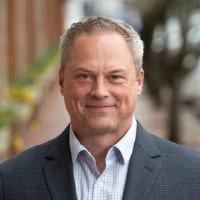
Tyson Steffens started his professional career as a process engineer with United States Gypsum Company after receiving a B.S. in Chemical Engineering from The University of Akron and completing internships with General Electric. During his time with USG Tyson moved into an operations role where he managed manufacturing, quality control, and distribution. In 2003 Tyson joined Pallet Alliance where he began creating custom solutions for manufacturing clients. His efforts refined pallet program management by incorporating pallet design and sourcing into a singular effort. In 2006 Tyson earned his MBA from the Keenan-Flagler Business School at The University of North Carolina at Chapel Hill. Since then he, and the Pallet Alliance team, have created and managed pallet programs that provide significant cost savings, transparency, process efficiency and supply chain security. Tyson serves as a trusted advisor to clients and values building collaborative partnerships that lead to innovative, strategic and comprehensive pallet programs.
